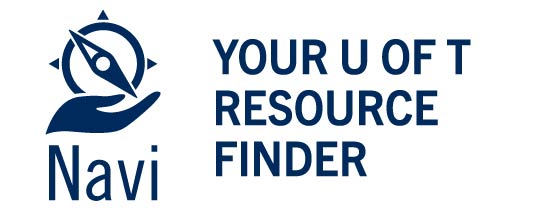Laidlaw Leadership and Research Program
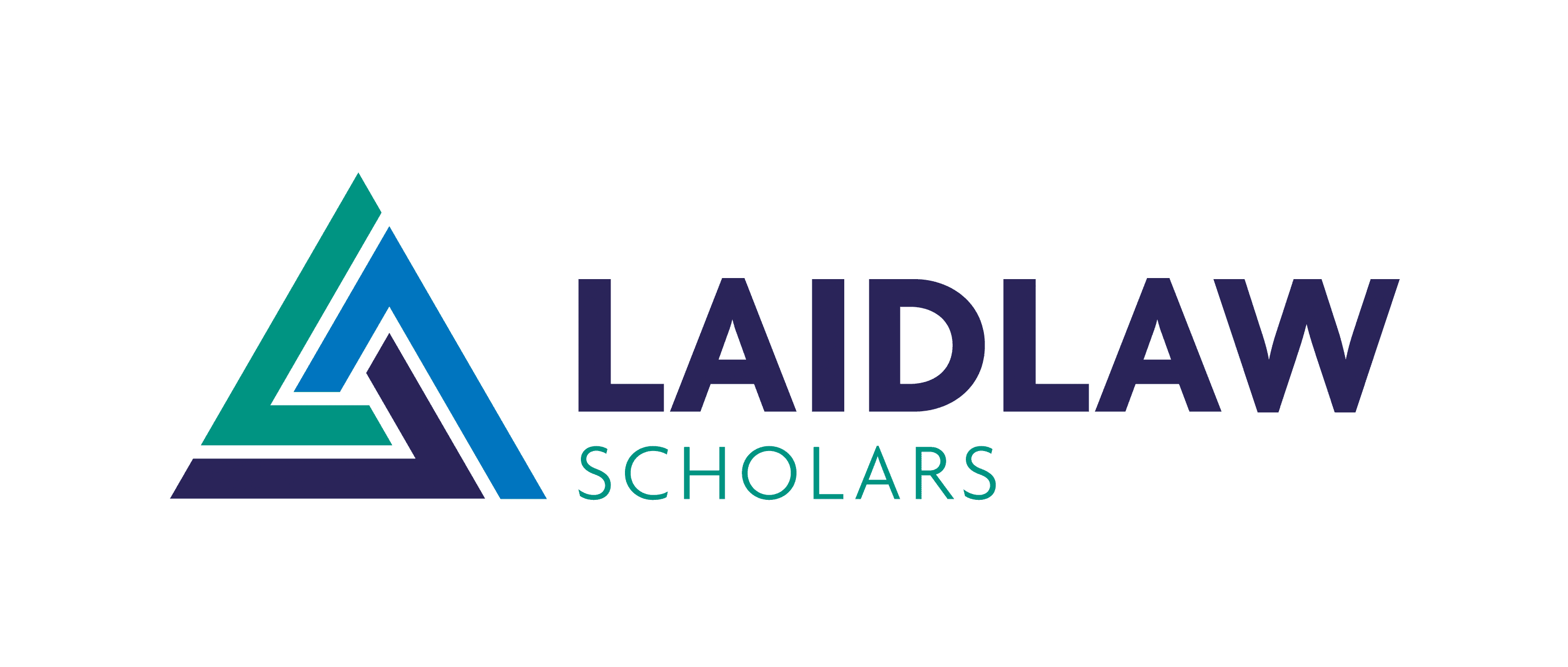
“The purpose of the scholarships is to encourage and develop future leaders in any field of activity. Looking around the world’s business and political leaders I can’t recall a time when better leaders were more urgently needed.” – Lord Laidlaw
The Laidlaw Scholars Undergraduate Leadership and Research Programme, also known as the Laidlaw Scholars Programme, provides students with funding to pursue research in any area of interest at U of T, or anywhere in the world. It aims to develop a new generation of leaders who are skilled researchers and believe it is a moral imperative to lead with integrity. The program invests in talented and motivated undergraduate students, giving them the knowledge, skills, and experience to become active global citizens and future leaders. To date, more than one thousand passionate change-makers have completed the program all over the world.
The Laidlaw Scholars Programme funds up to 25 academically strong and motivated undergraduate students per cycle and provides 16 months of programming that begins in the winter term of your first scholarship award year and ends in the fall term of your second scholarship award year.
During the first summer of the program, scholars will focus on an Independent Research project, and during the second summer, they will participate in a “Leadership-in-Action (LiA)” project that builds upon leadership skills they develop throughout the program. During the Leadership Development component of the program, scholars will receive bespoke leadership training during the semesters leading up to the second summer, as well as during the months of their summer research.
Please note that it is also expected that all students have one global/overseas experience for 6 weeks minimally at some stage during the program.
Selected scholars will conduct independent research for 6 weeks, whether they are self-proposed research projects or faculty-defined research projects. The research period should begin on June 15, 2026, and conclude on July 24, 2026. This research will be carried out in Canada or internationally (if approved) with a research supervisor to supervise scholars from U of T or any international institution.
If you choose to apply by self-proposing a research project, please refer to the following information regarding the research supervisor(s)’ eligibility:
- All research projects that require REB protocol approval must be supervised by a U of T faculty member or a member outlined in the Guidelines Regarding Eligibility to be a Principal Investigator at the University of Toronto. We are not able to accommodate projects that require REB approval with a research supervisor who is not affiliated with U of T or does not meet the guidelines laid out in the guidelines listed.
- If your research project does not require REB protocol approval, your research supervisor(s) may be from any accredited global institution and is not required to be from U of T.
- The Laidlaw Scholars Programme is not able to accommodate research supervisor(s) switches once the research begins.
- Teaching assistants and graduate students are not eligible research supervisors.
All scholars will be required to write a final research paper outlining the findings of their work. They will also present their research findings to faculty, staff, and students from across the university during the Laidlaw Scholars Research Symposium.
Scholars will receive bespoke leadership development training held throughout the year to develop their individual, team, and situational leadership skills through group retreats, guest speaker presentations, and coaching.
The Leadership Development component is developed around the Laidlaw Scholars Programme’s 3Cs: Change Maker Values, Capacities, and Character. The training program will focus on developing transferrable skills such as communication and influencing, collaborative mindset, diversity, equity, and inclusion, emotional intelligence, and global citizenship.
Please note that the Leadership Development component of the program extends through the entirety of the Fall and Winter terms. Therefore, scholars are required to be available for in-person programming in Toronto and so, cannot participate in an exchange program during this time.
The Leadership-in-Action (LiA) component is a 6-week immersive project that will take place in the second summer of the program. This, in a variety of different aspects, will be a key focus of the program and will encourage scholars to partake in an experience that is in a new and challenging environment, working with communities in need, and developing leadership skills. An international or global opportunity either through the LiA experience or at a different point in the program is highly encouraged. There are three ways in which a LiA summer can be planned, and the planning for this will be discussed with program administrators as well.
- Participate in a LiA experience through a centrally offered partner project. You may refer to the Central LiA Projects offered in 2025 on the Laidlaw Scholars Network. More details for your cohort will be available after your first summer in the program (6 weeks long);
- Work with a community-based organization or non-profit organization on a project that may have an impact on a community in need while applying your leadership skills. You must receive university approval for the project (6 weeks long); or
- Implement your research findings (6 weeks long).
All scholars will be required to produce a report on the work that they carried out in the second summer of the program. After completing the global experience component, be it during the first or second summer, scholars are required to produce a reflection report on the learning and impact of their global experience.
In addition to the Independent Research, Leadership Development Training, and Leadership-in-Action components mentioned above, the Laidlaw Scholars Programme also include the following components:
- Global Networking: Connect with a diverse network of scholars, faculty, and alumni worldwide from all Laidlaw-partnered institutions through the Laidlaw Scholars Network and other programs offered.
- Global Experience: Establish a global mindset by spending a minimum of 6 weeks abroad through Independent Research or Leadership-in-Action summers to experience and learn from a global community.
- Ethical Leadership Certificate: Work towards becoming an ethical and principled leader by participating in the Oxford Character Project and earning certification from the University of Oxford. Through the Oxford Character Project, scholars will get to develop their character (e.g. Purpose, Love, Wisdom, Growth, Self-realization) and master the art of ethical leadership while being joined virtually along with all other Laidlaw Scholars from other universities in the program.
- Annual Conference: Take part in the Laidlaw Scholars Annual Conference to connect, exchange ideas, and build lifelong connections with fellow scholars from different partner institutions.
Benefits of Becoming a Laidlaw Scholar
Students who are selected to participate in the program will:
- Conduct a research project of your choice under the supervision of a leading academic while receiving mentoring and developing your academic potential;
- Receive bespoke leadership development training to become a next-generation leader;
- Explore potential meaningful career options while developing transferrable skills, building confidence, and expanding breadth of knowledge;
- Grow as a leader in a real-world setting with the Leadership-in-Action project while working with communities for shared progress and long-term impact;
- Complete an international experience, be it through your research or the Leadership-in-Action experience;
- Develop your character and master the arts of ethical leadership with a certification from Oxford University;
- Connect with extraordinary peers from world-leading universities; and
- Receive generous funding for all of the above!
The history
Lord Laidlaw of Rothiemay used his vision and commitment to create this program, which is now offered at 20 universities around the world. The long-term vision for the Laidlaw Scholarship is to create a wide-reaching and diverse international network of leaders who will reinvest their skills, knowledge, and experience to help students, peers and colleagues.
For more information about the history and vision of the program, please visit the Laidlaw Foundation website.
Eligibility
Applicants will be assessed for their passion, enthusiasm, plans, potential, and ambition for becoming a global future leader who is committed to ethical leadership, while also keeping in mind their academic background and achievements.
You are eligible if you are:
- A first or second-year undergraduate student (working towards your first bachelor’s degree) at the University of Toronto;
- Maintaining full-time status for the entire duration of your enrolment as a Laidlaw Scholar;
- Studying at any of the three campuses; and
- Enrolled in any field of study, from any background (i.e. all majors, specialties, and minors are eligible).
You are not eligible if you are:
- You are a visiting student or an exchange student;
- You are a graduate student; or
- You have fewer than two summers left before graduation. Note that you must have at least two summer periods left at U of T before graduation to be eligible to participate in this program.
Funding
The Laidlaw Scholars Programme selects and funds up to 25 academically strong and motivated undergraduate students annually. If you are selected as a Laidlaw Scholar, here is what to expect:
- Summer 1: up to $5000.
- Summer 2: Funding will be determined based on the student’s opportunity during the Leadership-in-Action summer period, but no more than $5000.
This stipend will cover your accommodation and living costs while you complete the independent research or the Leadership-in-Action experiences for 6 weeks.
You are also eligible to apply extra funds for up to $2,500. This funding can be applied to travel expenses, which are dependent on global travel restrictions and all University of Toronto guidelines, as well as extra lab funding (up to $1000 out of the $2500 mentioned above) that cannot be covered by the main research amount. This extra fund covers the entirety of a scholar’s engagement in the program.
Applications
Applications for the 2025–2026 Laidlaw Scholars Programme have now closed.
The information provided below relates to the 2025–2026 programme and is included for reference.
Details about the application process for the 2026–2027 cycle will be made available in October 2026.
There are two applications streams for the Laidlaw Scholars Programme:
- Self-proposed research projects
- Faculty-defined research projects – earlier deadlines
Please refer to 2025-2026 Laidlaw Scholars Programme Application Guidelines for further information about each application option.
Faculty-defined Projects for 2025-2026 Laidlaw Scholars Programme
Below is the list of project topics which were available for Faculty-Defined Projects for 2025-2026 Laidlaw Scholars Programme:
Faculty Research Supervisor Details
Faculty Research Supervisor Name: Dr Elisa Freschi
Campus: St. George Campus
Faculty/ Department of Research Supervisor: Sanskrit Philosophy and Philosophy of Religion
Faculty Research Focus/Interest: Sanskrit Philosophy
Email address of research supervisor: elisa.freschi@utoronto.ca
Project Details
Title of Main Research Project: Deontic and legal concepts in Sanskrit philosophy
Brief Summary of the Main Research Project: Within this project, we will reconsider concepts connected with duty (prescriptions, prohibitions, permissions, supererogations…) by comparing and contrasting them with cognate concepts within Sanskrit deontic and legal thought. We will also discuss the term adhikāra, variously translated as ‘entitlement’ or ‘responsibility’, which seems to work as a shift activating deontic concepts. The main source will be the most relevant Sanskrit legal text, the Mānavadharmaśāstra (also known as Manusmṛti or “The Laws of Manu”), together with its learned commentary by Medhātithi (9th c. CE). We will analyse what adhikāra entailed and how it interacted with other deontic terms, such as obligation, prohibition and permission.
Title of Laidlaw Scholar’s Research Project: Deontic and legal concepts in Sanskrit philosophy
Summary of Laidlaw Scholar’s Research Project: Within this project, we will reconsider concepts connected with duty (prescriptions, prohibitions, permissions, supererogations…) by comparing and contrasting them with cognate concepts within Sanskrit deontic and legal thought. We will also discuss the term adhikāra, variously translated as ‘entitlement’ or ‘responsibility’, which seems to work as a shift activating deontic concepts. The main source will be the most relevant Sanskrit legal text, the Mānavadharmaśāstra (also known as Manusmṛti or “The Laws of Manu”), together with its learned commentary by Medhātithi (9th c. CE). We will analyse what adhikāra entailed and how it interacted with other deontic terms, such as obligation, prohibition and permission. The selected scholar will also be introducted to the PhD students and Professors already working in the topic (at the TU university in Vienna, at the university of Cagliari in Italy and in part also at UofT), Scholar will receive an initial introductory training of about four–eight hours explaining them how to look into a text mining for information and will be provided the texts to be examined and regular check ins to fine-tune progress or correct any misstep.
Research Categories: Philosophy; Law, Ethics and Criminology; World studies; Culture and Humanity
Does the Laidlaw Scholar’s project require Research Ethics Board (REB) protocol approval? No
Scholar’s Responsibilities: The scholar will read and analyze Manu’s text together with Medhātithi’s commentary and highlight all the passages discussing deontic concepts and/or employing the term “adhikāra”. They will contrast it with recent scholarship in Euro-American legal theory on the concept of “rights” and duties.
Expected Scholar Deliverables/ Outputs: An article on a case-study about a deontic concept as understood by Medhātithi.
Details of supervision arrangement: The research advisor will introduce the scholar to the PhD students and professors who are already working on the topic (primarily at the Vienna University of Technology and at the University of Cagliari, Italy, and U of T). The research advisor will provide them with an initial introductory training of about 4 – 8 hours explaining to them how to look into text mining for information. The research advisor will provide the students with the texts to be examined and will check on them regularly to fine-tune their progress or correct any missteps.
Eligibility
Are students required to have the relevant academic background to apply for the research project? Yes
The three essential skills which the scholar must have in order to undertake the project successfully:
- Teamwork
- Inquiry
- Investigation and synthesis
- Desired: Prior experience with the analysis of premodern texts
Is the project expected to run over the standard 6-week research period? No
Is the selected Scholar required to reside in Toronto / Greater Toronto Area (GTA) / Ontario to undertake this research project? No. The scholar can work remotely
Faculty Research Supervisor Details
Faculty Research Supervisor Name: (Professor) Yoonjung Kang
Campus: Scarborough Campus
Faculty/ Department: Linguistics, Department of Language Studies
Faculty Research Focus/Interest: Phonology, Phonetics, Psycholinguistics, Sociolinguistics
Email Address of Research Supervisor: yoonjung.kang@utoronto.ca
Project Details
Title of Main Research Project: Sound Symbolism in Name Gender and Gender Bias
Brief Summary of the Main Research Project: Sound symbolism refers to phenomena in which speech sounds or phonological forms are directly associated with concepts. For example, the vowel i is more commonly found in words denoting “smallness,” while a is associated with “largeness” in many languages. The goal of this research program is to examine the sound symbolism of name gender across different languages and cultures. Our research on popular first names in 14 languages has revealed that sounds are distributed unevenly across male and female names, aligning with sounds associated with stereotypical gender traits (e.g., small/big, gentle/abrupt, polite/assertive). These patterns are also reflected in speakers’ responses when asked to guess the gender of invented names. The next step in our research is to investigate whether there is a link between speakers’ sound-symbolic preferences in names and their biases in gender social norms. We plan to examine diachronic changes in naming patterns within a language, as well as compare contemporary names across individuals, cultures, or countries that share linguistic backgrounds. This approach will allow us to isolate the effect of varying degrees of gender bias on naming practices.
Title of Laidlaw Scholar’s Research Project: Measuring Gender Bias and its link to Sound Symbolism in Name Gender
Summary of Laidlaw Scholar’s Research Project: The Laidlaw Scholar will play a central role in developing a survey to measure individual speakers’ gender bias—an essential step in advancing this research project. As part of this work, the Scholar will conduct a comprehensive literature review on existing instruments for measuring gender bias and adapt these insights to revise the UNDP Gender Social Norms survey (https://hdr.undp.org/content/2023-gender-social-norms-index-gsni#/indicies/GSNI) tailoring it to the project’s needs. In doing so, the Scholar will gain hands-on experience with interdisciplinary research that bridges linguistics, psychology, and social science. This stage of the project is crucial, as the development of a reliable measurement tool will provide the foundation for exploring how linguistic preferences intersect with broader patterns of gender bias.
Once the survey has been designed, the Scholar will implement the survey on an online platform. They will then recruit participants and conduct a study in which participants complete both the Gender Norms survey and a linguistic experiment measuring sound-symbolic preferences in name gender. Following data collection, the Scholar will analyze the results and prepare a conference abstract summarizing the findings. Through this process, the Scholar will not only contribute to research on language and gender but also develop skills in survey design, online experimentation, data analysis, and academic dissemination.
Research Categories: Culture and Humanity; Literature and Linguistics
Does the Laidlaw Scholar’s project require Research Ethics Board (REB) protocol approval? Yes, the project requires REB approval
Details of Supervision Arrangement: The specific training will depend on the student’s technical skills and background in linguistics. The Scholar will be introduced to an online experimental platform (Gorilla) as well as the relevant literature on sound symbolism in names. The supervisor will hold weekly meetings with the student and will also be available for support via email throughout the research period.
Laidlaw Scholar’s Responsibilities: The Scholar will be responsible for familiarizing themself with the literature on sound symbolism in names; conducting a literature search on methodologies for measuring gender bias in individuals; revising the UNDP Gender Social Norms survey to adapt it to the current study’s purpose; implementing it as an online study; identifying a population of interest to the student; and running the study and analyzing the results for dissemination.
Expected Scholar Deliverables/ Outputs: Implement a revised version of the UNDP Gender Social Norms survey on an online platform; recruit participants and conduct a study in which they complete both the Gender Norms survey and a linguistic experiment measuring sound-symbolic preferences in name gender; analyze the results; and prepare a conference abstract summarizing the findings
Eligibility
Are students required to have the relevant academic background to apply for theresearch project? No
What are the three essential skills which the scholar must have to undertake the research project successfully?
- Research and Analysis; Curious; Critical Thinking and Reflection
- Design thinking and problem-solving; Collaborative mindset
- Prioritization and time management
Is the project expected to run over the standard 6-week research period? Can be completed in 6 weeks, but there may be an opportunity for additional work after the project completion.
Do you require the Scholar to reside in Toronto / Greater Toronto Area (GTA) / Ontario to undertake this research project? No. The scholar can work remotely.
Faculty Research Supervisor Details
Faculty Supervisor Name: Krstina Kokorelias
Email Address: k.kokorelias@utoronto.ca
Campus: St. George Campus
Faculty/ Department: Rehabilitation Sciences Institute
Faculty Research Focus/Interest: Caregiving
Project Details
Title of Main Research Project: Family Caregivers, ChatGPT, and Power: Critical Perspectives on Digital Care Work
Brief Summary of the Main Research Project: This project explores how family caregivers engage with generative AI technologies such as ChatGPT, with a focus on the power structures that shape these interactions. Family caregivers often face significant emotional, informational, and logistical challenges, yet their use of digital tools to support care work is understudied. Guided by critical digital literacy frameworks, this study examines not only how caregivers adopt AI tools but also how broader systems of power, such as gender, class, race, and technology governance, influence their experiences. Using qualitative interviews and critical analysis, we will investigate caregivers’ perceptions of AI, the opportunities they identify, and the barriers or risks they encounter. Insights from this research will contribute to a deeper understanding of the intersections between caregiving, technology, and social inequality. Findings will inform recommendations for equitable AI design and support strategies that recognize caregivers’ vital roles, while also advancing theoretical and practical conversations about the ethical integration of AI in everyday life.
Title of Laidlaw Scholar’s Research Project: Family Caregivers, ChatGPT, and Power: Critical Perspectives on Digital Care Work
Summary of Laidlaw Scholar’s Research Project: This project explores how family caregivers engage with generative AI technologies such as ChatGPT, with a focus on the power structures that shape these interactions. Family caregivers often face significant emotional, informational, and logistical challenges, yet their use of digital tools to support care work is understudied. Guided by critical digital literacy frameworks, this study examines not only how caregivers adopt AI tools but also how broader systems of power, such as gender, class, race, and technology governance, influence their experiences. Using qualitative interviews and critical analysis, we will investigate caregivers’ perceptions of AI, the opportunities they identify, and the barriers or risks they encounter. Insights from this research will contribute to a deeper understanding of the intersections between caregiving, technology, and social inequality. Findings will inform recommendations for equitable AI design and support strategies that recognize caregivers’ vital roles, while also advancing theoretical and practical conversations about the ethical integration of AI in everyday life.
Research Categories: Applied Health and Medicine; Law, Ethics and Criminology; Technology and Mathematical Sciences
Laidlaw Scholar’s Responsibilities: The Laidlaw Scholar will play a key role in advancing this project by supporting both research and knowledge mobilization activities. Responsibilities will include conducting literature reviews on critical digital literacy, health equity, and technology in caregiving; contributing to qualitative data analysis using established frameworks of interviews already conducted (although
additional interviews can occur); and helping to synthesize findings into accessible formats for academic, community, and policy audiences. The scholar will also support the development of research materials, coordinate with community and institutional partners, and take an active role in knowledge-sharing activities, such as presentations or workshops. Throughout, they will be encouraged to bring their own perspective, develop critical research skills, and reflect on the broader implications of the project within health and social systems.
Expected Scholar Deliverables/ Outputs: A concise research brief summarizing key insights for diverse audiences, with attention to implications for policy, practice, and future scholarship. An oral presentation of research progress and findings to the supervisory team, and where appropriate, to academic and community stakeholders. Contributing to a co-authored manuscript of findings
Details of Supervision Arrangement: The Laidlaw Scholar will receive close mentorship throughout the research project, with regular supervision, including guidance on study design, qualitative data collection, analysis, and academic writing. The Scholar will also receive training in critical digital literacy frameworks, ethical considerations in research with caregivers, and the use of qualitative data management software. The Scholar will have access to a broader research team, including Dr. Maurita Harris, an expert in user-centered design and participatory research, and Dr. Alisa Grigorovich from Brock University, specializing in technology, ethics, and health care. Graduate students affiliated with our team will provide additional mentorship and peer support, assisting with coding, data organization, and methodological guidance. This collaborative environment will ensure the Scholar gains both theoretical knowledge and practical research skills, while contributing meaningfully to a high-quality, interdisciplinary study.
Eligibility
Are students required to have the relevant academic background to apply for the research project? No
What are the three essential skills which the scholar must have to undertake your research project successfully?
- Interest in qualitative research – willingness to learn interview techniques, take detailed notes, and assist with coding and thematic analysis under guidance.
- Basic digital literacy and curiosity about technology – openness to exploring digital tools, including AI, and reflecting on their use in social contexts.
- Communication and teamwork skills – ability to interact respectfully with participants and collaborate effectively with the research team, contributing ideas and updates clearly.
Is the project expected to run over the standard 6-week research period? Can be completed in 6 weeks, but there may be an opportunity for additional work after the project completion.
Do you require the Scholar to reside in Toronto / Greater Toronto Area (GTA) / Ontario t undertake this research project? No. The scholar can work remotely.
Does the Laidlaw Scholar’s project require Research Ethics Board (REB) protocol approval? Yes, the project requires REB approval (already approved)
Faculty Research Supervisor Details
Faculty Supervisor Name: Jayeeta Sharma
Email Address: jayeeta.sharma@utoronto.ca
Campus: Scarborough Campus
Faculty/ Department: History
Faculty Research Focus/Interest: Food and Environment
Project Details
Title of Main Research Project: Sharing Food, Sharing Knowledge: Partnering Toward Sustainable Solutions & Resilient Food Futures
Brief Summary of the Main Research Project: Food sovereignty describes community-based efforts to envision, shape, and help build sustainable food systems through which people and planet can thrive, now and into the future, based on shared knowledge, local contexts, cultural vibrancy, social and ecological resiliency. Our project brings food studies scholars, historians, sociologists, nutrition, dietary, and public health experts, writers, practitioners, and other civil society stakeholders together to explore food system sustainability and transformation through community engaged, transdisciplinary, and cross-sectoral research and field exposure. We explore diverse sites and strategies of community-engaged food resiliency and sustainable development such as healthy school food policy, local governance, and global infrastructures; agroecology, small farming networks and sustainable foodways; youth awareness on food and climate transformations; mutual learning about Indigenous and Black foodways in Canada and beyond; ethical business models, community kitchens, food waste, food growing and food sharing spaces across diverse cities, as we build partnerships, collaborations, and solidarities around policy-based and equity-driven solutions that advance us toward the entwined Sustainable Development Goals of the United Nations, and SSHRC’s Imagining Canada’s Future (ICF) initiative.
Title of Laidlaw Scholar’s Research Project: Sharing Food, Sharing Knowledge: Community-engaged Sustainable Food Solutions from Canadian and European Urban Neighbourhoods
Summary of Laidlaw Scholar’s Research Project: Food sovereignty describes community-based efforts to envision, shape, and help build sustainable food systems through which people and planet can thrive, now and into the future, based on shared knowledge, local context, cultural vibrancy, and social and ecological resiliency. A blend of cutting-edge research, community-led actions, and high-impact public engagement on interconnected food and climate issues is critically needed to transition toward Sustainable Development Goals and a viable planetary future. Much of that engagement takes place at local and neighbourhood scales across global cities – particularly in Canadian and European cities – but remains largely silo-ed in those national contexts. Since 2020, the Feeding City Lab has undertaken actionist research with high-level student researchers made considerable progress on goals to document and support the co-production of ecologically sustainable, socially just, culturally relevant, climate-resilient food and related socio-ecological solutions especially in the aftermath of the COVID-19 food system shocks for cities across the world. The Laidlaw Scholar will work with the Feeding City team to document and align with urban networks across key Canadian and global cities to identify, explore, compare, and connect local neighbourhood-based sustainable food and climate solutions, along with culturally diverse, and equity-driven food sharing pathways and collective efforts. In this manner, the Laidlaw Scholar will help the university community advance toward some or all of these seven intertwined SDGs—Good Health and Well-Being (SDG3); Quality Education (SDG4); Gender quality (SDG5); Sustainable Cities and Communities (SDG11); Responsible Consumption and Production (SDG12); Climate Action (SDG13); and Partnerships for the Goals (SDG17). Research Categories: Climate and Sustainability; Food
Laidlaw Scholar’s Responsibilities: The Laidlaw Scholar will work closely with the PI and her Feeding City Lab team to to identify, explore, compare, and connect local neighbourhood-based sustainable food and climate solutions, along with culturally diverse, and equity-driven food sharing pathways and collective efforts in the Canadian and European cities which are most relevant and viable at the time of the project launch, as well as explore related and relevant initiatives from global stakeholders including Canadian and international academic teams and their project outcomes. The methods and outcomes of the projects employ a transdisciplinary, collaborative, and multimedia lens. There is also a strong community-engaged element that informs and engages the project – hence the Scholar will be prepared to interact closely and respectfully with a wide range of public and community interlocutors, and to travel into the field contexts that are most germane for the project’s realization.
Expected Scholar Deliverables/ Outputs: A long-form essay report which will appear as project outcome/s on the Feeding City Lab site. A Zotero/Sharepoint library of the source materials and related multi-media as well as broadly relevant literature reviews pertinent to the key terms and sites, as well as to future partnerships and collaborations especially as related to SSHRC and EU Horizon initiatives and the SDGs. A digital, multimedia outcome such as a short video based on the field study part of the project, that illuminates the Canadian and international contexts and enables the project’s knowledge outcomes to be widely disseminated.
Details of Supervision Arrangement:
The Scholar will be required to attend meetings with the PI and her post-docs, as well as community and academic collaborators. This will provide invaluable training. The Scholar will be regularly trained and mentored via those meetings, but also via one-on-one meetings and a Teams group, with members of the supervisory team including community partners.
The Scholar will be provided training materials via relevant curricular materials, including on Research Methodologies in Food Studies. The Scholar will learn digital, multi-media methods including WordPress in order to be able to work on the web-based knowledge outcomes during the summer.
Eligibility
Are students required to have the relevant academic background to apply for the research project? Yes
What are the three essential skills which the scholar must have to undertake your research project successfully?
- Very strong critical reading and creative writing skills pertinent to the environmental humanities and social sciences, with an original writing sample provided.
- Familiarity with a range of urban environments and cultures with proficiency in at least one relevant language other than English.
- Experience in food studies methodologies and literatures whether in a formal classroom setting or via another means.
Is the project expected to run over the standard 6-week research period? : No
Do you require the Scholar to reside in Toronto / Greater Toronto Area (GTA) / Ontario to undertake this research project? The student will need to be in Toronto for some part of the project but can work remotely for the rest of the time, with the agreement of the supervisory team and community partner.
Does the Laidlaw Scholar’s project require Research Ethics Board (REB) protocol approval? Yes, the project requires REB approval
Would you like to add any additional notes about the research project proposed? https://www.utsc.utoronto.ca/projects/feedingcity/
The Feeding City lab researches, pilots, and implements projects in support of socially just, culturally relevant, and ecologically sustainable food infrastructures in Toronto and around the world. Helping to re/build food sovereignty through research and action on resilient, climate- smart food and farming futures, it works closely with community organizations, municipalities, social enterprises, small businesses, academics, and cross-sectoral partners on qualitative research projects and knowledge dissemination activities. The Laidlaw Scholar will be a global intern at the Lab.
Faculty Research Supervisor Details
Faculty Supervisor Name: Prof. Simon Stern
Email Address: simon.stern@utoronto.ca
Campus: St. George Campus
Faculty/ Department: Faculty of Law
Faculty Research Focus/Interest: Legal history
Project Details
Title of Main Research Project: Baker Street Justice: Essays on Sherlock Holmes and the Law
Brief Summary of the Main Research Project: I am writing a book on Sherlock Holmes and the law, focusing on the ways in which Arthur Conan Doyle’s ideas about law and justice informed the content and narrative structure of his detective stories. The book has a chapter specifically on fraud and fraudsters in Doyle’s fiction, but this chapter focuses only on Doyle’s stories, whereas the project I am proposing for a Laidlaw scholar would look at crime fiction of the period more broadly. Therefore, the research for my book would have some bearing on the Laidlaw project, and vice versa, but neither one is a necessary predicate for the other. They are related in the sense that my book focuses on a particularly innovative writer of crime fiction, and the importance of fraud in his conception of crime, while the Laidlaw project would focus on a range of writers to ask about relations between the law and the genre of crime fiction more generally.
Title of Laidlaw Scholar’s Project: Crime Fiction and the Law of Fraud
Summary of Laidlaw Scholar’s Project: When Arthur Conan Doyle reinvigorated the detective story, at the end of the 19th century, the
law of fraud was undergoing significant change, as criminals took advantage of new financial systems and technological opportunities, and judges and legislators sought to respond. Crime fiction often deals with murder and theft, but a considerable amount involves crafty, wily fraudsters taking advantage of wealthy victims. This project would focus on crime fiction and the law between 1880 and 1920 that takes that form, asking a few questions. Were there especially prominent cases of fraud that seem to have inspire any of these stories? Were there significant changes in the law during that period that have any significance for crime fiction? Are there prominent themes in these crime stories, involving particular methods or fraud, particular objects of the fraudster’s aims, or particular plot structures? Are there some writers of these stories who keep allowing the fraudster to evade justice? Are there any clear links between the law as it was changing during this time and this kind of crime fiction, or does it appear that writers of fiction true on a general concept of fraud that is not based on specialized legal knowledge?
Interdisciplinary/ International Focus: This project is interdisciplinary because it involves examining legal history and crime fiction together, and seeking to understand the relations between the law, as it changed during this time, and literary themes and forms.
Research Categories: Law, Ethics and Criminology; Literature and Linguistics
Laidlaw Scholar’s Responsibilities: The responsibilities would involve (1) reading a range of short stories in the crime fiction genre and summarizing their plots and other relevant details; (2) doing guided research on fraud cases during the period 1880-1920; (3) drafting a paper that examines the fiction in relation to the law.
Expected Scholar Deliverables/ Outputs: A draft of a paper (approximately 20 pages, perhaps longer) that reflects the research, with the possibility (at the student’s option) of an online resource that provides plot summaries and other details relating to the crime stories being studied.
Details of Supervision Arrangement: The scholar will be provided training by way of the following:
- training in particular legal historical databases that can help to identify relevant cases andtreatises (e.g., HeinOnline, The Making of Modern Law/Treatises)
- training in literary critical databases (e.g., the MLA index, Google Scholar) that can help to identify relevant crime stories and secondary literature on the fiction and the genre more generally;
- specific readings that model various approaches for combining the study of legal history with literary criticism;
- reading drafts and offering advice along the way as the research proceeds
Eligibility
Are students required to have the relevant academic background to apply for the research project? A background in legal history is not required, but some previous work in literary studies would be highly desirable
What are the three essential skills which the scholar must have to undertake your research project successfully?
- Critical Thinking
- Investigation and Synthesis
- Knowledge Creation and Innovation
Is the project expected to run over the standard 6-week research period? Can be completed in 6 weeks, but there may be an opportunity for additional work after the project if there is still work outstanding that has not been completed.
Do you require the Scholar to reside in Toronto / Greater Toronto Area (GTA) / Ontario to undertake this research project? No. The scholar can work remotely.
Does the Laidlaw Scholar’s project require Research Ethics Board (REB) protocol approval? No, the project does not require REB approval.
Faculty Research Supervisor Details
Faculty Supervisor Name: Laura Doering
Campus: St. George Campus
Faculty/ Department: Rotman Commerce
Faculty Research Focus/Interest: Organizational and economic sociology
Email Address: Laura.Doering@Rotman.Utoronto.Ca
Project Details
Title of Main Research Project: The Social Life of the Future: How Organizations Cultivate Long-Term Thinking
Brief Summary of the Main Research Project
Why do some people adopt future-oriented mindsets, while others remain focused on the present? This project investigates how long-term thinking is cultivated and sustained through collective and organizational activity. While researchers and policymakers have long sought to encourage future-oriented action—especially in areas like climate change or retirement savings—efforts often rely on short-term nudges with limited effects. What remains poorly understood is how people come to embrace long-term perspectives in lasting ways, particularly when doing so requires personal sacrifice.
To explore this question, we focus on a timely and influential case: the effective altruism (EA) movement, which has increasingly prioritized reducing future suffering from risks like artificial intelligence over addressing present challenges such as global health. Drawing on interviews, ethnographic fieldwork, and quantitative analysis of funding flows and community demographics, we examine how organizations affiliated with the EA movement shape members’ temporal orientations through conferences, mentorship, and everyday interactions. We also analyze the consequences of this shift: who benefits from long-termist visions, and who is left out? This project offers new insight into how organizations shape temporal priorities, and how those priorities redistribute attention and resources across time.
Title of Laidlaw Scholar’s Project: Effective Altruism in Toronto
Summary of Laidlaw Scholar’s Project: The Toronto-based RA will be integral to the project’s data collection, analysis, and dissemination efforts. Based in a core site of EA organizational activity, the RA will attend local events and an EA Global conference to conduct semi-structured interviews and ethnographic observations. They will be trained in qualitative research methods, including fieldnote writing coding, and analytic memoing, and will contribute to the synthesis of findings across international sites. This RA will also assist with organizing and managing the project’s data infrastructure, including transcription review and file management, and may contribute to quantitative components such as compiling and cleaning funding datasets. Depending on their experience and interests, the RA may help draft sections of research reports, academic papers, or teaching cases. In line with my broader mentoring approach, the RA’s intellectual development will be supported through regular one-on-one meetings, feedback on written work, nd professional development opportunities such as preparing conference abstracts or networking with policy and academic collaborators. This role is designed to be intellectually engaging and preparatory for future work in academia, policy, or applied research.
Research Categories: Business and Economics; Climate and Sustainability; Social science (sociology); Culture and Humanity;
Laidlaw Scholar’s Responsibilities: The Laidlaw Scholar’s primary responsibility will be conducting interviews and ethnographic observations at local Effective Altruism events and conferences. They will be trained in qualitative research methods, including interview techniques, fieldnote writing, and ethical research practices. In addition to data collection, the scholar will draft analytic memos, contribute to thematic analysis, and participate in regular team meetings to share findings and refine research questions. They may also assist in public-facing outputs such as blog posts or short reports. This role is designed to deepen the scholar’s research skills and provide hands-on experience in qualitative, field-based social science research.
Expected Scholar Deliverables/ Outputs: By the end of the research period, the Laidlaw Scholar is expected to have conducted approximately 20 semi-structured interviews and attended around 10 local Effective Altruism events, as well as one EA Global conference. They will produce detailed ethnographic fieldnotes from these observations and ensure all interviews are transcribed. In addition, the Scholar will write a set of analytic memos reflecting on key patterns, themes, and insights emerging from the data. These deliverables will contribute directly to the project’s broader analysis and may inform future publications or public-facing outputs. The work will also strengthen the Scholar’s qualitative research portfolio.
Details of Supervision Arrangement: If selected, the Laidlaw Scholar will receive close support through regular team meetings, hands-on mentorship, and a collaborative research environment. There will be weekly virtual meetings with the full RA team to troubleshoot challenges, reflect on findings, and refine fieldwork practices. The scholar will also benefit from peer learning opportunities through a diverse research team that includes undergraduate, master’s, and doctoral students. The research supervisor fosters community through structured co-working sessions and informal gatherings at the start and end of each term. In addition, the Scholar will receive training in qualitative methods, including interviewing, ethnographic observation, memo writing, and research design.
Eligibility
Are students required to have the relevant academic background to apply for the research project? Yes
What are the three essential skills which the scholar must have to undertake your research project successfully?
- Research and analysis
- Prioritization and time management
- Global citizenship
Is the project expected to run over the standard 6-week research period? No
Do you require the Scholar to reside in Toronto / Greater Toronto Area (GTA) / Ontario to undertake this research project? Yes
Does the Laidlaw Scholar’s project require Research Ethics Board (REB) protocol approval? Yes, the project requires REB approval
Important Dates
Application and Selection Timeline for 2025-2026 Laidlaw Scholars Cohort
- Monday, February 2, 2026 – Final Application deadline for all students applying for the Laidlaw Scholars Programme, including both faculty-defined project stream (shortlisted candidates) and self-proposed research project stream.
- March 2 to March 13, 2026 – Interview and selection period
- March 16 to April 1, 2026 (Approximately) – Candidates notified of acceptance
Key Dates for Selected Laidlaw Scholars Cohort 2025
- Wednesday, March 25, 2026 – Laidlaw Scholars Cohort 2026 Welcome Event
- Saturday, March 28, 2026 – Leadership Session #1
- April 1 to April 15, 2026 – Initial Research Proposal Check-in Meetings
- June 15 to July 24, 2026 – Research Summer 1
- September 2026 to April 2027 – Leadership Development Training Sessions. The finalized schedule will be shared in September 2026.
- Summer 2027 – Leadership-in-Action (LiA) Summer
Laidlaw Scholars Bios
2025 Scholars

Aisha Adamu
University of Toronto – St. George
Faculty of Arts & Science – St. Michael’s College
Double Majors in Psychology and Neuroscience
Minor in Diaspora and Transnational Studies
Research Topic: The Psychological Impact of the Almajiri System in Nigeria: A Comparative Study with the Daara and Madrasa Models in Senegal and Ghana

Alden Arciaga
University of Toronto – St. George
Faculty of Arts & Science – St. Michael’s College
Double Majors in Computer Science and Ethics, Society & Law
Research Topic: The Importance of Cultural Adaptation in the Use of AI within Education
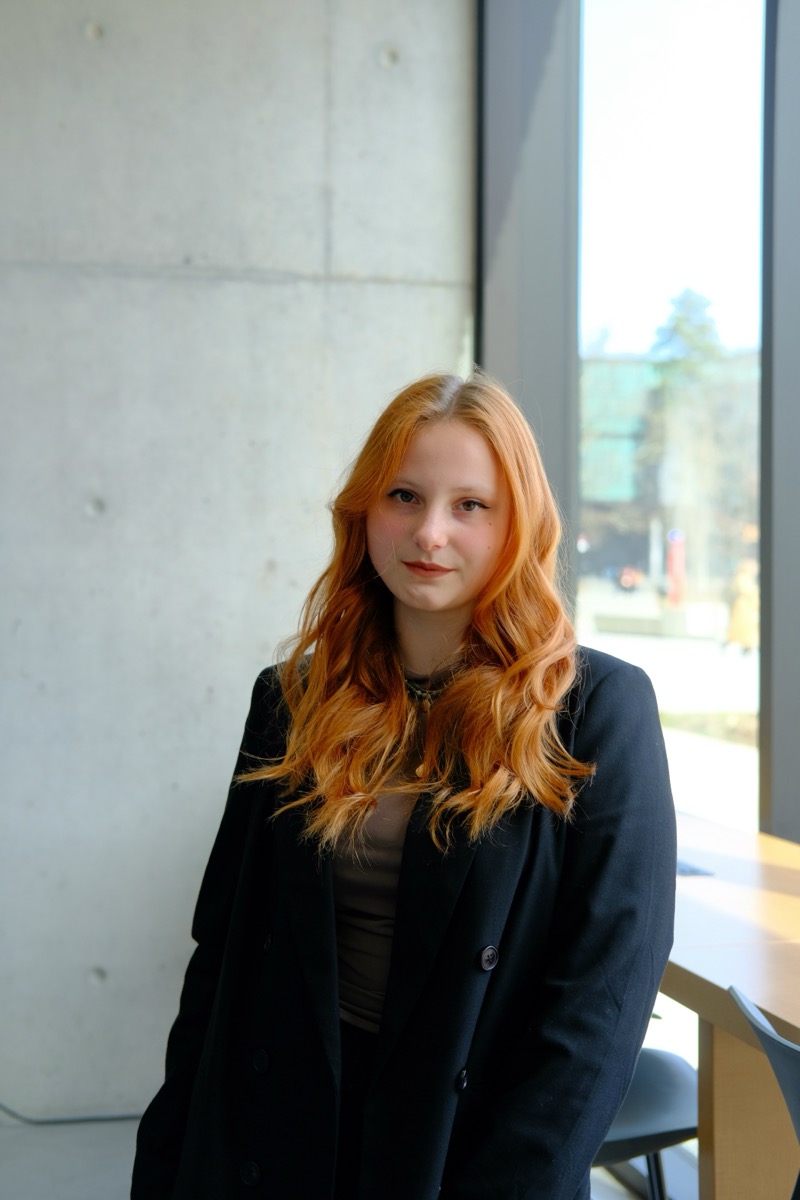
Alisa Chichvarina
University of Toronto Mississauga
Specialist in Finance
Major in Economics
Research Topic: Ecocide as a War Instrument: How Russian Military Aggression in Ukraine is Creating a Long-lasting Ecological Crisis in Eastern Europe

Amna Habiba
University of Toronto Mississauga
Specialist in Molecular Biology
Research Topic: Incorporating Anticipatory Thinking within Science Diplomacy to Bridge Gaps in Cancer Research and Care: Lessons from Geneva

Ashiya Dewan
University of Toronto – St. George
Faculty of Arts & Science – Trinity College
Double Majors in Peace, Conflict & Justice and Ethics, Society & Law
Research Topic: UNDRIP in Action or Inaction: Evaluating the Effectiveness of the United Nations Declaration of Rights of Indigenous Peoples in Canada, Australia and New Zealand

Ella Zhang
University of Toronto – St. George
Faculty of Arts and Science – Innis College
Specialist in English
Minor in East Asian Studies
Research Topic: Ink, Code, and Resistance: Digital Feminist Storytelling in Chinese Slash Fiction

Eno Ma
University of Toronto – St. George
Faculty of Arts & Science – Trinity College
Double Majors in Peace, Conflict & Justice and Economics
Minor in European Affairs
Research Topic: Restitution on Hold: Legal and Bureaucratic Gridlock Behind the UK’s Stewardship of Disputed Artifacts

Harpuneet Singh
University of Toronto – St. George
Faculty of Arts & Science – Trinity College
Specialist in Computer Science
Research Topic: Optical Dyeing of Sperm Cells in Sexual Assault Victim Samples Using a Variable Multi-spectral LED Array

Jacob Rudolph
University of Toronto – St. George
Faculty of Arts & Science – Trinity College
Double Majors in Economics and Public Policy
Minor in Mathematics
Research Topic: Rhetoric or Responsiveness: The Effect of Local-Campaigning on Electoral Success and Parliamentary Behaviour

Janhavi Pasricha
University of Toronto – St. George
Faculty of Arts & Science – New College
Double Majors in Criminology & Sociolegal Studies and Political Science
Research Topic: The Concept of Rights in the Sanskrit World

Jason Bouramia
University of Toronto – St. George
Faculty of Arts & Science – Trinity College
Double Majors in International Relations and Peace, Conflict, & Justice
Research Topic: Mobilizing the Railway: Unraveling Insights from the Spanish High-Speed Rail Project for Canadian Infrastructure Dynamics

Joy Luo
University of Toronto – St. George
Faculty of Music
Major in Comprehensive Studies: Classical
Research Topic: Exploring the Value of Music Education in China’s Educational Landscape

Katrina Eilender
University of Toronto – St. George
Faculty of Arts & Science – Victoria College
Specialist in Human Geography
Minor in Spanish
Research Topic: Navigating Precarity for Youth in Toronto: The Role of The Social Economy

Lauren Thomas
University of Toronto – St. George
Faculty of Arts & Science – Trinity College
Double Majors in Political Science and Peace, Conflict, & Justice
Research Topic: Navigating Maritime Sovereignty: A Historical Analysis of Maritime Delimitation Disputes at the Dixon Entrance

Lianne Ohayon
University of Toronto – St. George
Faculty of Arts & Science – Trinity College
Double Majors in Health Studies and Global Health
Minor in Political Science
Research Topic: Analyzing the Effect of Healthcare System and Socioeconomic Status on Healthcare Access During COVID-19: A Cross-Country Review

Luke Inoue
University of Toronto – St. George
Faculty of Arts & Science – University College
Double Majors in Molecular Genetics & Microbiology and Physiology
Minor in Philosophy
Research Topic: The Role of DEAD-box Helicase DDX53 in Autism

Maia Cassie
University of Toronto – St. George
Faculty of Arts & Science – Victoria College
Major in Sociology
Double Minors in Women & Gender Studies and Political Science
Research Topic: Reclaiming the Feed: Examining and Transforming Social Media Scrolling for Young Women

Malaika Bunzigiye
University of Toronto – St. George
Faculty of Arts & Science – New College
Double Majors in Urban Studies and Peace, Conflict & Justice
Minor in Sexual Diversity
Research Topic: Search for Congo’s Lost Sovereignty: The Role of Art in the Loss and Recovery of Political and Economic Power

Natashia Septirymen
University of Toronto Scaborough
Double Majors in English and Psychology
Research Topic: Lu Bolehin Mereka Baca Itu? / You Let Them Read What?: Constructing a Culturally Relevant Recommendation for the Selection and Censorship of Children’s Literature by Parents in Indonesia

Olivia Hofman
University of Toronto – St. George
Faculty of Arts & Science – Trinity College
Double Majors in Public Policy and Ethics, Society & Law
Research Topic: Legal Barriers To Self-Determination: Governance and Independence Movements in Disputed Territories

Rachel Strathdee
University of Toronto – St. George
Faculty of Arts & Science – Trinity College
Specialist in International Relations
Major in History
Research Topic: Emerging Autocracies: Understanding Regime Development after Genocide and Civil War

Rie Aiyama
University of Toronto – St. George
Faculty of Arts & Science – Trinity College
Double Majors in International Relations and Contemporary Asian Studies
Minor in Political Science
Research Topic: Voices of the Future: A Study of Youth Protest Culture in Japan
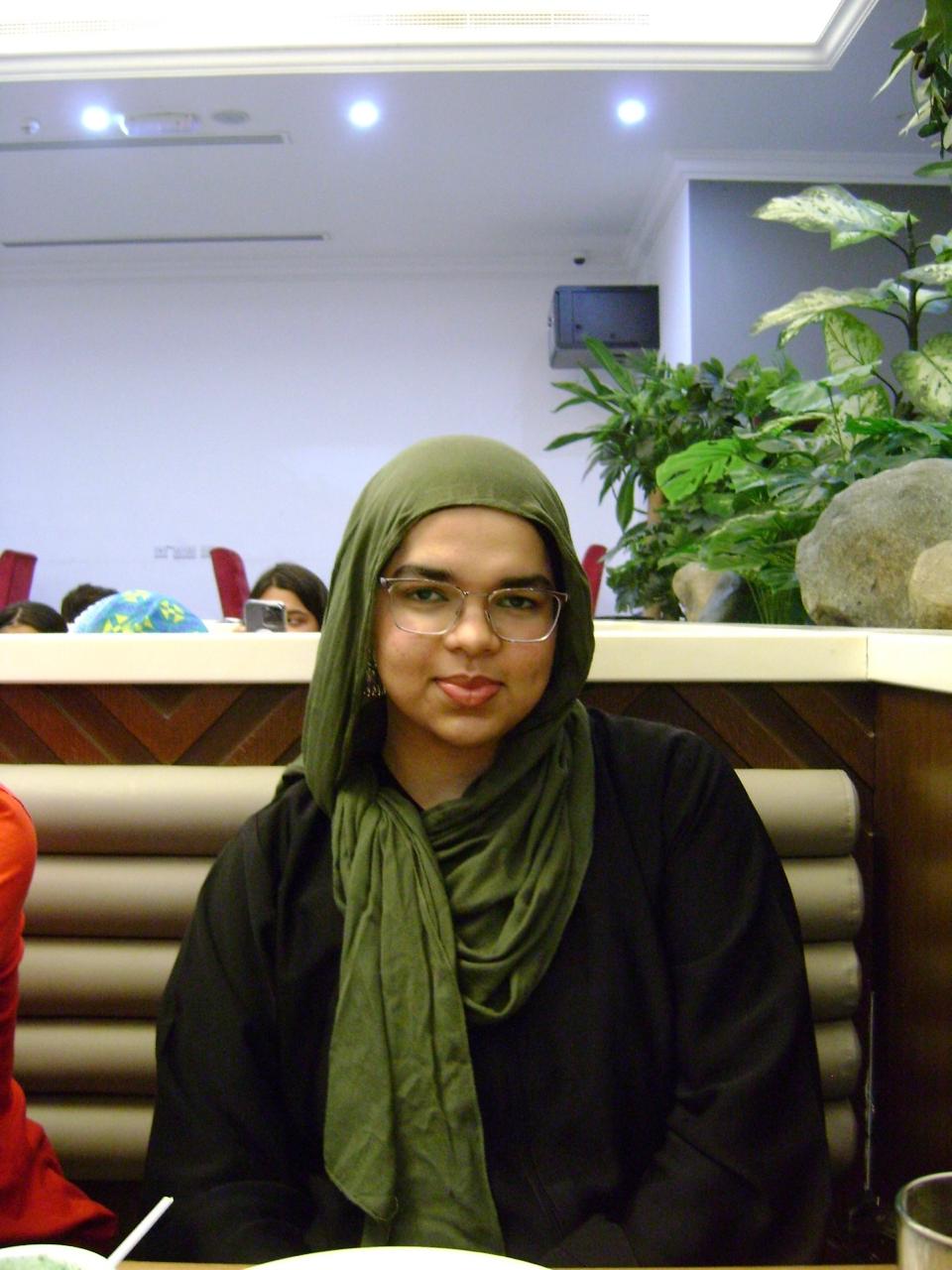
Ronaish Arshad
University of Toronto Scaborough
Specialist in Neuroscience
Minor in Philosophy
Research Topic: Palliative care in Pakistan: A Scoping Review and Expert Consultation on Current Approaches, Barriers to Care, and Culturally Appropriate Interventions

Samuel Roshan Kamalendran
University of Toronto Mississauga
Major in Political Science
Double Minors in English and Classical Civilizations
Research Topic: In the Valley of the Shadow of Death: Evaluating the protection afforded to vulnerable Canadians by Bill C-7

Vedant Harlalka
University of Toronto – St. George
Faculty of Applied Science and Engineering
Electrical and Computer Engineering
Research Topic: Toward the Perfect Glazed Façade Via Integration of an AI-driven Energy Control System

Viktoria Springer
University of Toronto – St. George
Faculty of Arts & Science – University College
Major in Human Biology
Double Minors in Immunology and Physiology
Research Topic: Investigating Immune Dysregulation in Parkinson’s Disease Pathogenesis: An Integrative, Interdisciplinary Analysis via Multi-Omic and Preclinical Models

Yinuo Fang
University of Toronto – St. George
Faculty of Applied Science and Engineering
Aerospace Science and Engineering
Research Topic: A Future Only ‘Generated’ for Some: An Investigation into the Gender Bias in Generative AI Models Fine-tuned on Stereotyped or Sexist Datasets
2024 Scholars

Aisha Mir
University of Toronto Mississauga
Major: Biology for Health Sciences; Double Minor: Anthropology; Business, Science, & Entrepreneurship (BSE)
Research Topic:How Do Environmental Factors Affect Sleeping Patterns in the Adolescent BaYaka Population?

Alanna Jane Sethi
University of Toronto Mississauga
Intended Specialist: Psychology
Research Topic: Many Paths to Wellbeing: Towards an Understanding of Distinct Mindfulness Mechanisms and the Matching Potential for People to Practices

Amelia Hui
University of Toronto – St. George
Faculty of Arts & Science – Trinity College
Intended Major: International Relations, Public Policy
Research Topic: Visual Culture in Hong Kong in the Wake of the 2019 Democratic Protests

Candace Sara Ciju
University of Toronto – St. George
Faculty of Arts & Science – Trinity College
Double Major: Peace, Conflict & Justice, History
Sustainability Pathways Certificate
Research Topic: Faith in Action: Examining Synergies Between Faith-Based Organizations and Interfaith Alliances for Philanthropy, Development, and Communal Harmony in India

Caroline Ho
University of Toronto – St. George
Faculty of Arts & Science – Trinity College
Double Major: Public Policy, Sociology; Minor: Education and Society
Research Topic: The Impact of Different Education Systems on Social Mobility
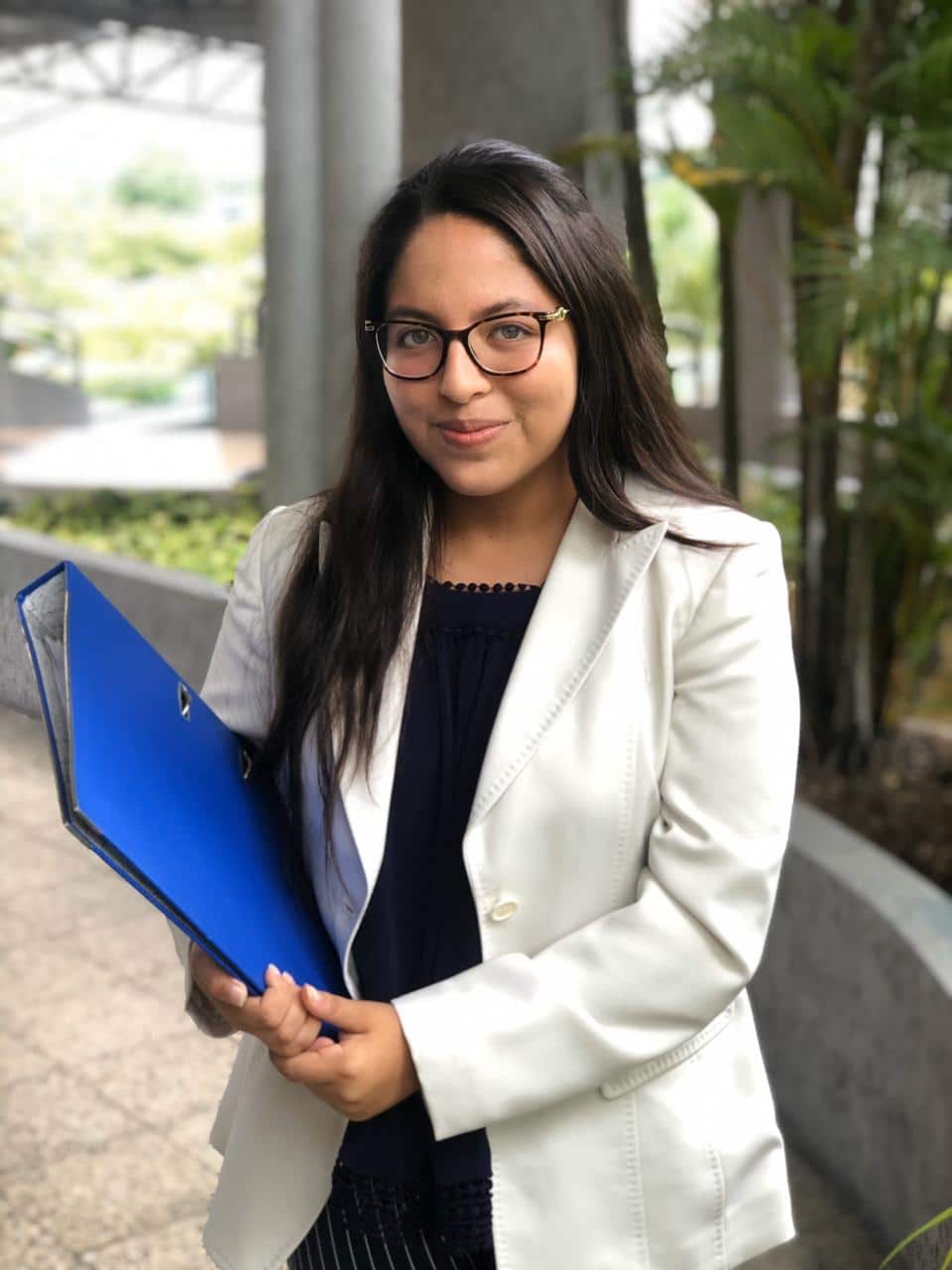
Cecilia Padilla Vizueta
University of Toronto – St. George
Faculty of Arts & Science – Trinity College
Major: Peace, Conflict & Justice; Double Minor: Political Science, Digital Humanities
Research Topic: What Explains Ecuador’s Late Integration into the Regional Trend of Powerful Non-State Armed Actors Infiltrating Government Branches and Using Violence to Shape Political Outcomes?
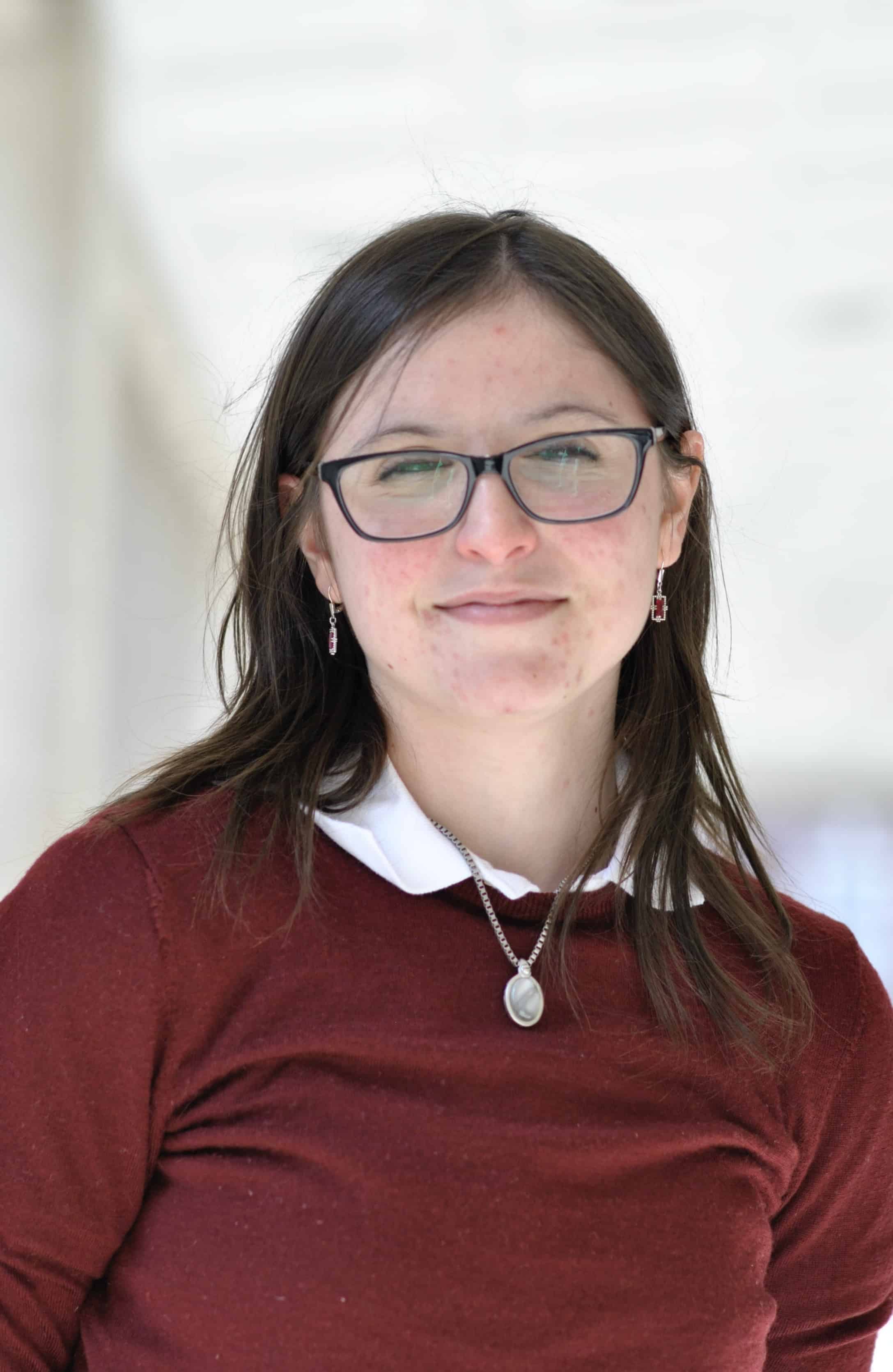
Chiara Puglielli
University of Toronto – St. George
Faculty of Arts & Science – Trinity College
Double Major: Ethics, Society & Law, Political Science; Minor: Urban Studies
Research Topic: Do We Know What Fascists Hate? A Qualitative Evaluation of How Theorists Understand “Enemies” in Contemporary Fascist Regimes

Christina Mai
University of Toronto Scarborough
Department of Political Science
Double Major: Political Science, Public Policy; Minor: Philosophy
Research Topic: Closing Canada’s Abortion Access Gap: Legal, But Not Accessible

Elliot Savin
University of Toronto – St. George
Faculty of Arts & Science – Woodsworth College
Intended Major: Peace, Conflict & Justice, Philosophy, Political Science; Intended Minor: Critical Studies in Equity
Research Topic: Analyzing the Efficacy of the International Criminal Court in Punishing and Deterring Crime Internationally

Felipe Sarmiento Gómez
University of Toronto Scarborough
Specialist: Conservation & Biodiversity; Minor: Geographic Information Systems
Research Topic: Pollination Networks of Cacao Agroforestry Systems in Colombia

Giorgi Kaikatsishvili
University of Toronto Mississauga
Double Major: Economics, Political Science
Research Topic: Rays of Equity: Overcoming Toronto’s Solar Barriers

Gurra Efendija
University of Toronto – St. George
Faculty of Arts & Science – Trinity College
Major: Health and Disease; Double Minor: Immunology, Psychology
Research Topic: Associations between Polymorphisms in the NFKB1 Gene and Premenstrual Symptoms

Hazel Antiporta
University of Toronto Mississauga
Double Major: Communication, Culture, Information & Technology (CCIT), English;
Research Topic: Dominant Media Messages in Shaping Public Perception of Venezuelan Refugee Experiences: A Qualitative Analysis
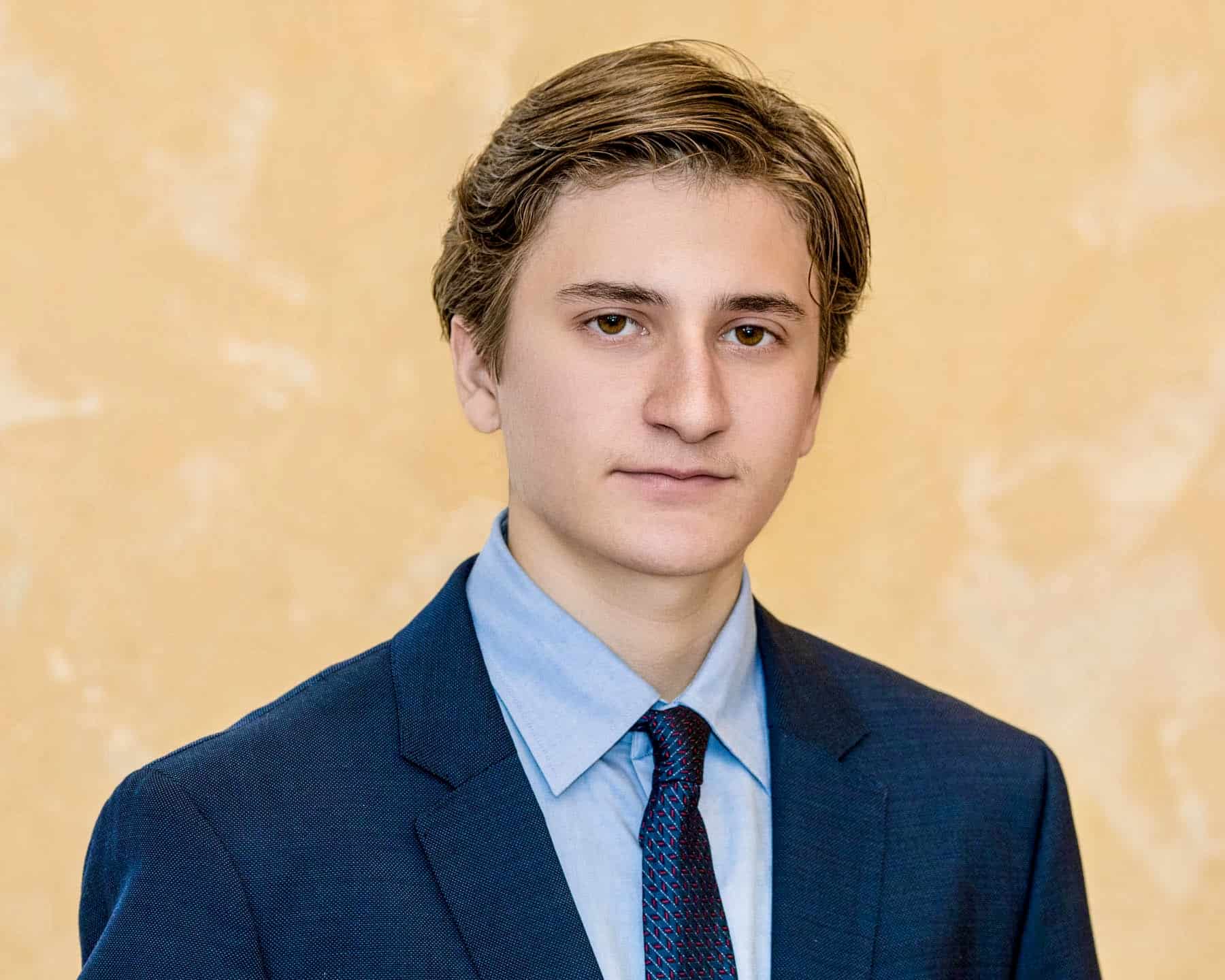
Jacob Freedman
University of Toronto – St. George
Faculty of Arts & Science – Woodsworth College
Intended Major: Economics, International Relations
Research Topic: The Effect of Ultra-Orthodox (Haredi) Jewish Population Growth on the Long-term Viability of the Israeli Welfare State

Kira Jensen
University of Toronto Scarborough
Intended Major: Political Science, Philosophy
Research Topic: Climate Consciousness: Shaping Futures at the University of Toronto

Lia Iannarilli
University of Toronto – St. George
Faculty of Arts & Science – Victoria College
Major: English; Double Minor: Women & Gender Studies, Political Science
Research Topic: How Can Monstrous Portrayals of Queer People in Literature Inform the Contemporary Politicization of LGBTQ+ Identity in Reactionary British media?

Lilah Williamson
University of Toronto – St. George
Faculty of Arts & Science – Trinity College
Double Major: Economics, Public Policy
Research Topic: Designing a Canadian Youth Climate Corps

Liren Abeyratne
University of Toronto – St. George
Faculty of Arts & Science – Victoria College
Intended Major: Molecular Genetics, Neuroscience
Research Topic: Modelling Alzheimer’s Disease with Vascularized Cerebral Organoids

Nathan Li
University of Toronto – St. George
Faculty of Arts & Science – Innis College
Double Major: Political Science, Psychology
Research Topic: Voices Unearthed: Understanding Indigenous Perspectives on the Lahaina Wildfires and Socio-Economic Dynamics in Hawaii

Neha Gupta
University of Toronto – St. George
Faculty of Arts and Sciences – Trinity College
Double Major: Global Health, Physiology; Minor: Immunology, International Affairs Certificate
Research Topic: A Scoping Review of Forms of Psychosocial Support Available to Paediatric Oncology Patients in Nations with Universal Healthcare
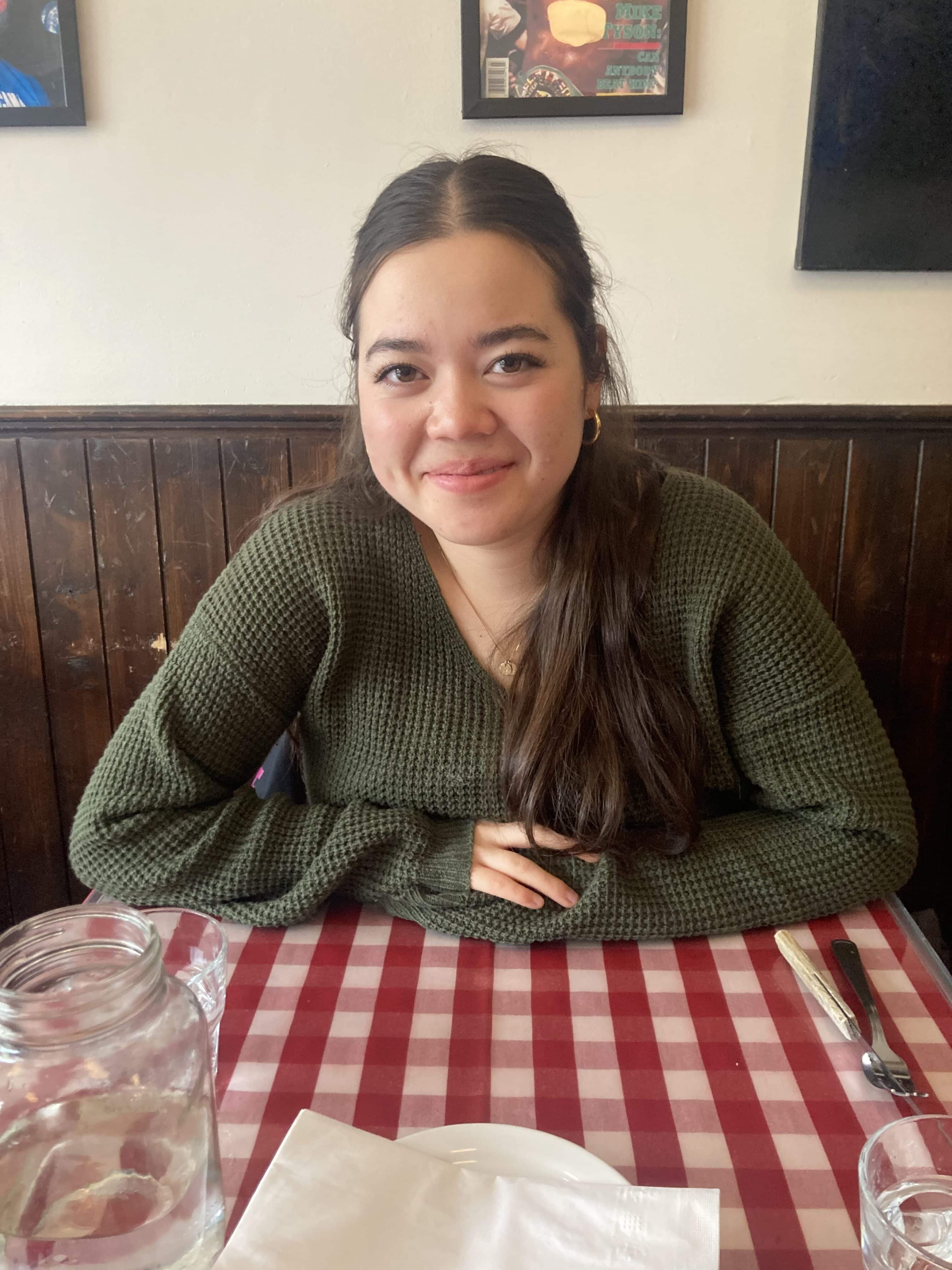
Petrina van Nieuwstadt
University of Toronto – St. George
Faculty of Arts and Sciences – Trinity College
Specialist: Philosophy; Minor: Religion
Research Topic: The Epistemic Status of Miracles within the Formation of Religious Belief: A Cross-Cultural Analysis

Sahana Prabhu
University of Toronto – St. George
Faculty of Applied Sciences and Engineering
Major: Electrical & Computer Engineering; Double Minor: Sustainable Energy, Artificial Intelligence Engineering
Research Topic: Resilience in Recovery: The Unblocked Cash Project and Blockchain Humanitarianism in Vanuatu
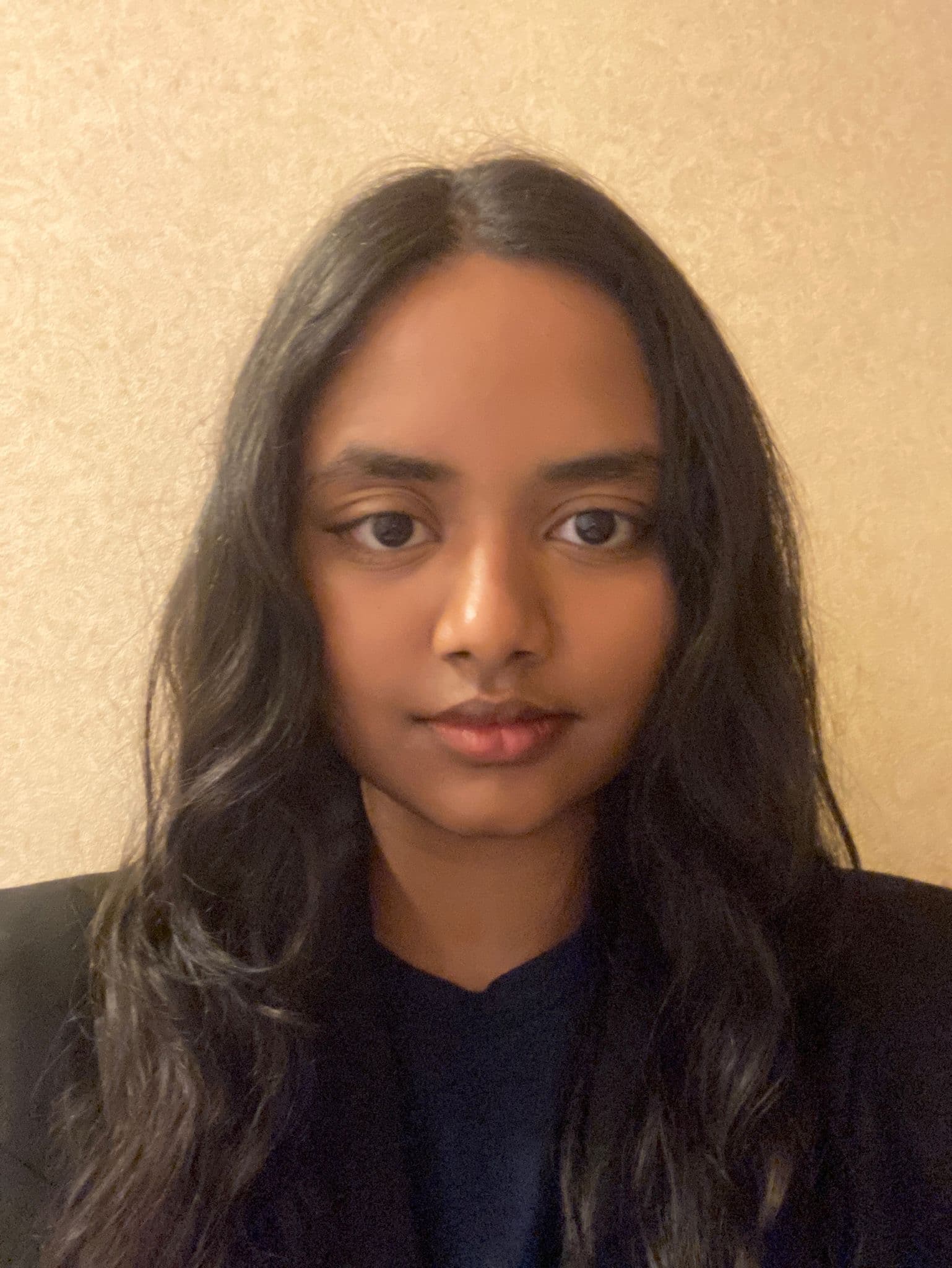
Sindhu Sivasankar
University of Toronto – St. George
Faculty of Arts & Science – Innis College
Intended Specialist: Psychology; Intended Major: Cognitive Science
Research Topic: How Growth Mindsets Relate to Cultural Differences in Insight Problem-Solving

Theo O’Connell
University of Toronto – St. George
Faculty of Arts & Science – Trinity College
Intended Major: Peace, Conflict & Justice, Ethics, Society & Law
Research Topic: Lost in Translation: Investigating Ontario’s English–French Performance Gap on EQAO Tests
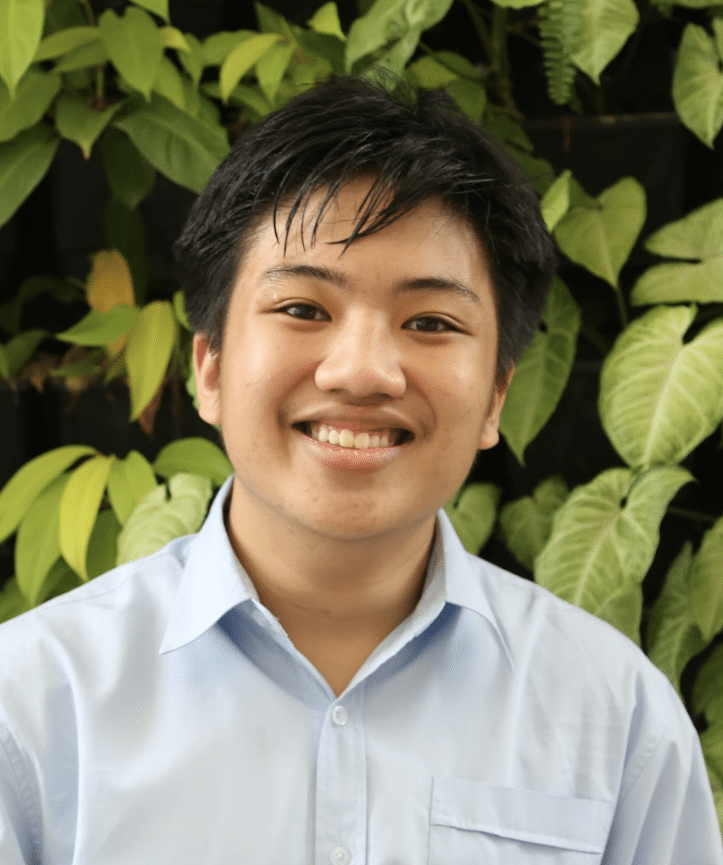
Tyler Dela Cruz Carriaga
University of Toronto – St. George
John H. Daniels Faculty of Architecture, Landscape & Design
Specialist: Architectural Studies; Major: Public Policy; Minor: Economics
Research Topic: (Re)making Home: Comparative Community Development in Seattle’s Chinatown-International District
2023 Scholars
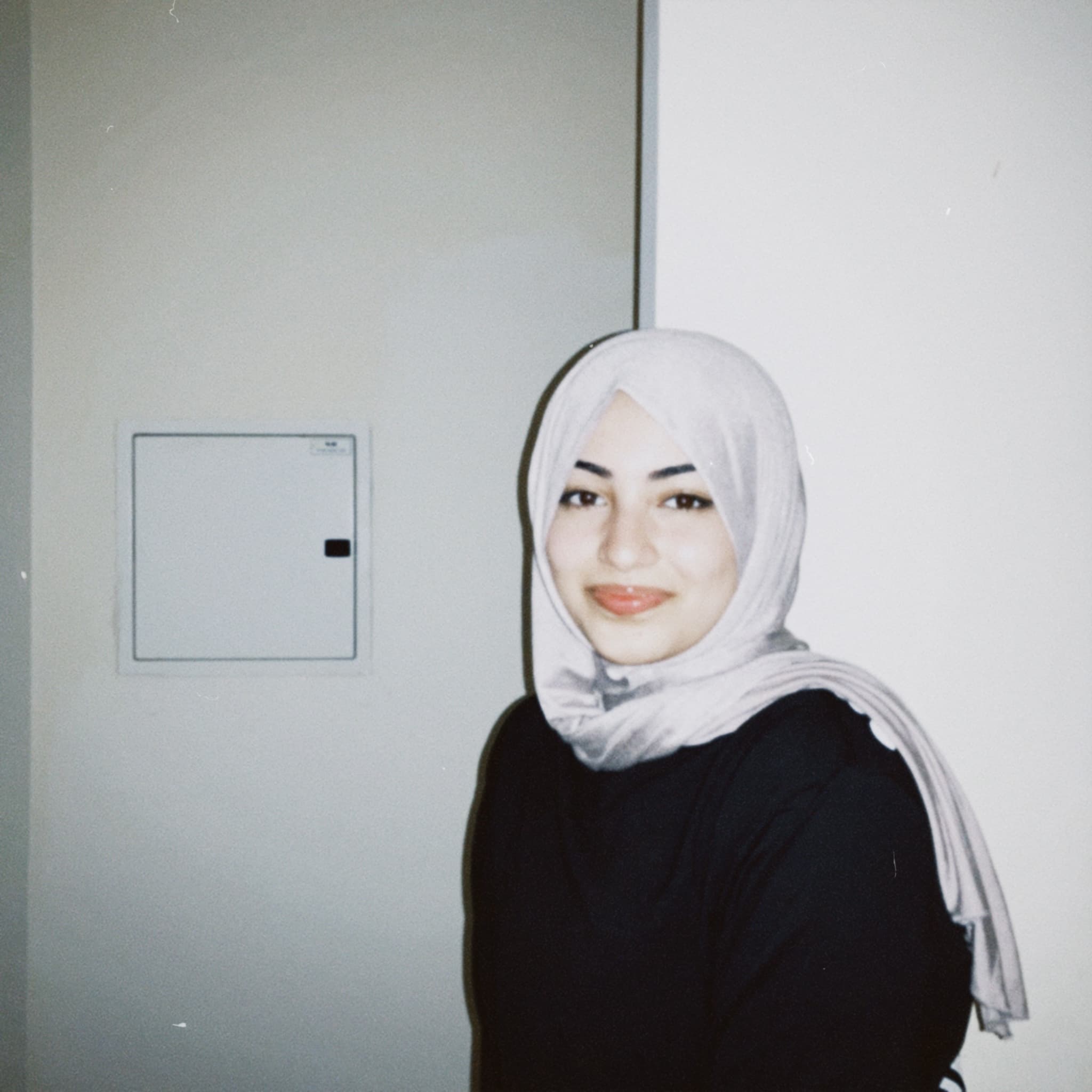
Alazne Qaisar
University of Toronto – St. George
Faculty of Arts and Science – University College
Major: Peace, Conflict & Justice Studies; Double Minors: Political Science and South Asian Studies
Research Topic: What factors contribute towards the cultivation of rape culture among young male students in India? Investigating the sources of misogyny and sexual violence in schools and colleges through a case study of Delhi.
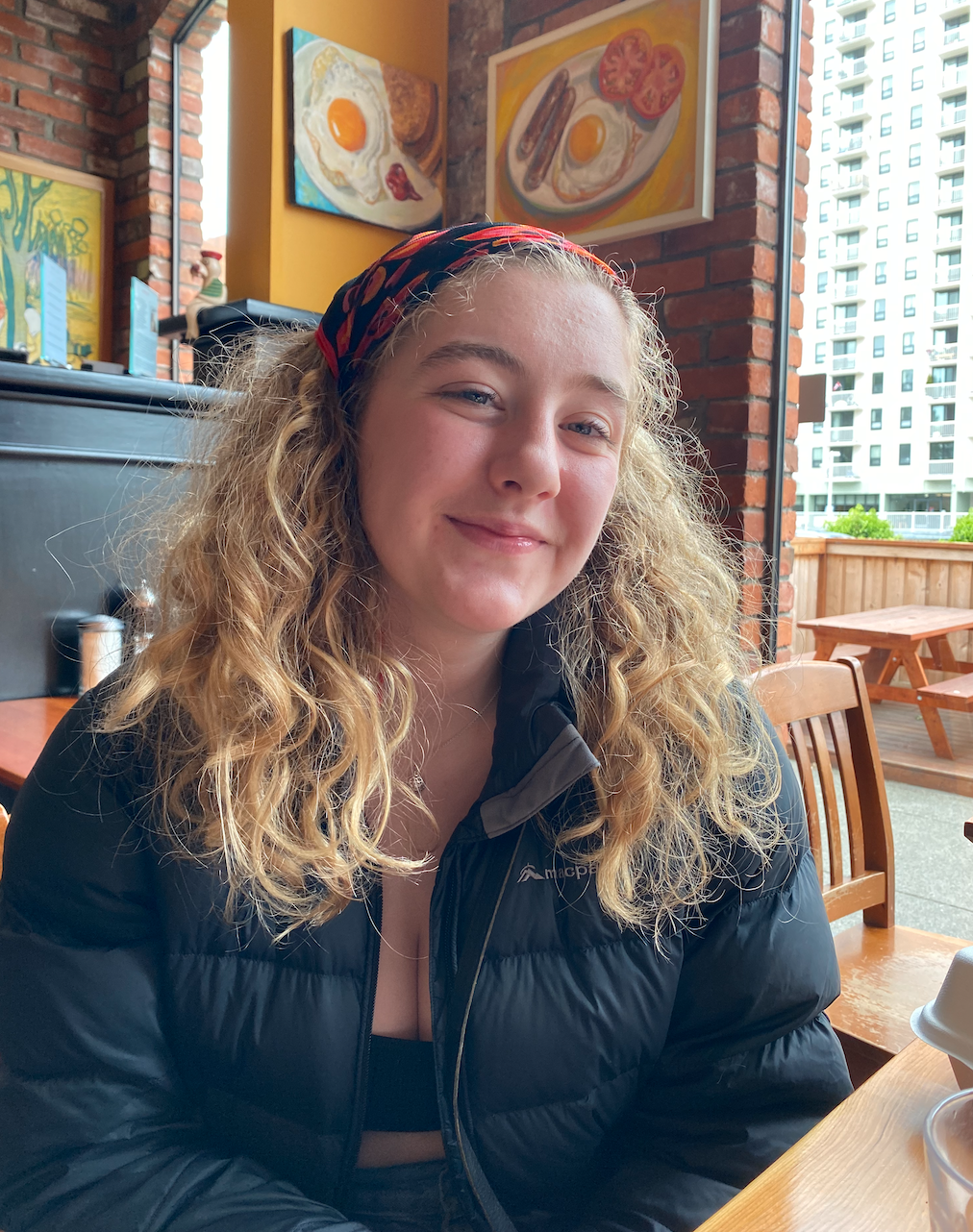
Alice Ferguson-O’brien
University of Toronto St. George
Faculty of Arts and Science – Trinity College
Double Majors: Cognitive Science and Philosophy
Research Topic: Is Uncertainty at the Core of Conspiracy Theory Belief and Cognitive Pathologies?
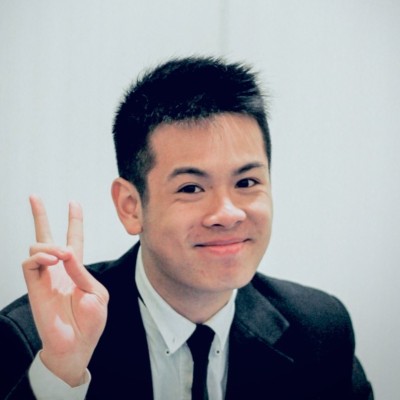
Andy liao
University of Toronto St. George
Faculty of Arts and Science – Woodsworth College
International Relations Specialist
Research Topic: The Impact of the War in Ukraine on Food Insecurity in Developing Economies: A Case Study of the Effects of Food Inflation on the Urban Population in Colombo, Sri Lanka.
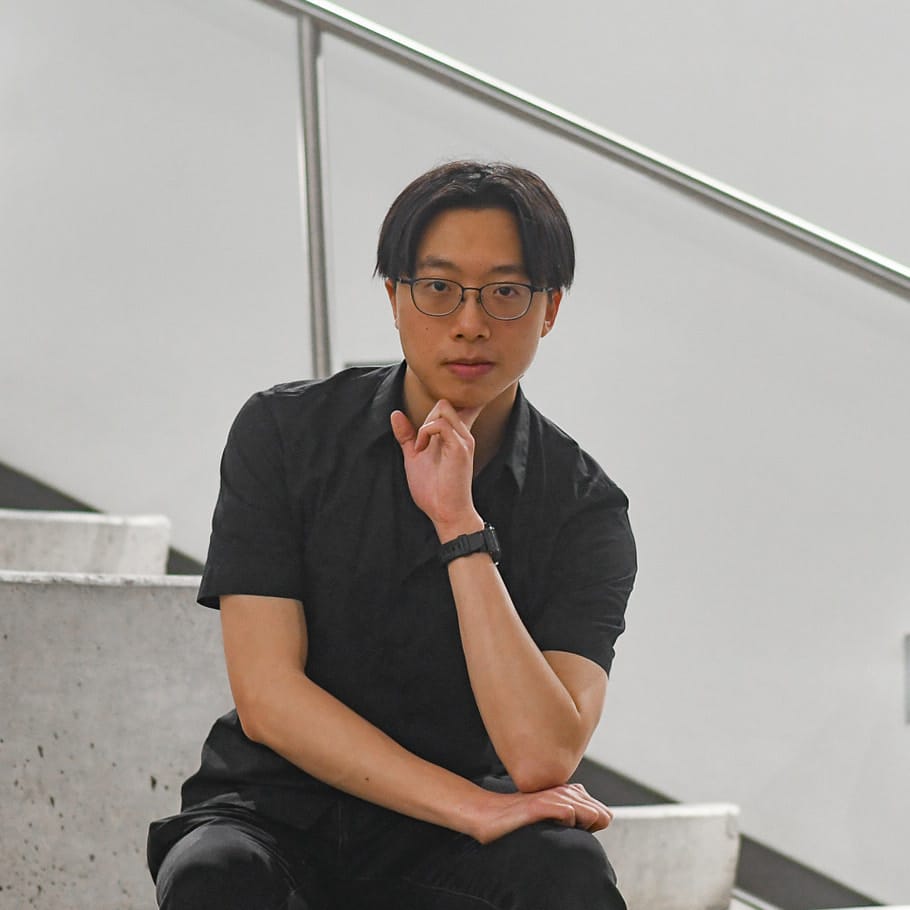
Augustine wong
University of Toronto St. George
John H. Daniels Faculty of Architecture, Landscape & Design
Architectural Studies Specialist; Minor: Forest Conservation (Arts)
Research Topic: How can learnings from the evaluation of company town developments in the nineteenth and twentieth centuries be applied to modern corporate-dominated settlements?

Bavan Pushpalingam
University of Toronto Scarborough
Major: Public Policy; Double Minor: French and Food Studies
Research Topic: Urban Food Insecurity and Scarborough’s Racialized Youth.

Benji jacob
University of Toronto Mississauga
Double Major: Psychology & Biology for Health Science; Minor: Biomedical Communications
Research Topic: Giving Voice: Understanding Personality Development & Well-Being in Queer People of Color at the University of Toronto Mississauga.
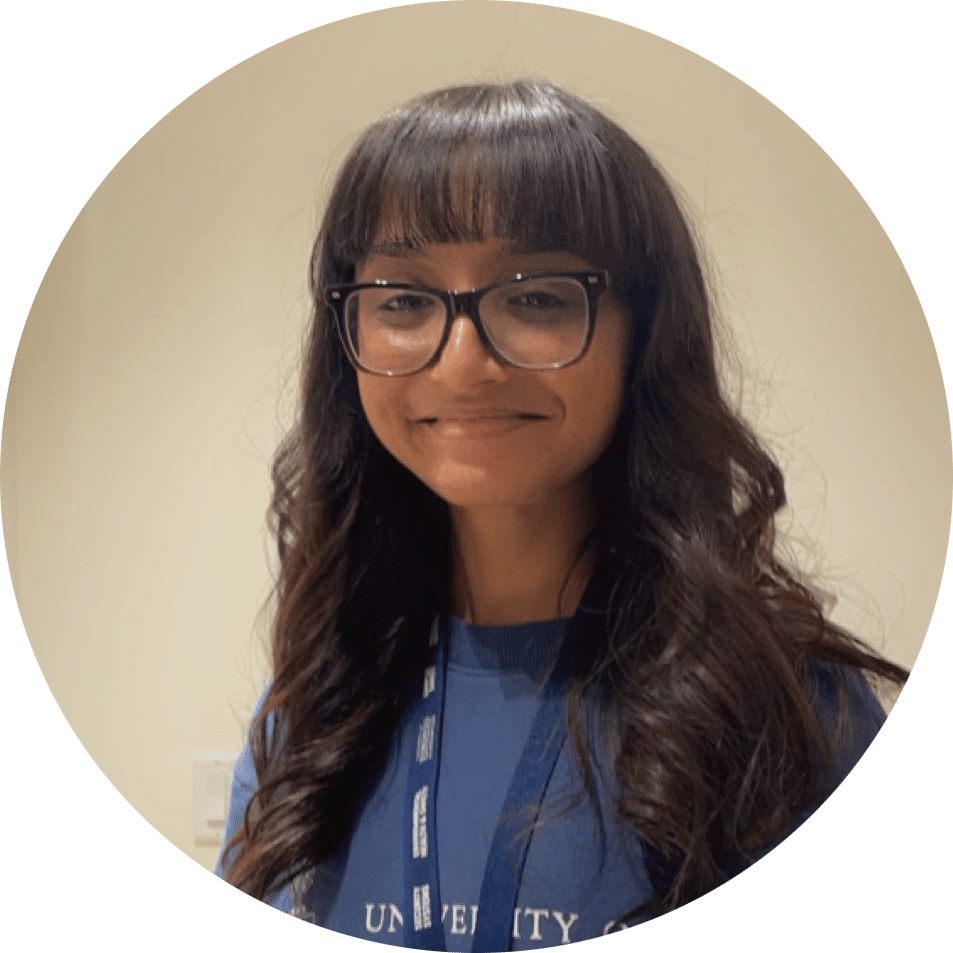
Bhavana akilan
University of Toronto Scarborough
Double Majors: Neuroscience and Human Biology
Research Topic: Exploring the feasibility of early diagnosis of Alzheimer’s Disease through Deep Learning associated with open source EEG datasets.

boluwatito mafikuyomi
University of Toronto St. George
Faculty of Arts and Science – St. Michael’s College
Major: Global Health; Minor: immunology minor and physiology
Research Topic: Comparing sex differences in post-concussion mental health symptoms among world rugby athletes.
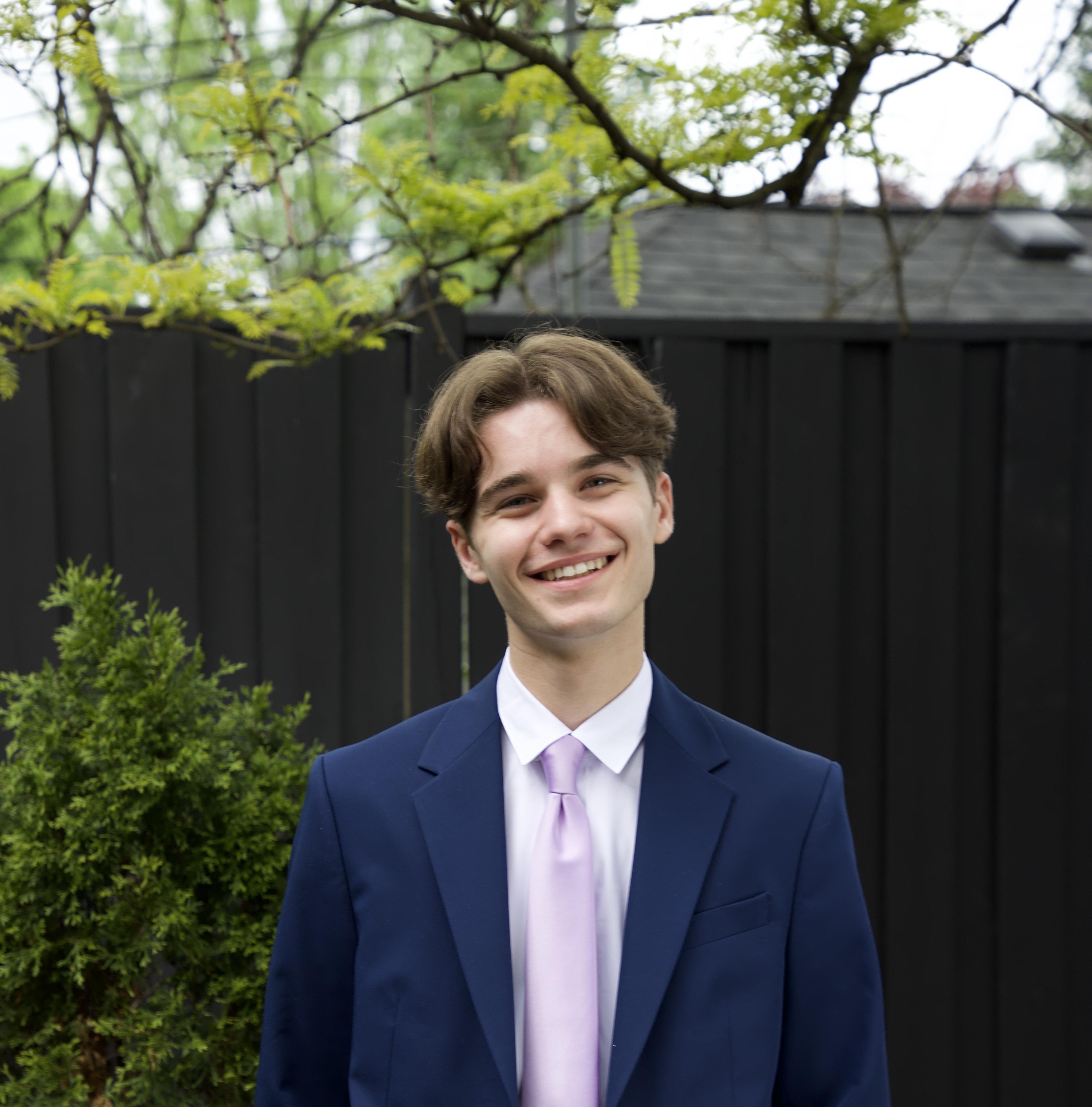
cooper price
University of Toronto St. George
Faculty of Arts and Science – Victoria College
Major: Social Sciences
Research Topic: Sustainable Development and Paris 2024: Evaluating Perceptions of Olympic Sustainability among the Public and Civil Society.
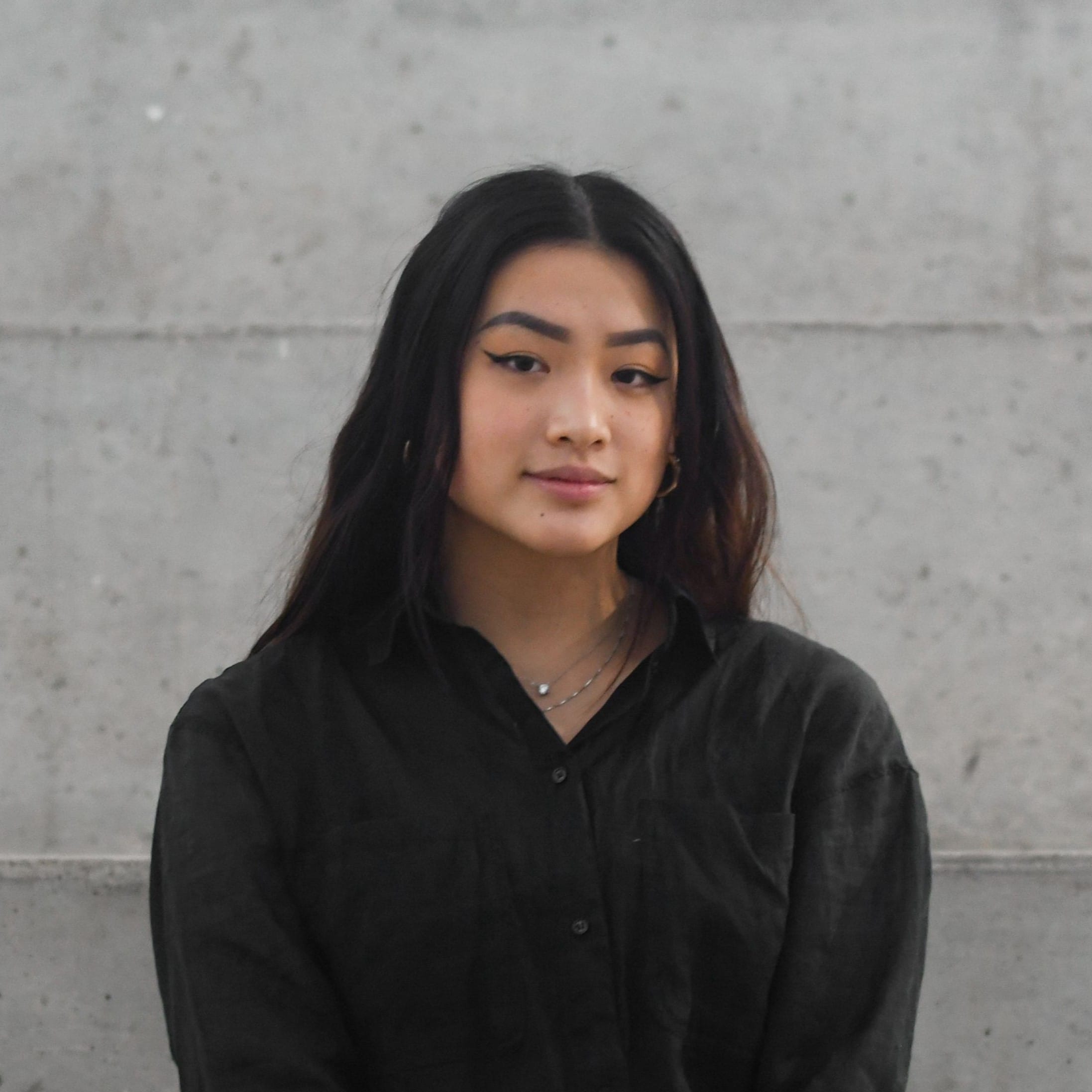
Emma Hwang
University of Toronto St. George
John H. Daniels Faculty of Architecture, Landscape & Design
Architectural Studies Specialist; Major: Human Geography, Focus in Planning
Research Topic: The Invisible City: A Spatial Analysis of Public Infrastructure & Foreign Investment.
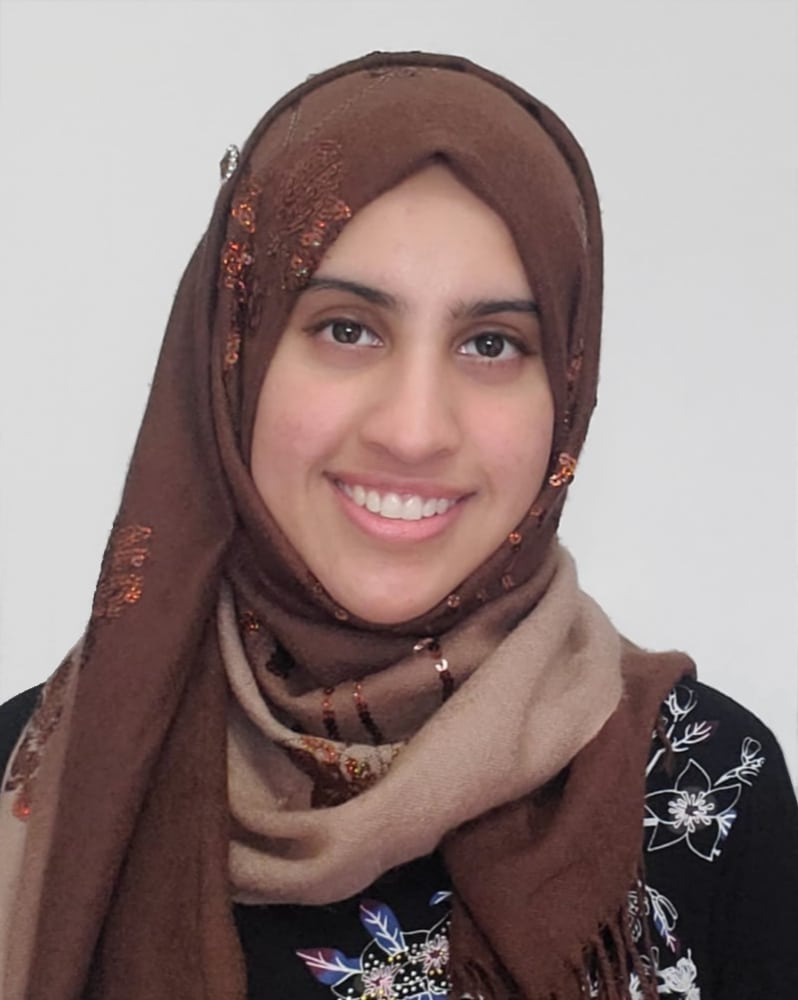
Fatima Qureshi
University of Toronto Scarborough
Mental Health Studies Specialist
Research Topic: The far-right extremist memes on Instagram and the recurring and dominant messages being conveyed through them: A qualitative analysis.

Gabrielle Dumé
University of Toronto St. George
Faculty of Arts and Science – Trinity College
Major: Ecology and Evolutionary Biology; Double Minors: Immunology and English
Research Topic: Community-Led Childhood Obesity Prevention Initiatives in Barbados.
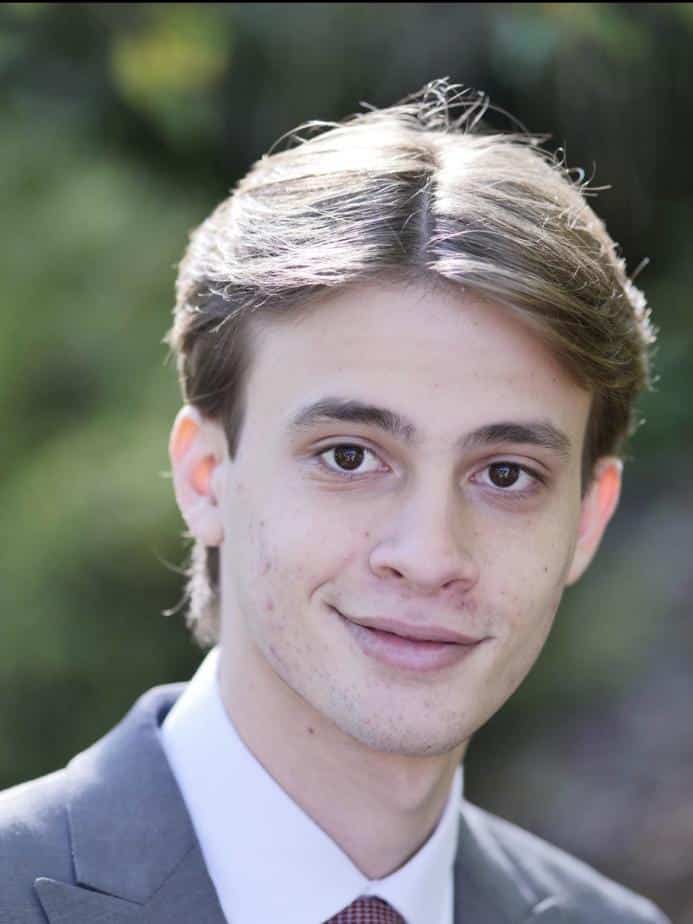
George eilender
University of Toronto St. George
Faculty of Arts and Science – Victoria College
Math and Philosophy Specialist
Research Topic: Right Wing Youtube as a Case Study in the Continuous Mapping of Online Political Communities.
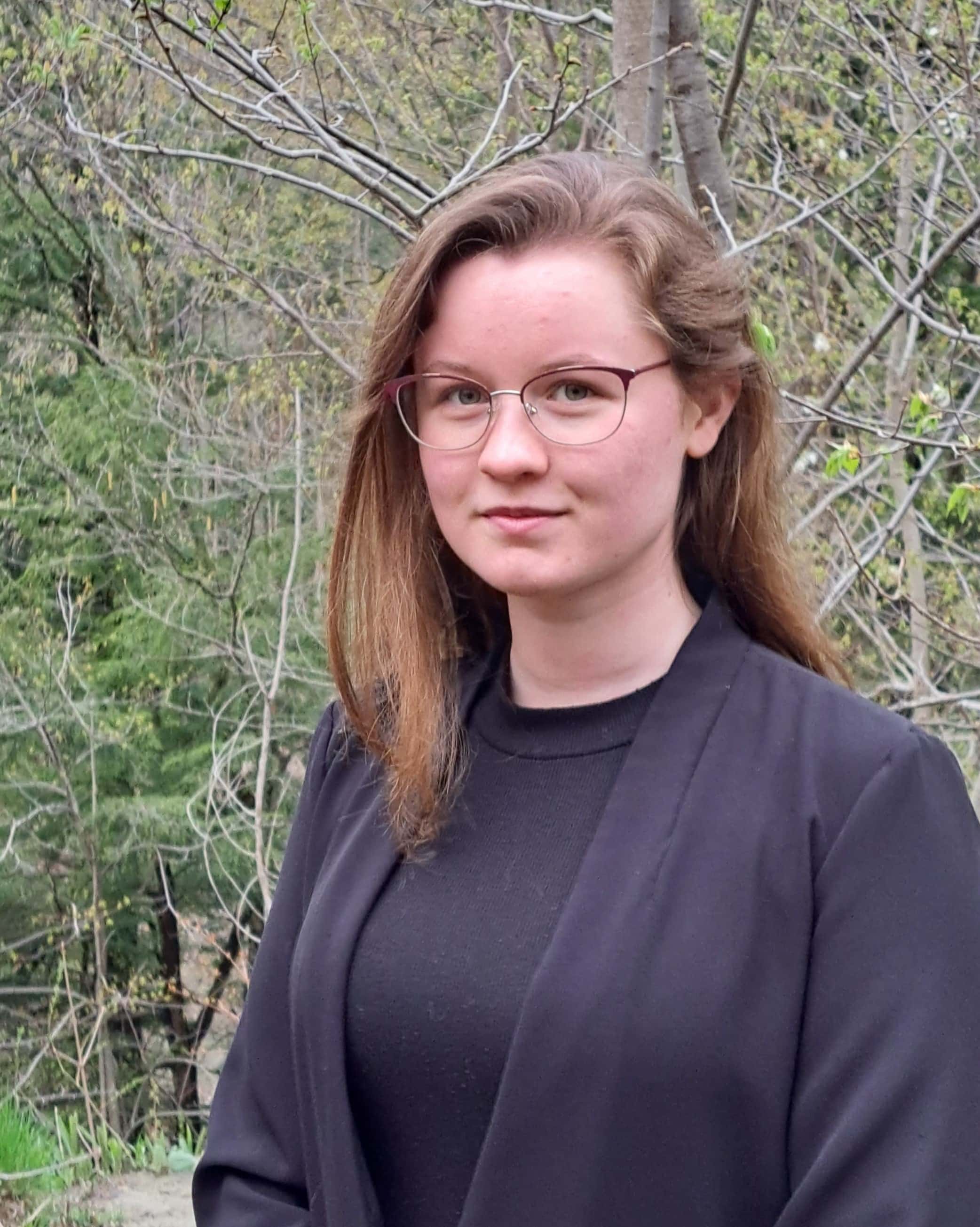
Hannah katherine
University of Toronto St. George
Faculty of Arts and Science – Innis College
Specialist: Literature and Critical Theory (Cultural Stream); Minor 1: Practical French; Minor 2: Creative Expressions and Society, Certificate: Sustainability Pathways
Research Topic: How Can Climate Fiction Inspire Climate Action in Canadian Environmental Politics?
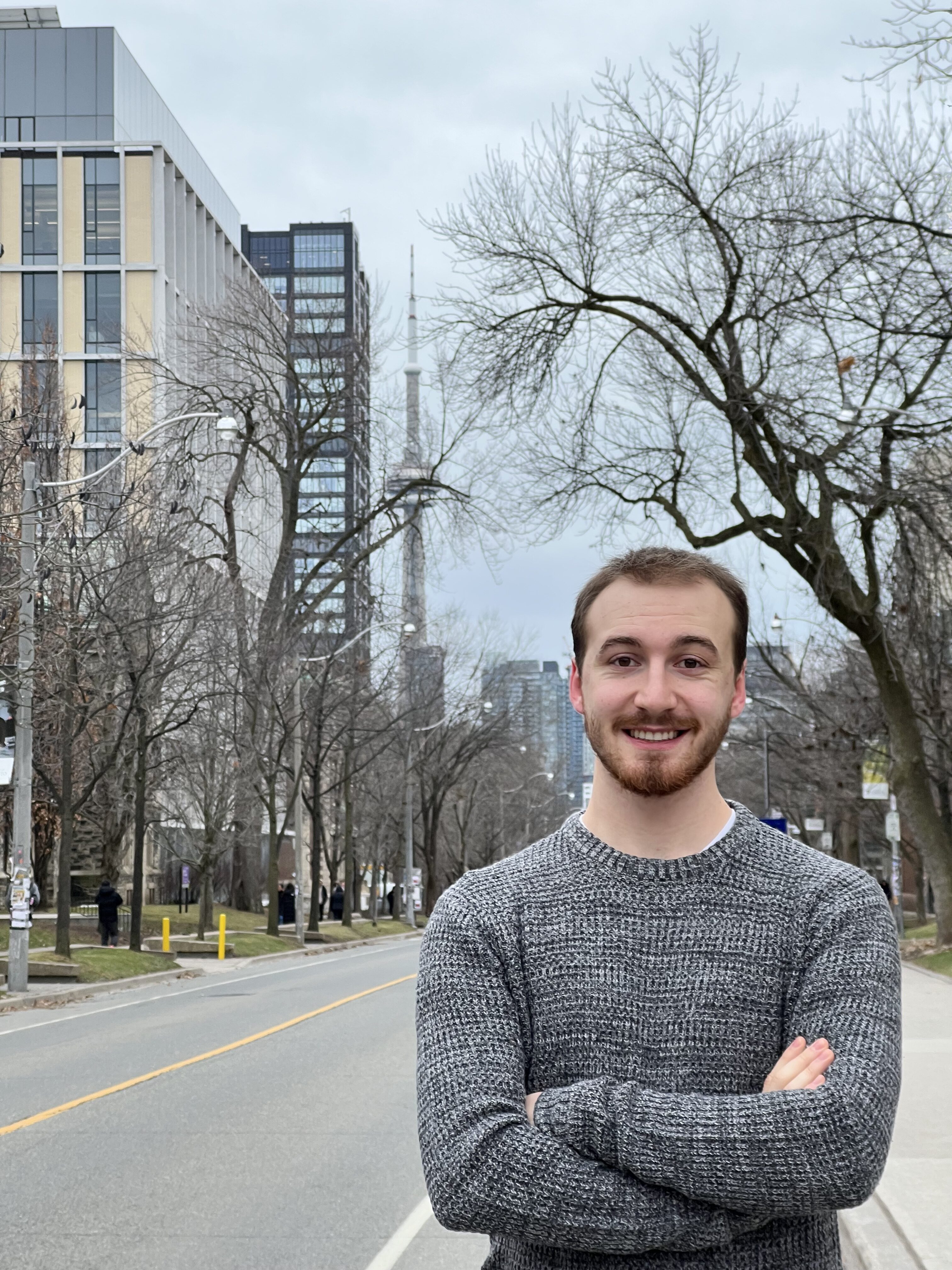
jake barton
University of Toronto St. George
Faculty of Arts and Science – New College
Major: International Relations and Public Policy; Minor: History
Research Topic: Worker-Owned Businesses in Ontario: Why and How They Should Be Encouraged.

Jackie ko
University of Toronto St. George
Faculty of Arts and Science – Victoria College
Major: Criminology & Sociolegal Studies; Minors: Sociology and Writing & Rhetorics
Research Topic: Future of Nuclear Regulatory Regimes: Risk & Liability in South Korea.

kalaishiga kalaichelvan
University of Toronto St. George
Faculty of Arts and Science – Victoria College
Major: Sociology, Minors: Philosophy and French
Research Topic: What role, if any, do hiring practices play in maintaining gender inequality, particularly for women of colour, in accessing health care leadership positions?
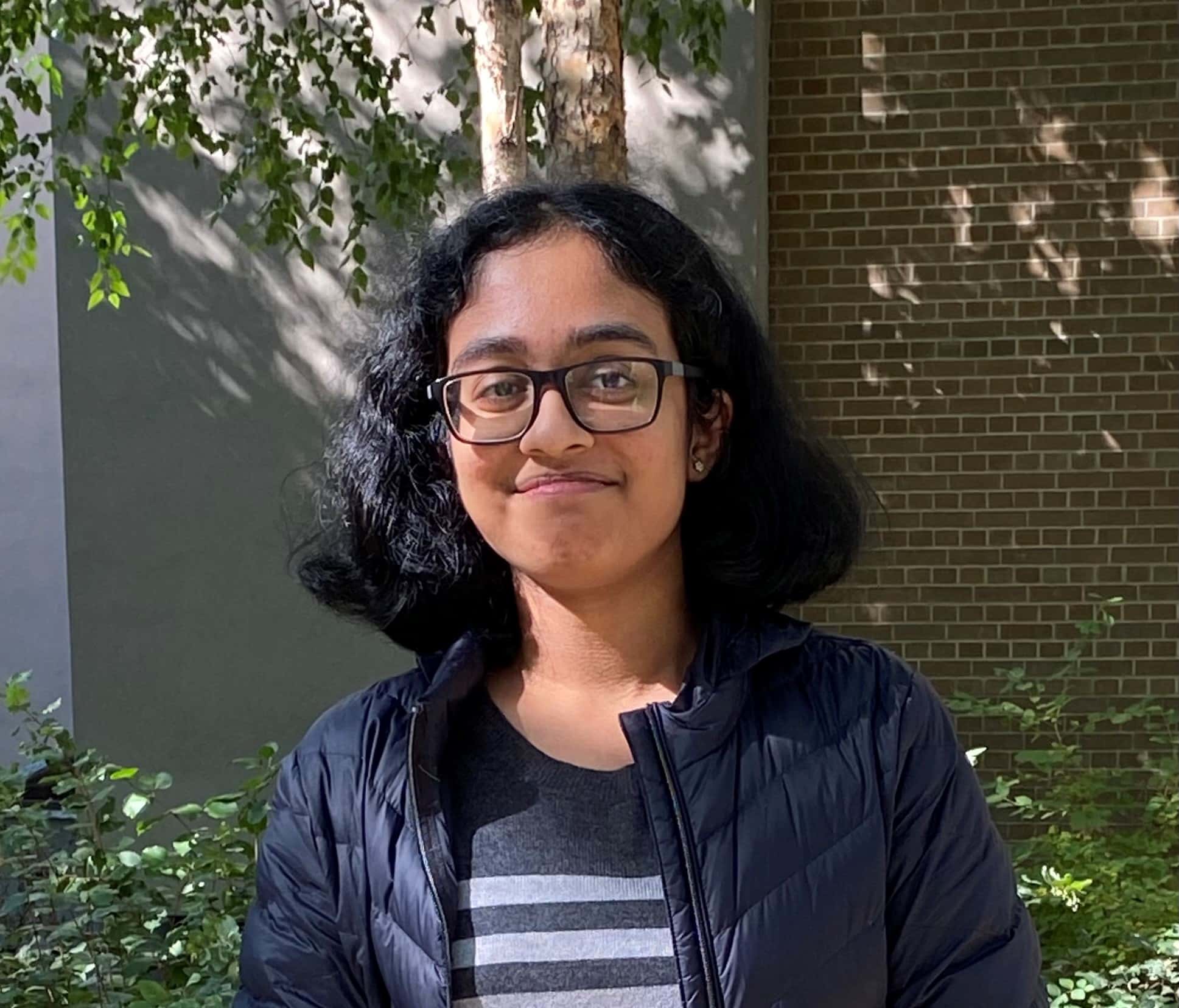
mathula muhundan
University of Toronto St. George
Faculty of Arts and Science – Victoria College
Biochemistry Specialist; Major: Chemistry; Minor: Statistics
Research Topic: Stable isotope labelling of transplanted BAT (brown adipose tissue) to trace metabolites produced by transplant tissue and elucidate a mechanism for BAT regulation of glucose homeostasis.
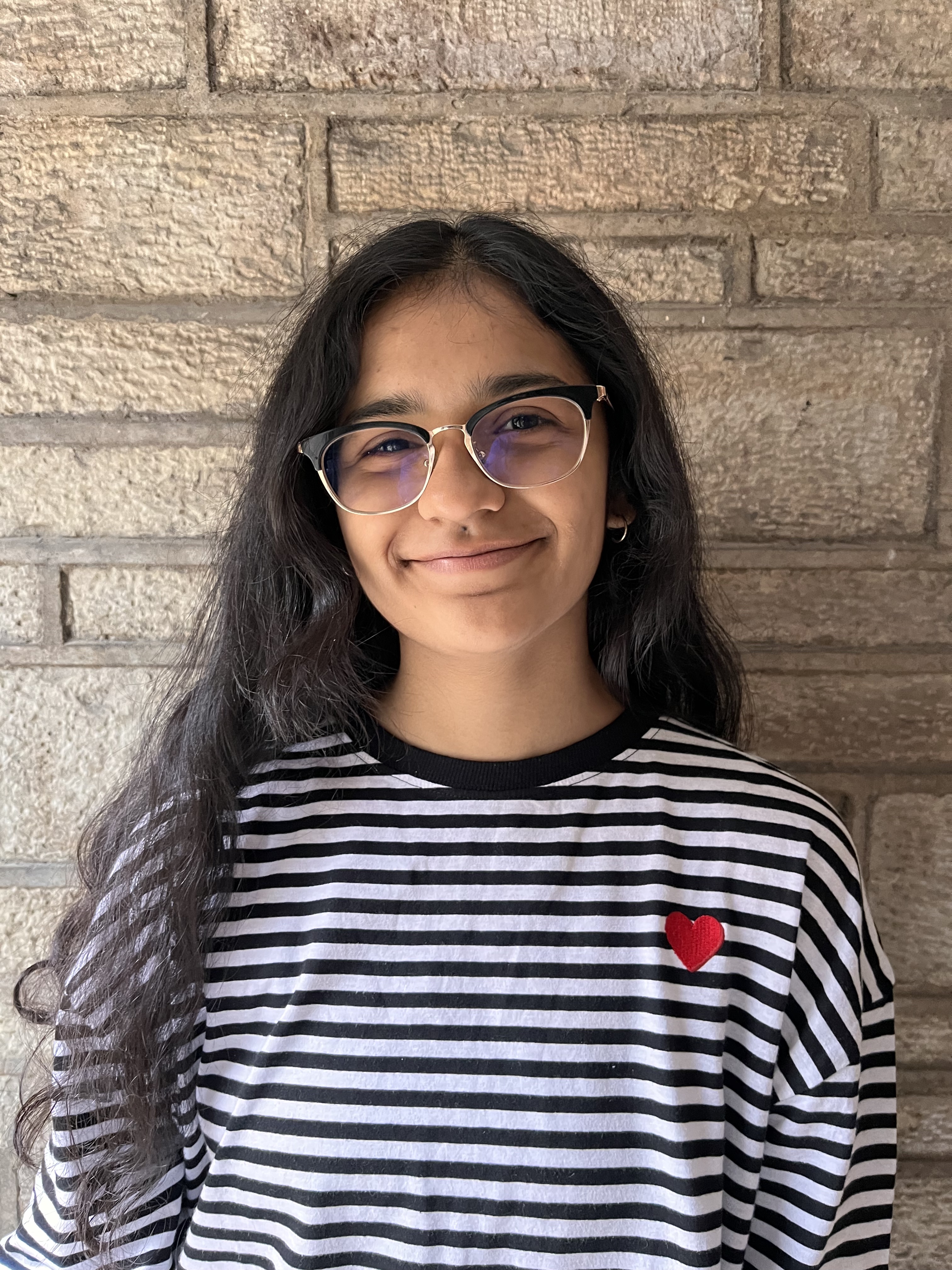
mridula sathyanarayanan
University of Toronto St. George
Faculty of Arts and Science – Victoria College
Intended Major: Neuroscience; Intended Minors: Philosophy, Buddhism, Mental Health, Psychology
Research Topic: The Internal Dimension of Buddhist Meditation Practice.
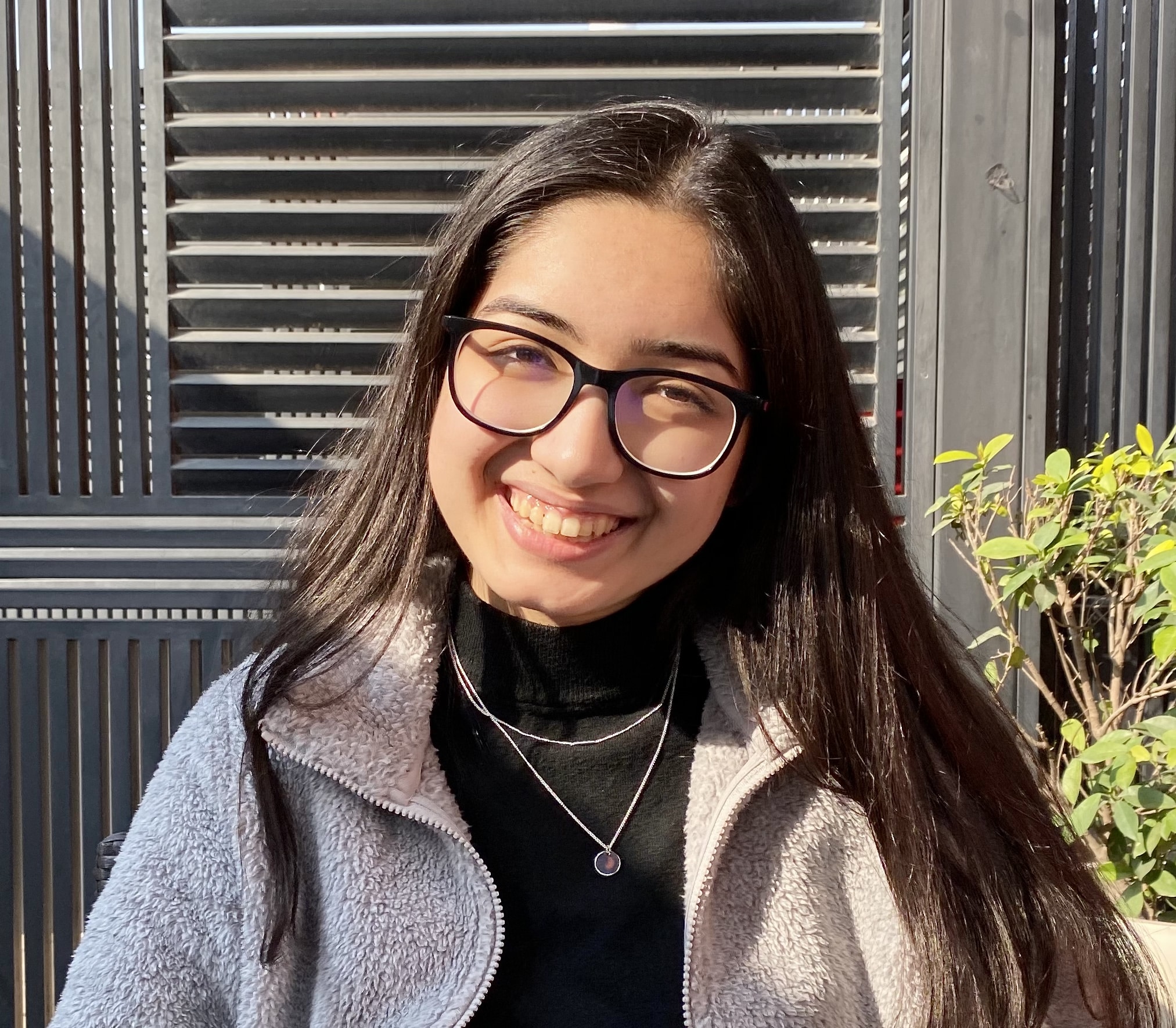
pritika vij
University of Toronto St. George
Faculty of Arts and Science – Innis College
Double Major: Economics and International Relations
Research Topic: Community-led Childhood Obesity Prevention in Barbados.

rebeca alarcon delgado
University of Toronto St. George
Faculty of Arts and Science – Trinity College
Work and Organizations and Political Science
Research Topic: Assessing the impact of technological skills training initiatives on employment outcomes for women from non-traditional backgrounds: Coding Bootcamps in Latin America.

valentina bravo
University of Toronto Mississauga
Major: Biology for Health Sciences; Major: Political Science; Minor: Biomedical Communications
Research Topic: Carrión’s Disease: Neglected Diseases of Neglected People.
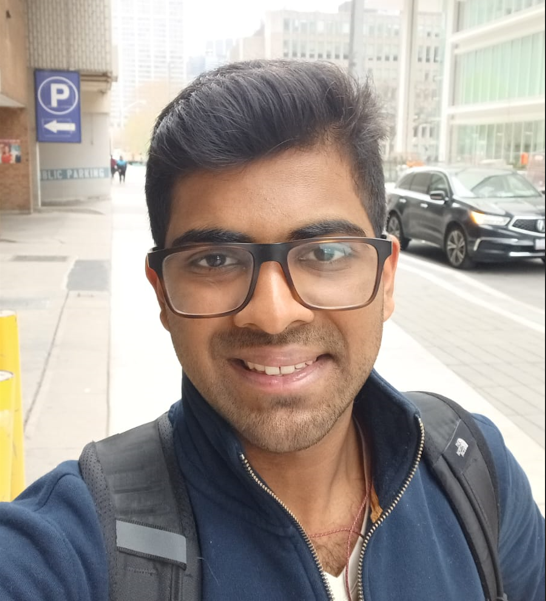
vishweswar eswaran
University of Toronto St. George
Faculty of Applied Science and Engineering
Research Topic: Wearable System for Remote CPR Guidance: Integrating Haptic and Audiovisual Feedback.
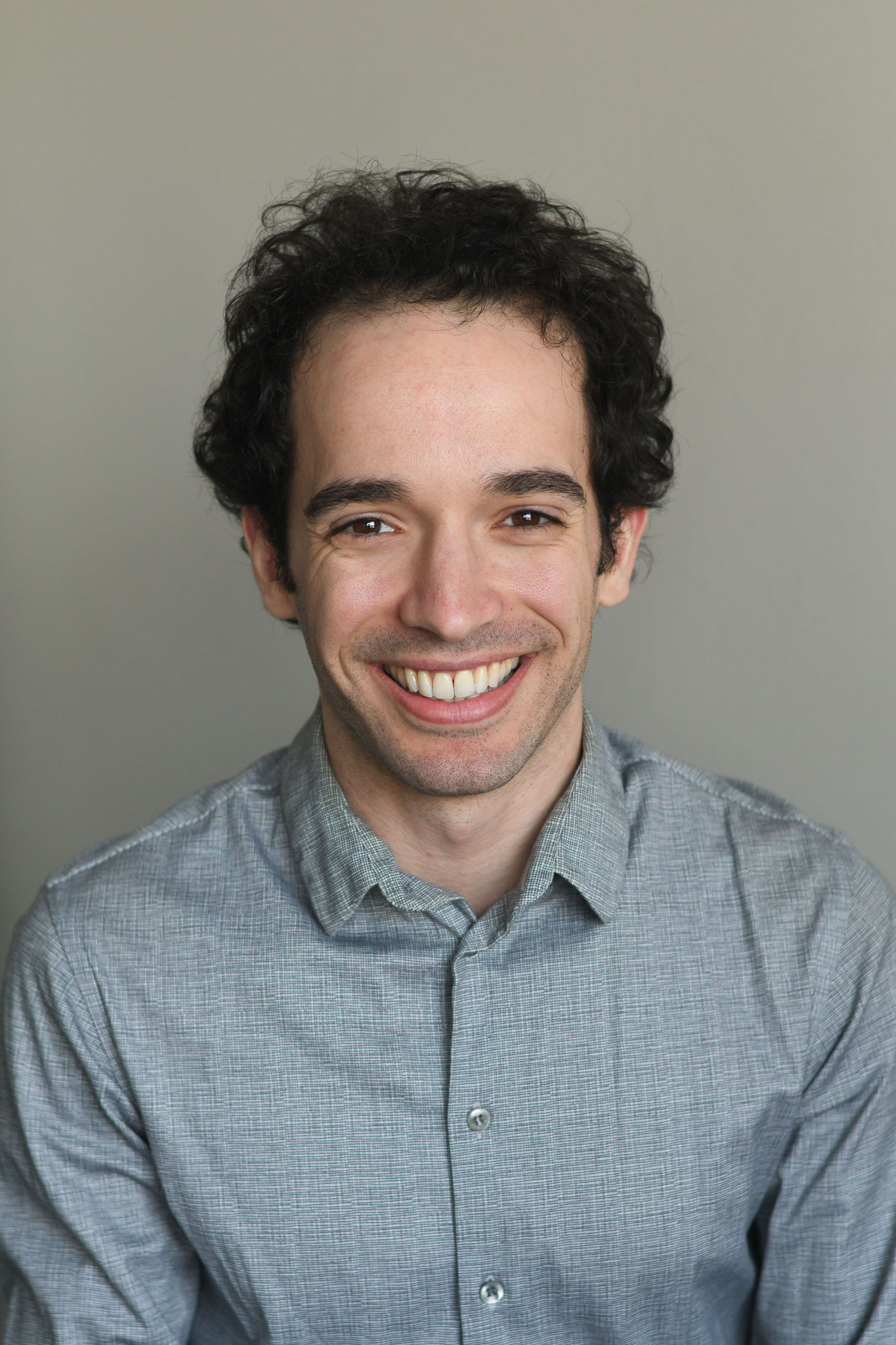
youness robert tahiri
University of Toronto St. George
Faculty of Arts and Science – Woodsworth College
Psychology Specialist
Research Topic: How do kind emotions and behaviour develop across the early years? Do early emotional experiences affect behaviour trajectories? How does exposure to adversity, such as poverty, family conflict, and community violence, affect pathways of kindness?
Zoë Reichert
University of Toronto St. George
Faculty Arts and Science – University College
Major: Political Science and History; Minor: History and Philosophy of Science and Technology
Research Topic: How Canada can help promote democratic discourse online— Using legislation to combat digital transnational repression.
2022 Scholars

Amy Mann
University of Toronto – St. George
Victoria College
Physical and Mathematical Sciences
Research Topic: What is the trajectory of sea ice in the Last Ice Area? How has it moved and what are the implications?

Jolie Gan
University of Toronto – St. George
Trinity College
Political Science & Health Studies
Research Topic: How do systemic forms of discrimination influence access and, to a lesser extent, quality of healthcare for ethnic minorities in Malaysia? What actionable steps can be taken to reduce institutionalized prejudice towards minorities within healthcare?
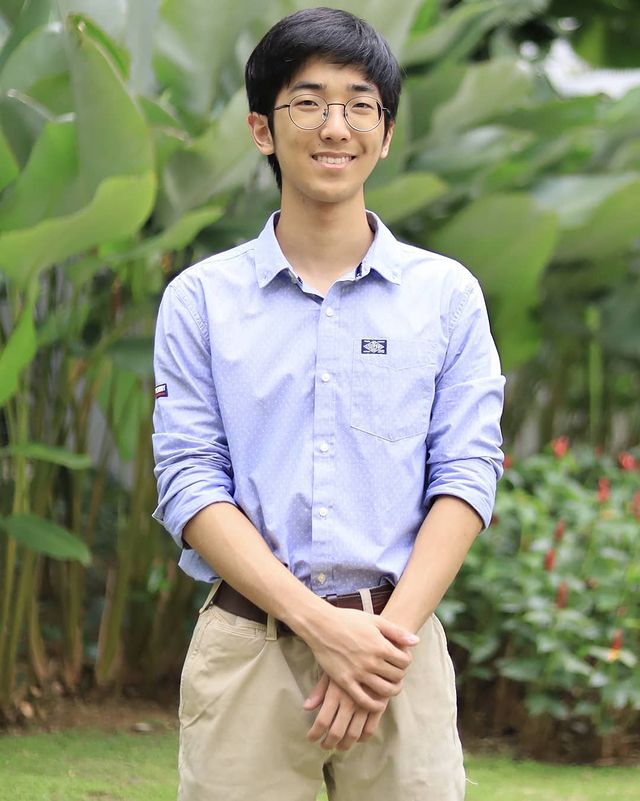
Je Ho Cho
University of Toronto – St. George
New College
International Relations, and Peace, Conflict, and Justice Studies
Research Topic: How have liberal and illiberal states differed in their use of contact tracing applications and what accounts for this potential difference?
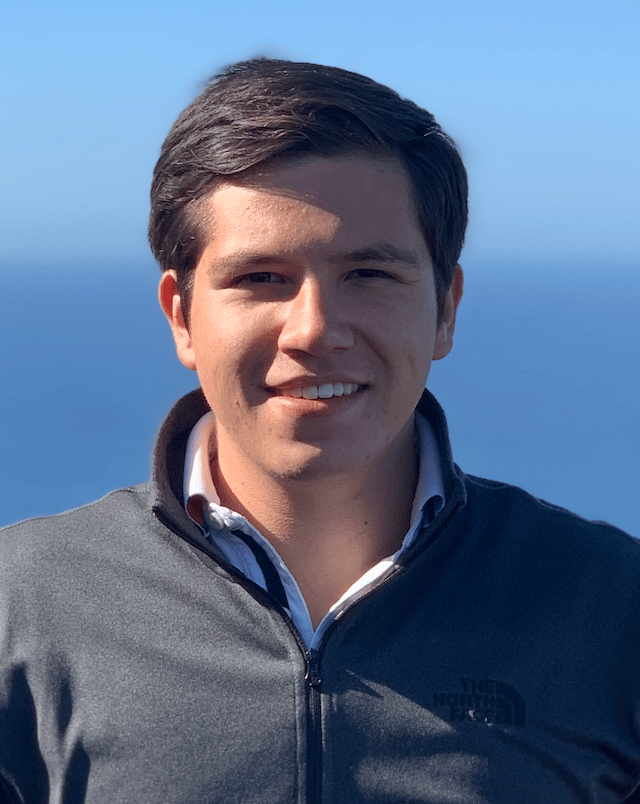
Daniel Corredor Llorente
University of Toronto – St. George
Trinity College
Economics & International Relations
Research Topic: The policy response of South American countries to the Venezuelan migrations crisis. He will examine the effectiveness of granting Venezuelan migrants a Temporary Protected Status (TPS) in Colombia, and whether such a policy could be implemented in Peru and Chile, the second and third largest refugee-hosting countries after Colombia. Daniel will be interviewing policymakers from these three countries throughout the summer of 2022.

Isha Dinesh Sharma
University of Toronto – St. George
HBA Architectural Studies specialist, Energy and Environment science minor
Research Topic: Public spaces and the COVID-19 Pandemic: Comparative analysis of the use of sidewalks in Downtown Toronto
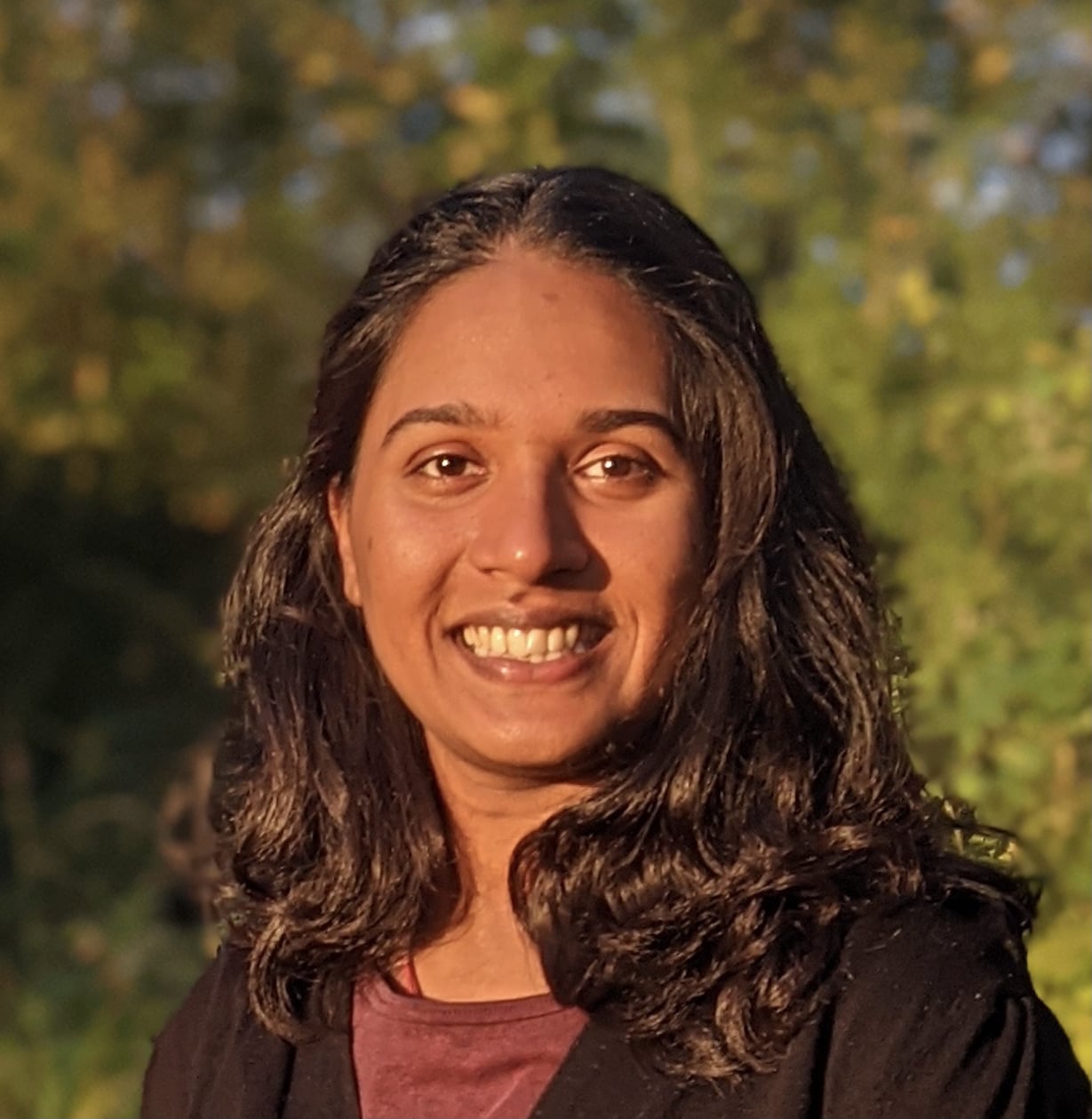
Ajantha Nadesalingam
University of Toronto – St. George
Victoria College
Biodiversity and Conservation Biology, double minor in Environmental Studies and Buddhism, Psychology, and Mental Health
Research Topic: Do mobile application-based mindfulness meditations improve mental, neurological, and cognitive wellbeing in university students? If so, which meditations within Calm and Headspace applications utilize a mindfulness meditation-based approach?
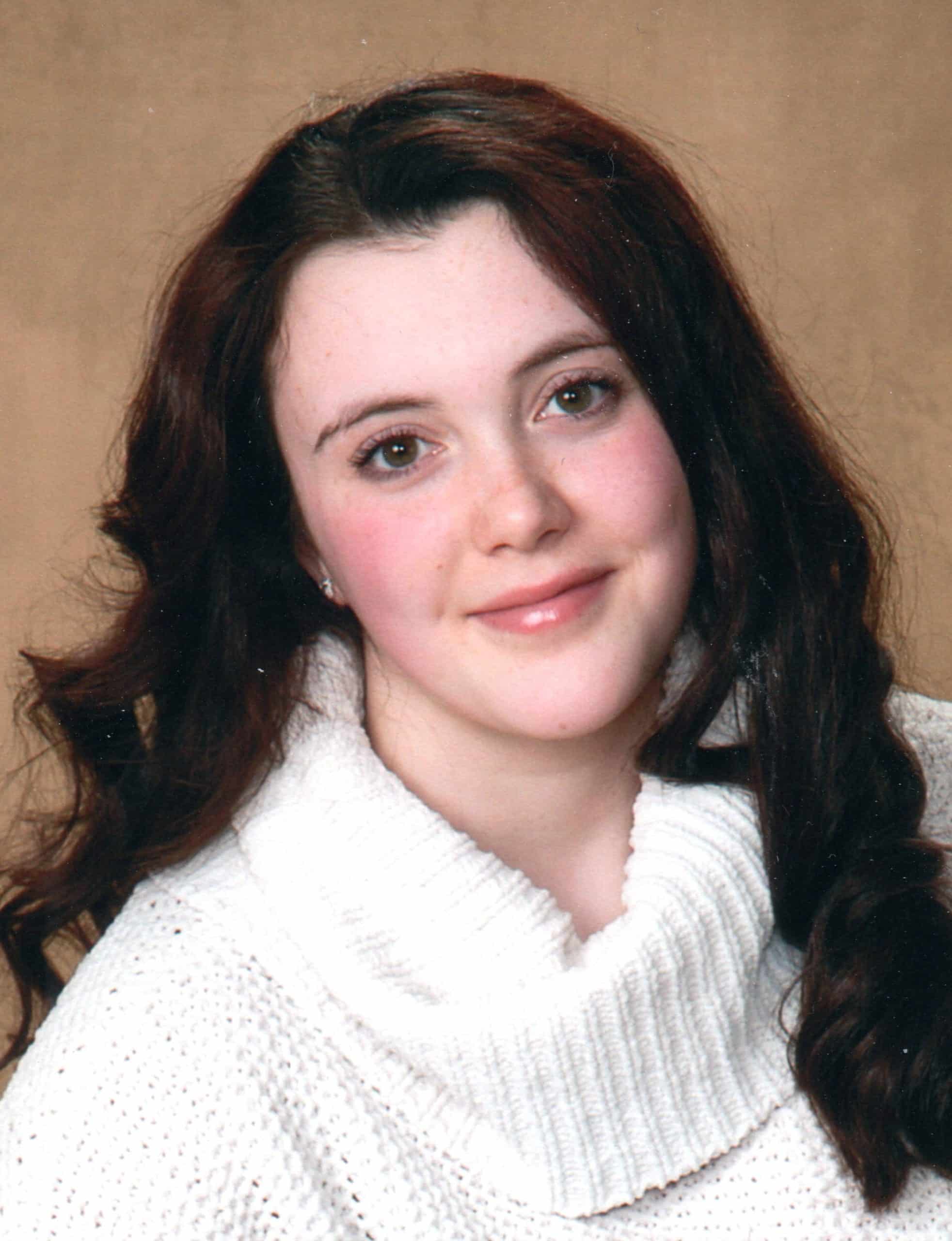
Emma Hopkins
University of Toronto – St. George
Woodsworth College
History and English
Research Topic: For my research topic, I will be investigating equity and diversity studies within the Ontario high school curriculum. My research will delve into how people of diverse backgrounds are represented within English, History, Law, and other Humanities courses in high school, what requirements are in place for diversity studies, and areas of the curriculum that may not represent marginalized groups.

Ruhani Walia
University of Toronto – St. George
Victoria College
(Intended) Financial Economics Specialist, Statistical Science Minor, Psychology of Economics and Management Certificate
Research Topic: What aspects of observation (e.g., a larger audience, an observer of perceived higher authority) serve
as the most influential nudges towards pro-social behaviour and decision-making?
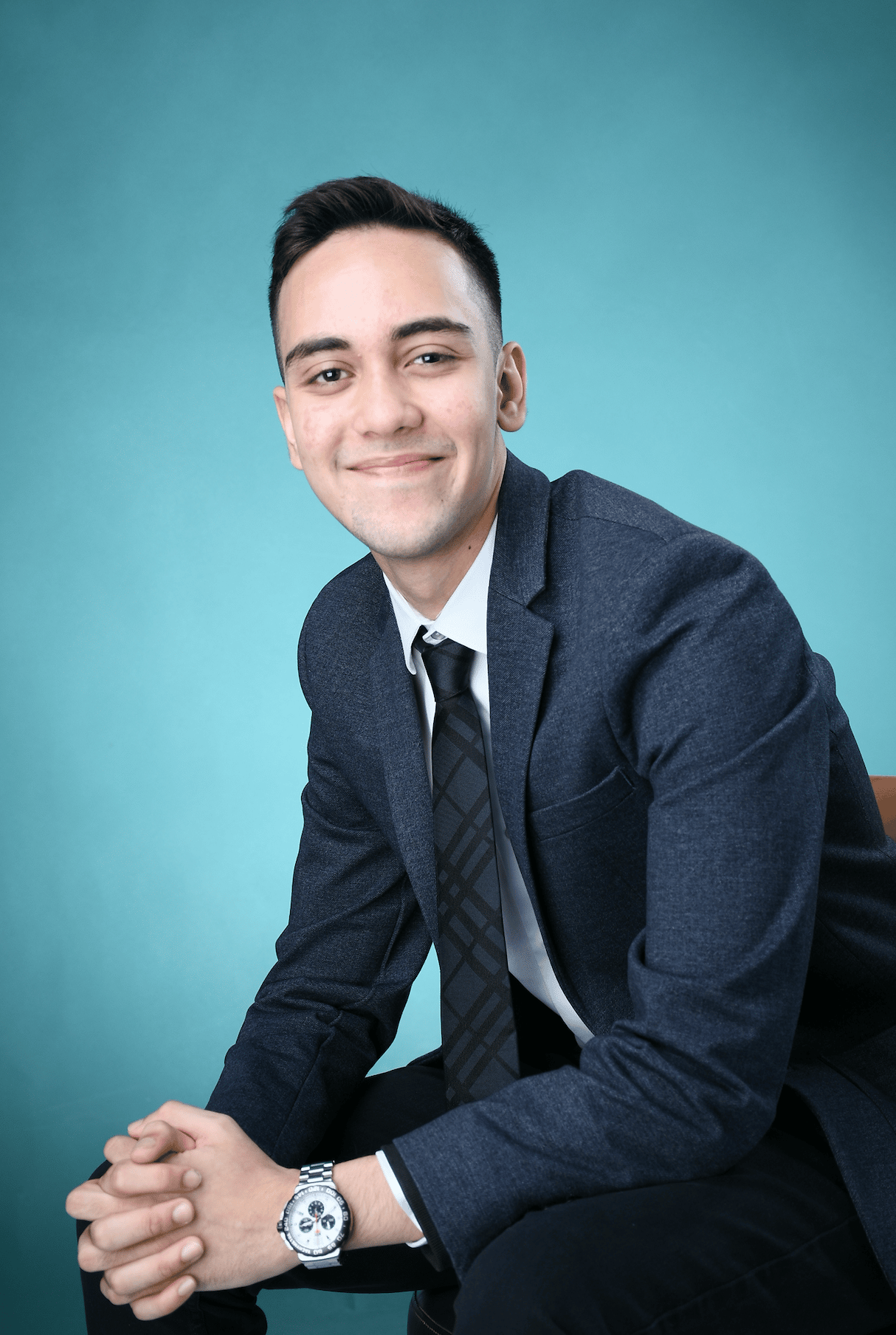
Anuj (AJ) Manchanda
University of Toronto – St. George
University College
Rotman Commerce
Research Topic: Investigating the impact of environmental corporate responsibility initiatives on consumer behaviour in the fast-moving consumer goods industry.
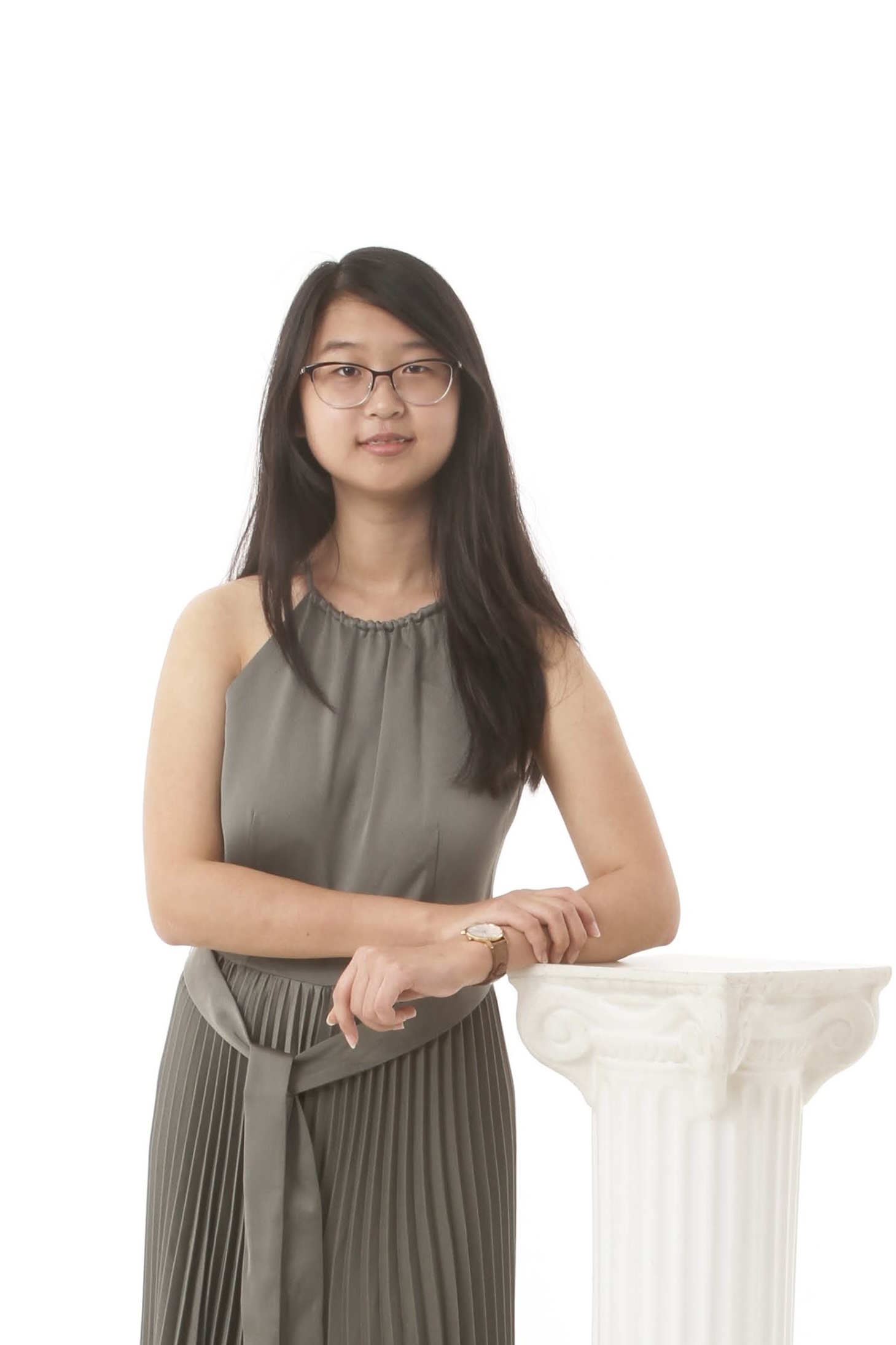
Serena Honekin
University of Toronto – St. George Campus
Innis College
Psychology Specialist and Sociology Major
Research Topic: What is the effect of a majority group’s judgement on bicultural Canadian’s ability to identify a criminal suspect, given that their visible minority status has been made salient?
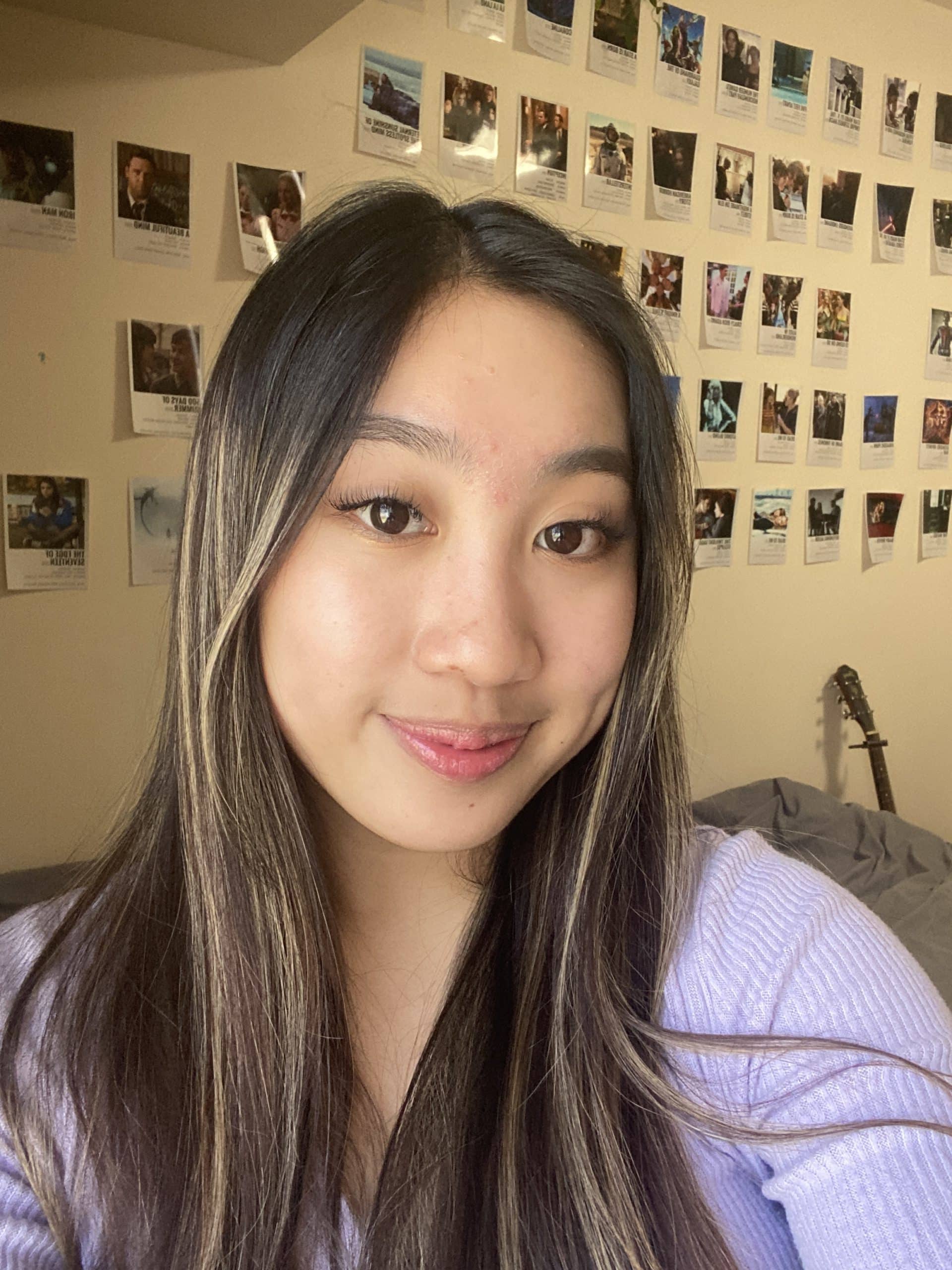
Shiri Yeung
University of Toronto – St. George Campus
Victoria College
Sociology and Urban Studies
Research Topic: An investigation of the relationship between professional media’s portrayal and individual perceptions of Indigenous homelessness
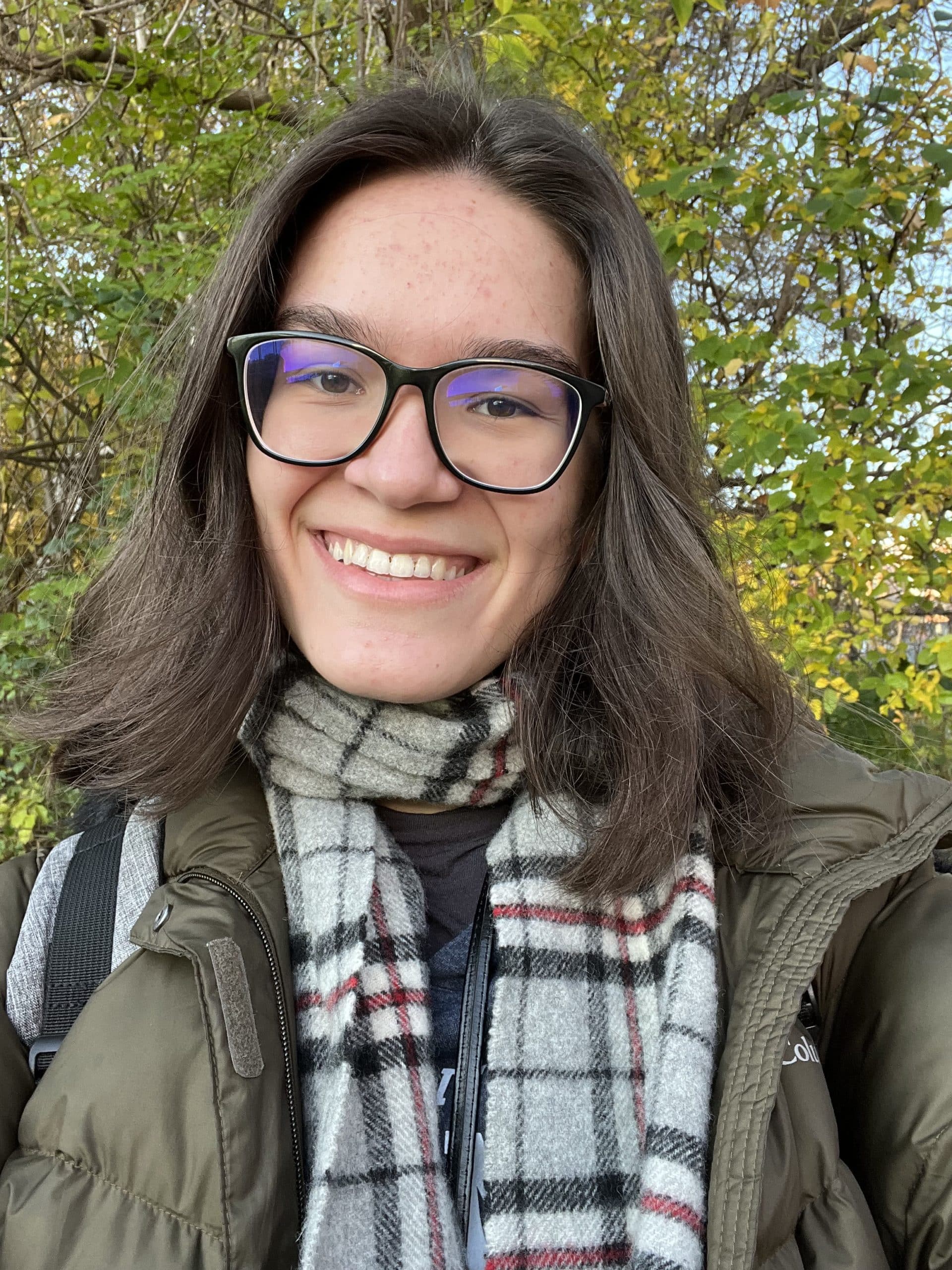
Mariela Torroba Hennigen
University of Toronto Mississauga
Double-major in Communications, Culture, Information and Technology (CCIT) and Professional Writing and Communication (PWC)
Research Topic: This research project aims to investigate how social media’s diffusion of information about COVID-19 influences individuals’ perceptions of their pandemic-related behaviors. Additionally, the research project will also aim to gain insight into how other people’s behaviors, in turn, shape individual’s self-perception of their pandemic-related behaviors. This investigation will happen across the following three different countries: Canada, Brazil, and the United States.
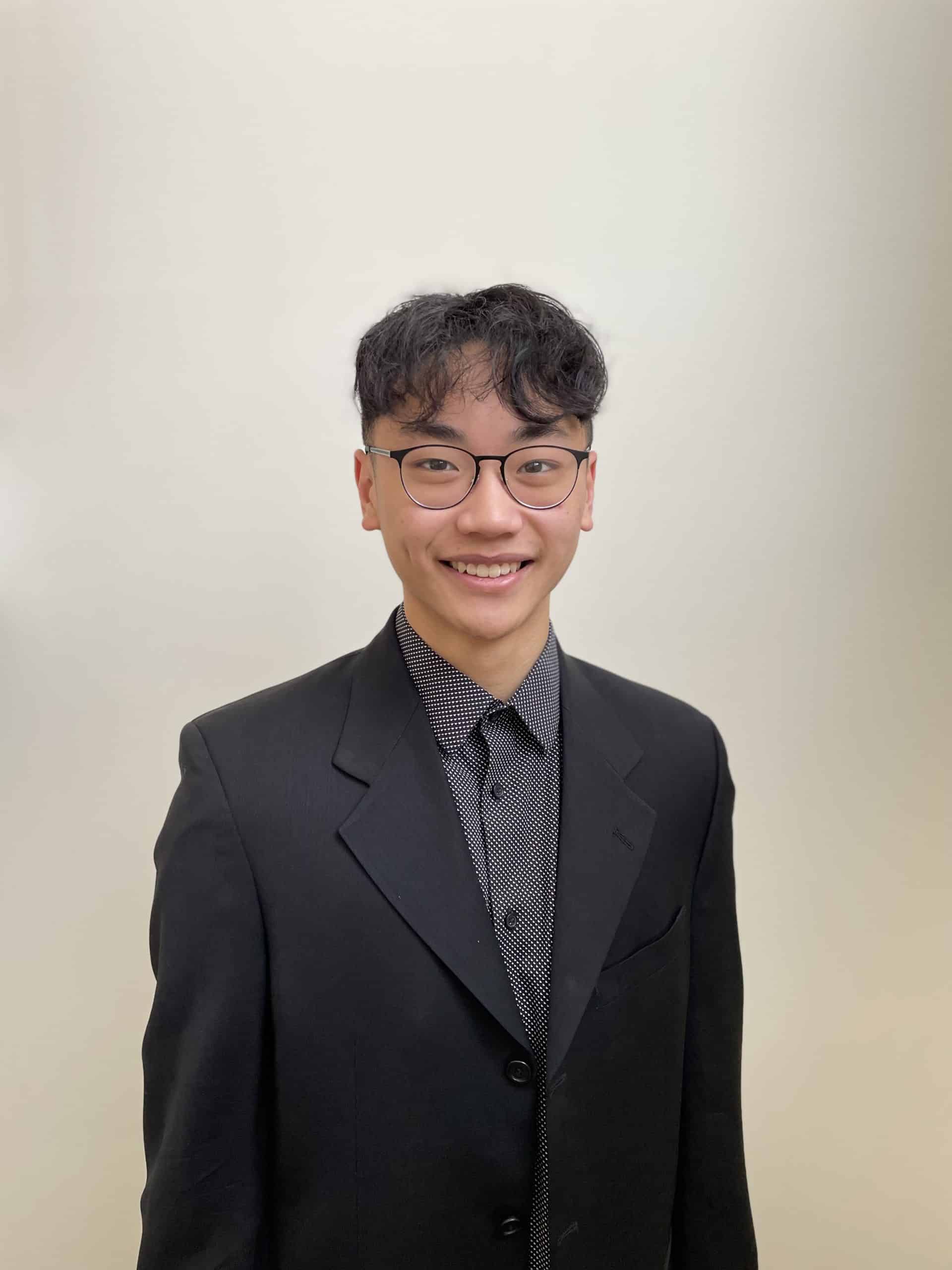
Derek Yu
The University of Toronto Scarborough
Life Sciences
Research Topic: Is impulsive behaviour a contributing factor that increases the risk of suicide ideators attempting suicide?
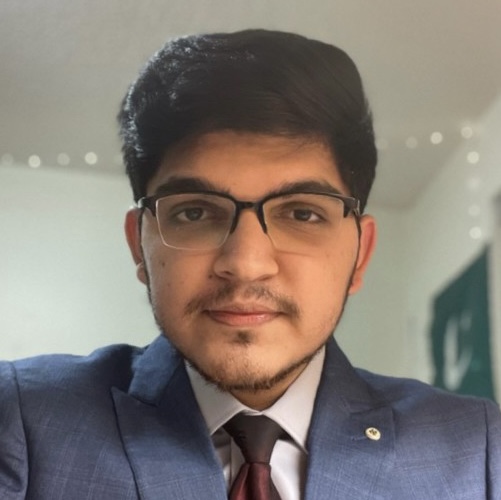
Taha Bin Aamir
University of Toronto Mississauga
Economics and Mathematical Sciences
Research Topic: Cost of Economic Relief: An analysis of how the IMF bailout program fosters socio-economic inequality in Pakistan.
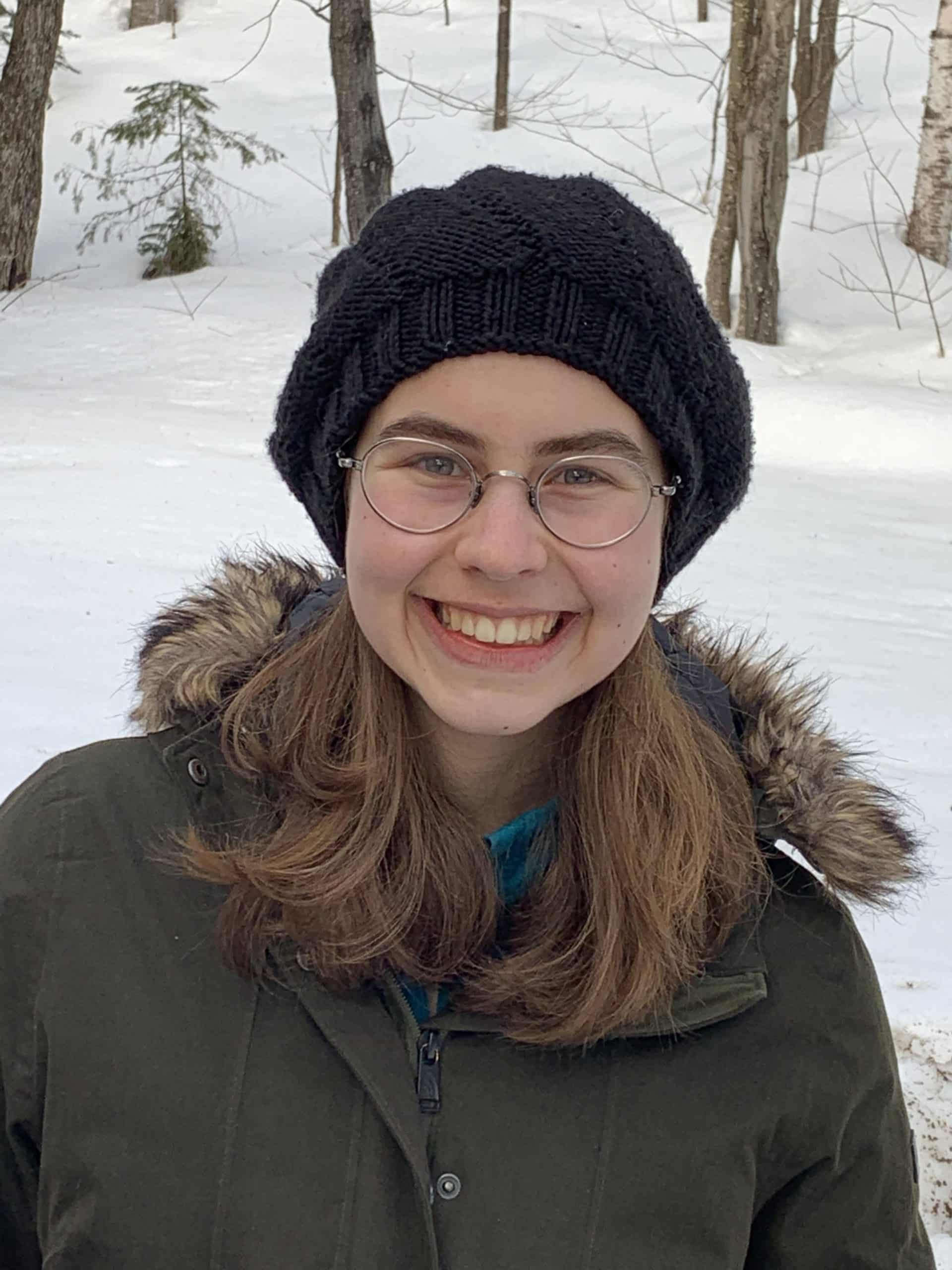
Isabel Sternthal
University of Toronto – St. George
Victoria College
Life Sciences
Research Topic: My research will investigate the effectiveness of a hospital working group as a mechanism by which to address cancer care disparities affecting LGBTQ+ patients and their caregivers.
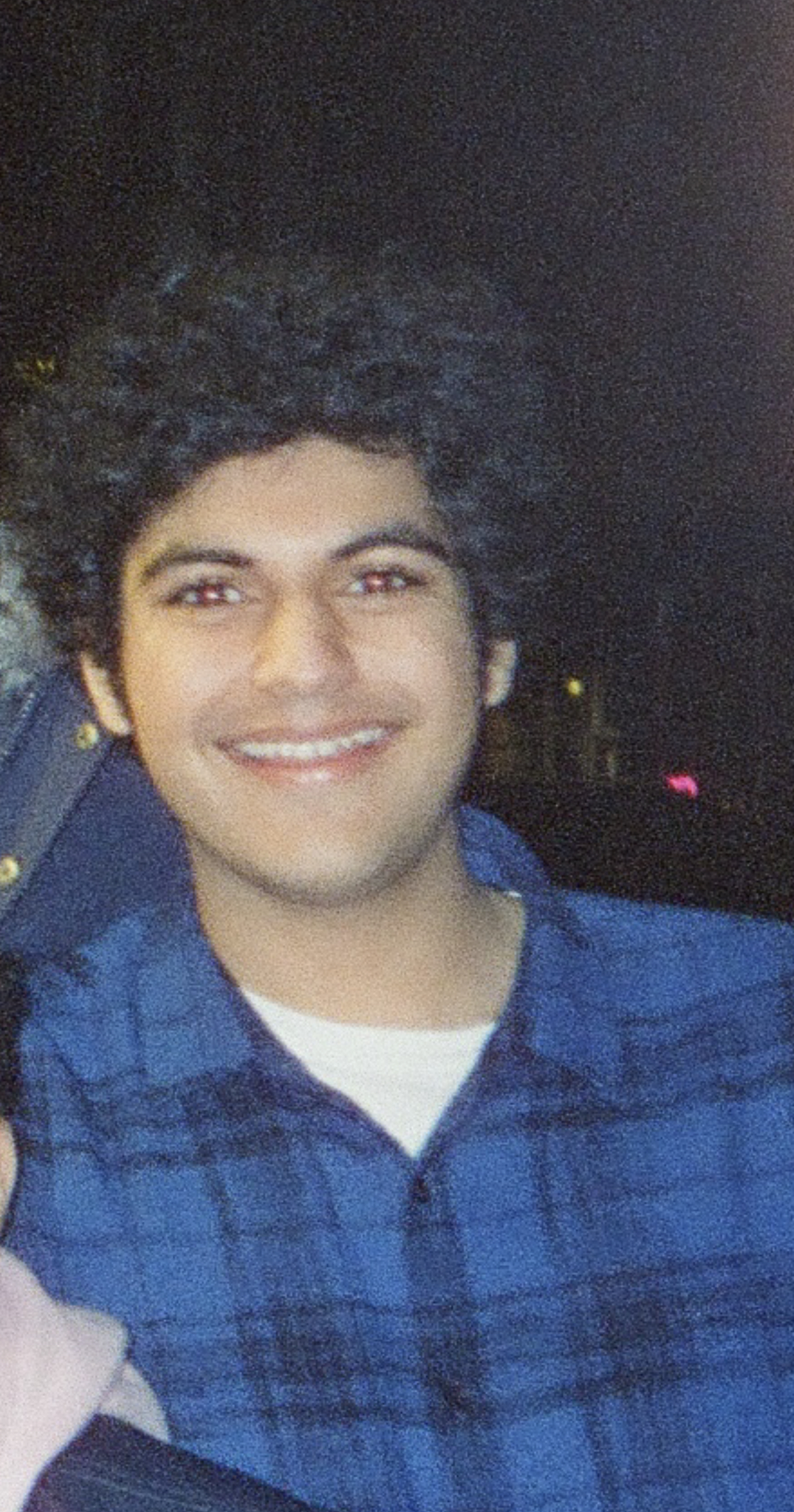
Vinay Malik
University of Toronto – St. George
St. Michael’s College
International Relations and Political Science
Research Topic: How and to what extent does the influx of Syrian migrants contribute to the rise in nationalism and xenophobia in modern Turkey?

Victoria Liu
University of Toronto – St. George
Trinity College
Daniels Faculty
Research Topic: My research aims to investigate methods to improve East Asian communities’ mental health amid the Anti-Asian racism during Covid-19. This involves examining the existing structural, and cultural barriers, which prevent East Asian populations from accessing mental health services.

Joseph Boyce
University of Toronto – St. George
Victoria College
Philosophy and Ethics, Society, and Law
Research Topic: How does our conception of the university differ from that which was dominant at Oxbridge from 1880-1920? What can we learn from past understandings?

Meerab Anwar
The University of Toronto Scarborough
Human Biology and Population Health Double Major
Research Topic: Exploring the relationship between eating behaviours in the 21st century, mental health and wellbeing, and the concept of time scarcity
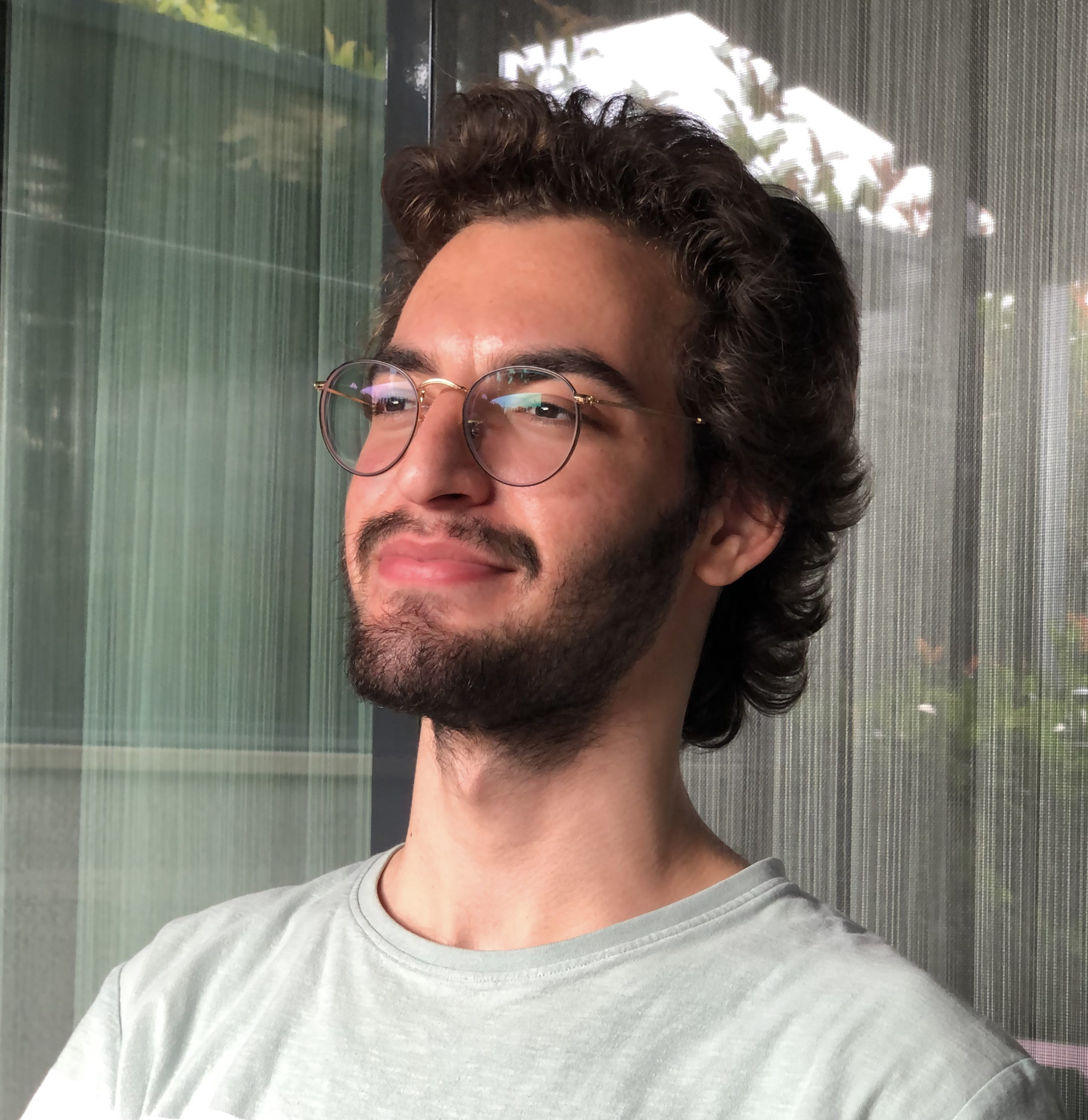
Ali Eren Kaya
University of Toronto – St. George Campus
New College
Computer Science, Mathematics
Research Topic: Can any form of AI be an artist?
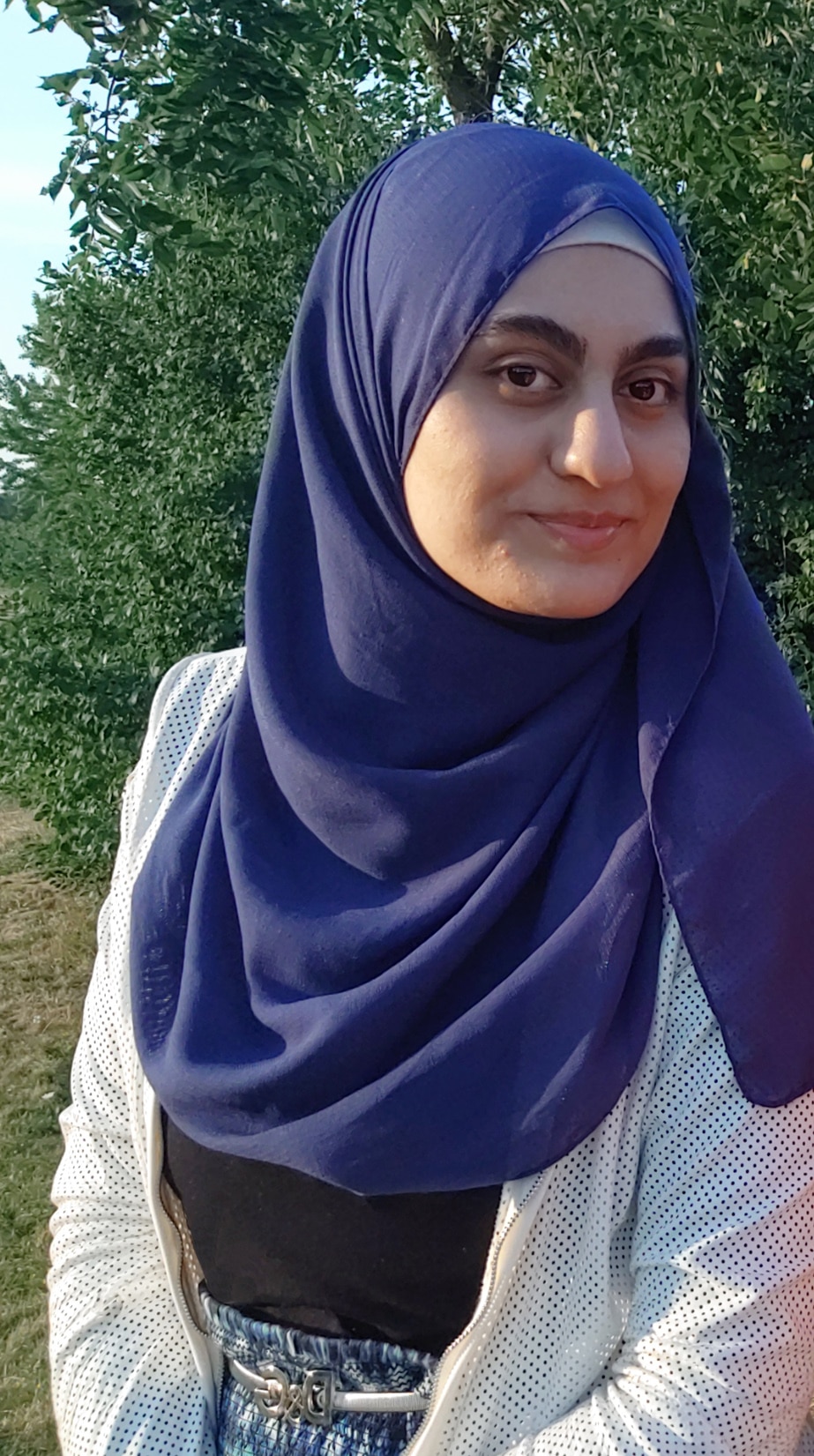
Noor Al-Sehail
University of Toronto – St. George Campus
Specialist in Architectural Studies
Research Topic: In the wake of the climate refugee crisis, how can architects redesign temporary shelters using biomimicry, a sustainable and intelligent design approach that emulates nature and utilizes its evolution to withstand and survive climatic factors?
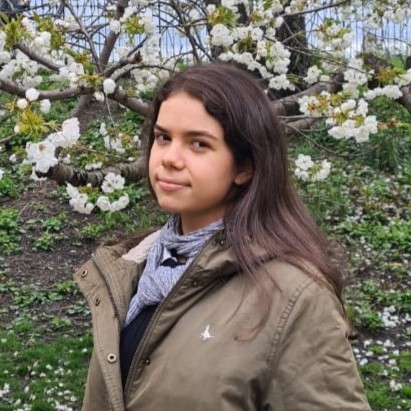
Anna Lysenko
University of Toronto- St. George Campus
University College
International Relations Specialist
Research Topic: To what extent do cyber-attacks on the US decrease American public confidence in democracy?

Madeleine Luntley
University of Toronto – St. George Campus
Bachelor of Music in Voice Performance
Research Topic: What explains the failure to produce research on neglected tropical diseases in low and middle income countries?
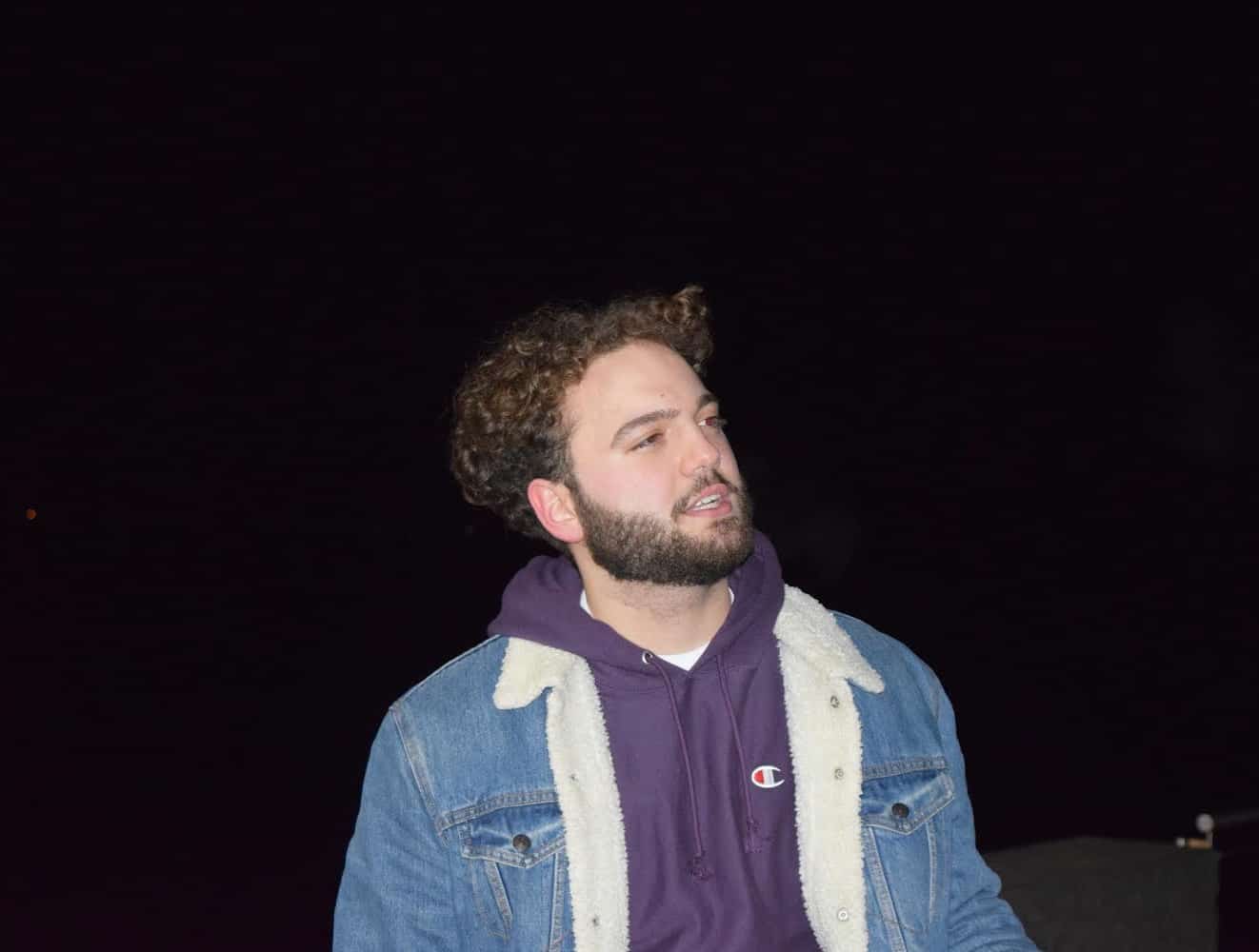
Gerd Bizi
University of Toronto – St. George Campus
Victoria College
Specialist in Biochemistry and Computer Science
Research Topic: How can we use Computer Vision to efficiently analyze protein-to-protein interactions through fluorescence microscopy?
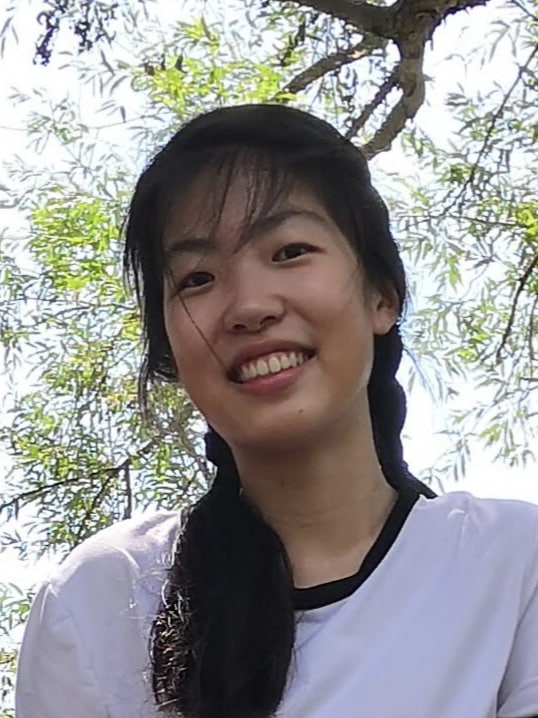
Yu Xin Li
University of Toronto – St. George Campus
Engineering Science
Research Topic: I wish to investigate how surface electromyography (sEMG) can be used to retore the motor skills of amputees. More specifically, using machine learning to classify sEMG datasets, to better understand how the electrical activity within the muscle is connected with movement. The purpose of my project is to focus on extracting new features from data by applying neural network architectures. The ultimate goal of my research is to allow amputees to control their prosthetic limbs through neuro activity.
2021 Scholars

Abhay Sachal
St. George Campus
Victoria College
Global Health & Peace, Conflict, and Justice
Research Topic: An investigation on the impacts of climate change on the mental health of youth climate activists in Canada.
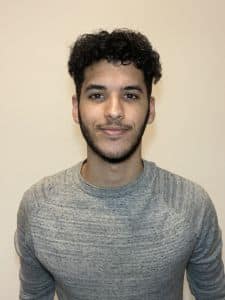
Ahmed Moslehi
St. George Campus
Trinity College
Research Topic: Defining structural and functional features of the intestinal organoids and determining how intestinal microbes are capable of making alteration that may be conducive to neurodegenerative disease.

Aly Sayani
University of Toronto Mississauga
International Affairs Specialist
Research Topic: Linking Political orientation and Environmentalism: An analysis of changing environmental attitudes and subsequent party support in Canada

Asha Mior
St. George Campus
Victoria College
Life Sciences
Research Topic: Do colonial legacies affect the attitudes of Indigenous peoples in Canada toward the COVID-19 vaccine?

Claire Parish
St. George Campus
Trinity College
Environmental Studies and International Relations
Research Topic: My research centers around bison reintroduction efforts in the North American West. More specifically, I plan to systematically examine the motives, methods, and efforts toward collaboration of bison-related actors in Montana and Alberta, with the goal of understanding how diverse interests have interacted during reintroduction work.
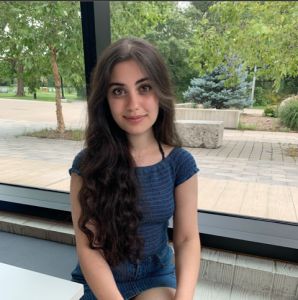
Dalal Mahir
University of Toronto Mississauga
Psychology major
Research Topic: My research seeks to investigates if the emotion of awe can promote empathy in politically polarized settings.
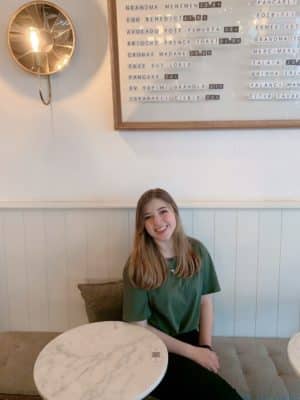
Ecem Sungur
St. George Campus
John H. Daniels Faculty of Architecture, Landscape, and Design
Architectural Studies
Research Topic: Underground Architecture Typology as Crisis Management: An Analysis Through Derinkuyu Underground City
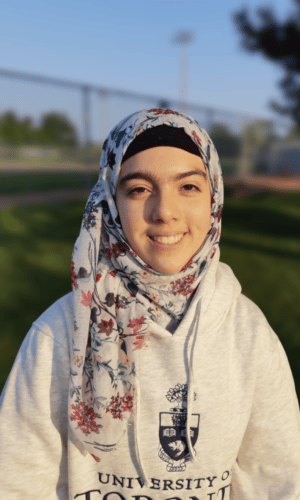
Fatima Formuli
University of Toronto Scarborough
Specialist in Mental Health Studies Co-op
Research Topic: A review of mental health frameworks among minorities to inform mental health research for Muslim Canadians

Iman Lalani
University of Toronto Mississauga
Double Major in Environmental Management and Geography, Minor in Environmental Policy and Law
Research Topic: What challenges does sub-Saharan Africa (SSA) face in responding to the effects of climate change? An analysis of the region’s environmental, financial, technical, institutional, social, and cultural barriers.

Jenny Liu
St. George Campus
Molecular Genetics & Microbiology (Major), Immunology (Major), Creative Expression & Society (Minor)
Research Topic: My research aims to elucidate the regulatory mechanisms of runt-related transcription factor 3 (Runx3) expression within early proprioceptor development. Ultimately, I hope to inform neurogenesis studies and contribute potential clinical applications for approaching ataxias and peripheral neuropathy disease modelling and treatment.
Justice Tomlinson
St. George Campus
Victoria College
Cognitive Science, Psychology majors, Computer Science minor
Research Topic: An Investigation into the Reward Maximizing Performance of TS-PostDiff: Comparing TS-PostDiff to Other Promising and Popular Multi-Armed Bandit Algorithms
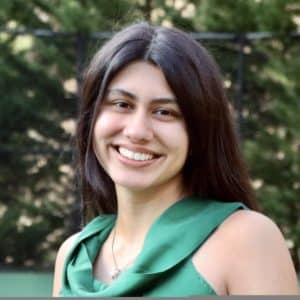
Keah Sharma
St. George Campus
Victoria College, Faculty of the Arts & Sciences
Political Science & International Relations, Minor: Literature and Critical Theory
Research Topic: Analyzing and producing written work on South Asian diasporic literature with the aim of deconstructing the phenomenon of “model minorities” and providing visible leadership pathways for immigrant communities.
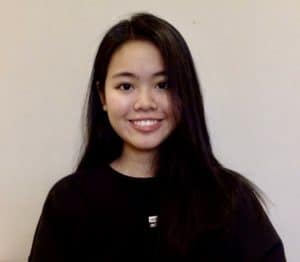
Nhu Huynh
St. George Campus
Victoria college
Double major in Neuroscience and Health Studies
Research Topic: In my research project, I will explore the relationship between substance use disorder and factors that predict offending (termed “criminogenic needs) in a forensic population in the context of Canada’s Youth Justice System. In addition, I will examine the extent to which youths are matched to appropriate service(s) while on probation and what impacts this has on their recidivism outcomes.
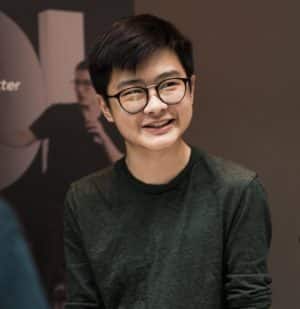
Peter Ma
St. George Campus
Victoria University
Math and Physics Specialist
Research Topic: My research pertains to developing a high performance machine learning algorithm to run on both the MeerKAT telescope in South Africa and the VLA telescope in New Mexico. The goal is to use this algorithm to survey the nearest 1 million stars in our galaxy for signs of life beyond Earth.
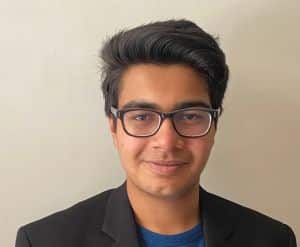
Priyansh Parakh
St. George Campus
Computer Engineering
Research Topic: Analysing the performance of different ML algorithms against various optimisation tasks

Rachel Kim
St. George Campus
Victoria College
Computer Science, Mathematics
Research Topic: How have sentiments and discussions around the idea of a UBI changed on Reddit over time? Do the UBI discussions on Reddit parallel the UBI discussions in academic literature?

Salma Ragheb
St. George Campus
John H. Daniels Faculty of Architecture, Landscape and Design
Double major in Visual Arts and Neuroscience
Research Topic: My project aims to characterize the phenotype of the rare leukemic stem cells of a HOXB4 transgene-dependent leukemia model hosted in mice.
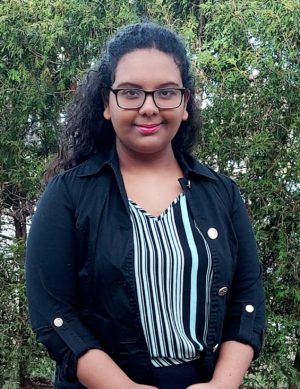
Samraggi Hazra
St. George Campus
Trinity College
Currently in Social Sciences, hoping for a double major in International Relations and Ethics, Society, and Law, with a minor in Political Science
Research Topic: I will be researching health policies and health inequities in developed nations. I will analyze Canada, the United States of America, and Denmark to outline socioeconomic and political factors that contribute to disparities in health outcomes.
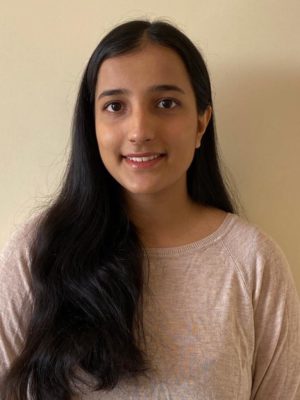
Shaina Sharma
St. George Campus
Trinity College
Economics major, Statistics and Political Science minors
Research Topic: How did the governments of Hungary, India, and Brazil use pandemic-related restrictions to expand their own political powers at the cost of their countries’ democracies? (Impact of COVID-19 pandemic on global democracy)

Shysta Sehgal
St. George
Victoria College
Cognitive science and computer science
Research Topic: Evaluating the drivers of women in STEM in the academy and doing a comparison of these drivers in Sweden and Hungary.

Tung Kwan Nathan Ching
St. George
Victoria College
Criminology and Sociolegal Studies, Public Policy, Political Sciences
Research Topic: How Self-Defence is used to protect Domestic Abuse Victims in Canada and other Common Law Countries.
Vedika Jha
St. George Campus
Victoria College
Molecular Genetics, Ecology & Evolutionary Biology
Research Topic: Identify the occurrence and frequency of copy number variations (CNVs) and single nucleotide variants (SNVs) in selected genes associated with Cerebral Palsy (CP) and brain function.
Julie Francesca Seeger
St. George Campus
John H. Daniels Faculty of Architecture, Landscape, and Design
Specialist in Architectural Studies, Minor in Mental Health, Buddhism, and Psychology, Minor in Visual Studies
Research Topic: What is it about the design of universities that impact the mental health and emotional state of their users? What can we learn from the design of other building types that tend to have more positive impacts on their users, such as malls, libraries, churches, theaters, and hospitals?

Roxanne Angel Bella
St. George Campus
Trinity College
Major in Peace, Conflict & Justice Studies, Double Minor in Environmental Science and Creative Expression & Society
Research Topic: My research seeks to fill the literature gap in the sociological and cultural aspects of the sachet economy in the Philippines. Through interviews and Photovoice, I hope to create a body of accounts from Filipinos, themselves, about what the sachet economy means to them and how they think it can be improved to cater to their needs while mitigating its negative impacts on the environment.
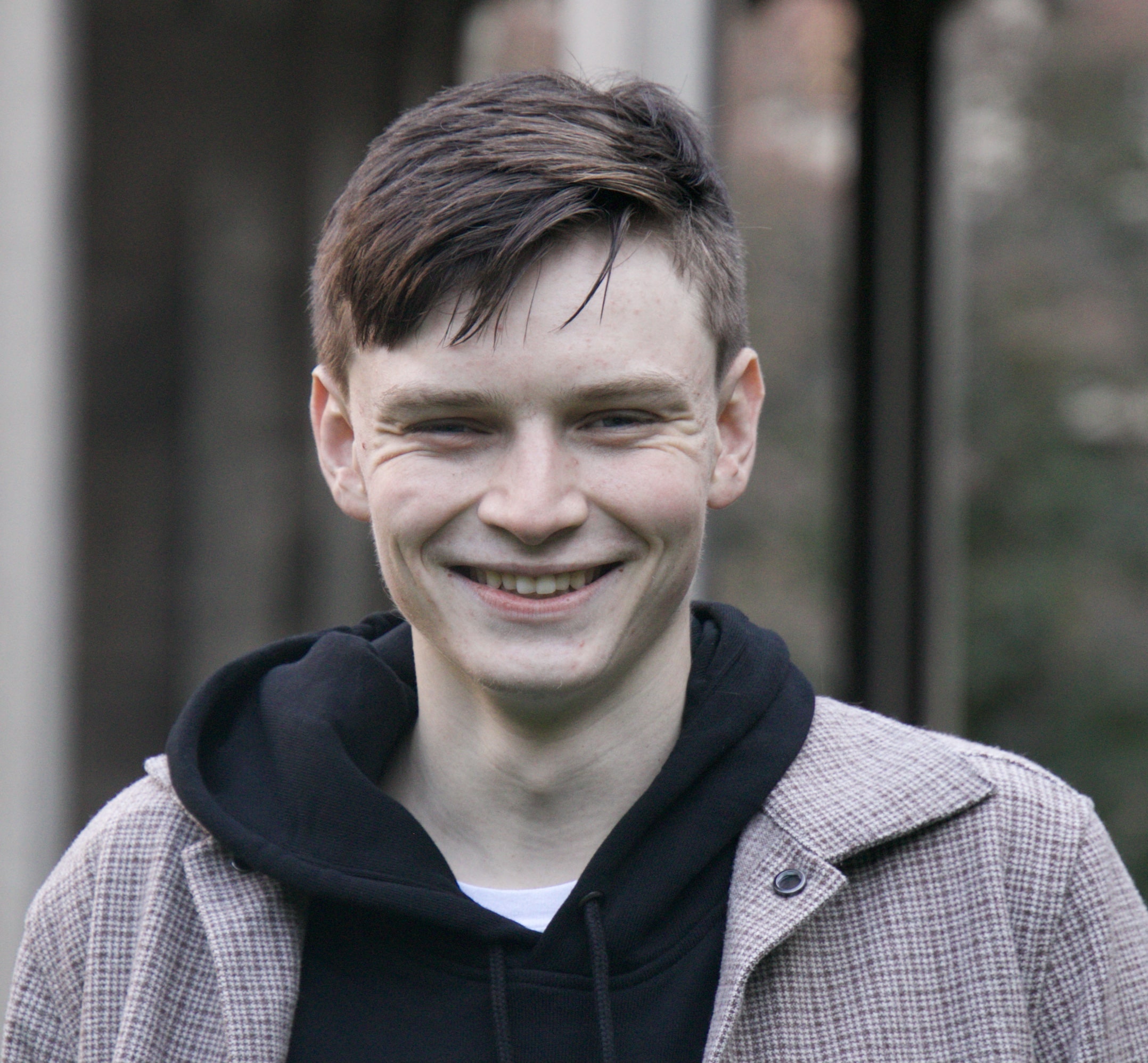
William Lloyd
St. George Campus
Trinity College
Peace, Conflict, and Justice – American Studies
Research Topic: Does climate change serve as a threat multiplier for ongoing U.S. security concerns in the Lake Chad Basin of Western Africa?

Yusra Shafi
St. George Campus
St. Michael’s College
Psychology Specialist
Research Topic: Challenging Perceptions : ‘Positive’ Universities – Exploring student experience through Positive Psychology
2020 Scholars
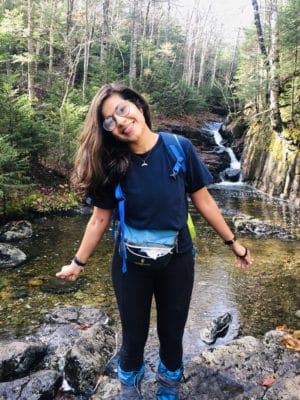
Aanya Bahl
St. George Campus
University College
Ecology and Evolutionary Biology, Physiology, Spanish
Research Topic: Studying the anthropogenic impact of the growth and spread of invasive species in the Galápagos.
Ahmed Aldarraji
University of Toronto Mississauga
Erindale
Life Sciences
Research Topic: Testing the binding affinity of inhibitors to the Erbb4 receptor.

Anne Field
St. George Campus
John H. Daniels Faculty of Architecture, Landscape, and Design
Bachelor of Arts, Specialist in Architectural Studies: Design of Architecture, Landscape, and Urbanism
Research Topic: Exploring the historic and ongoing intersections of architecture and music.
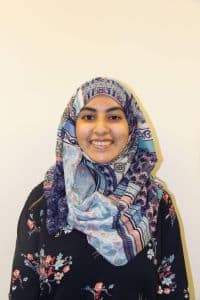
Areesha Siddiqui
University of Toronto Mississauga
Double major in Psychology and Anthropology with a minor in French
Research Topic: Studying homeless women in Toronto and the social and cultural processes as well as policies that affect how women are re-integrated into society.

Ashley Mutasa
University of Toronto Mississauga
Neuroscience Specialist and double minor in Statistics and Biology
Research Topic: The Friendship Bench: Grassroots intervention and the opioid crisis in Zimbabwe.
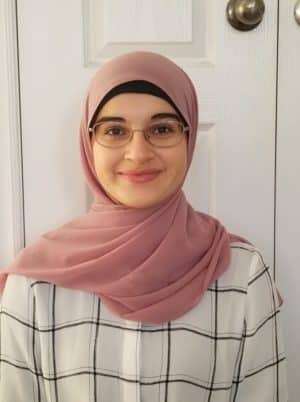
Asma Behery
University of Toronto Mississauga
Honours Bachelor of Life Sciences Program (Double Major in Biology for Health Sciences and Psychology)
Research Topic: The Synergistic Effects of Mindfulness and Relaxation Response Meditation on Perceived Stress Levels.
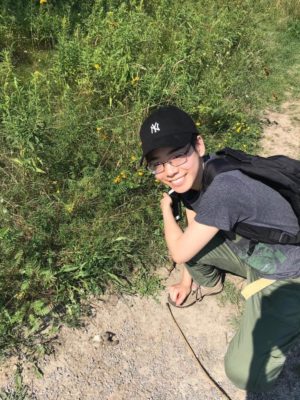
Avril Wang
St. George Campus
Trinity College
Molecular genetics and microbiology specialist, ecology and evolutionary biology major
Research Topic: Effects of urbanization on parasite assemblages of foxes and coyotes.
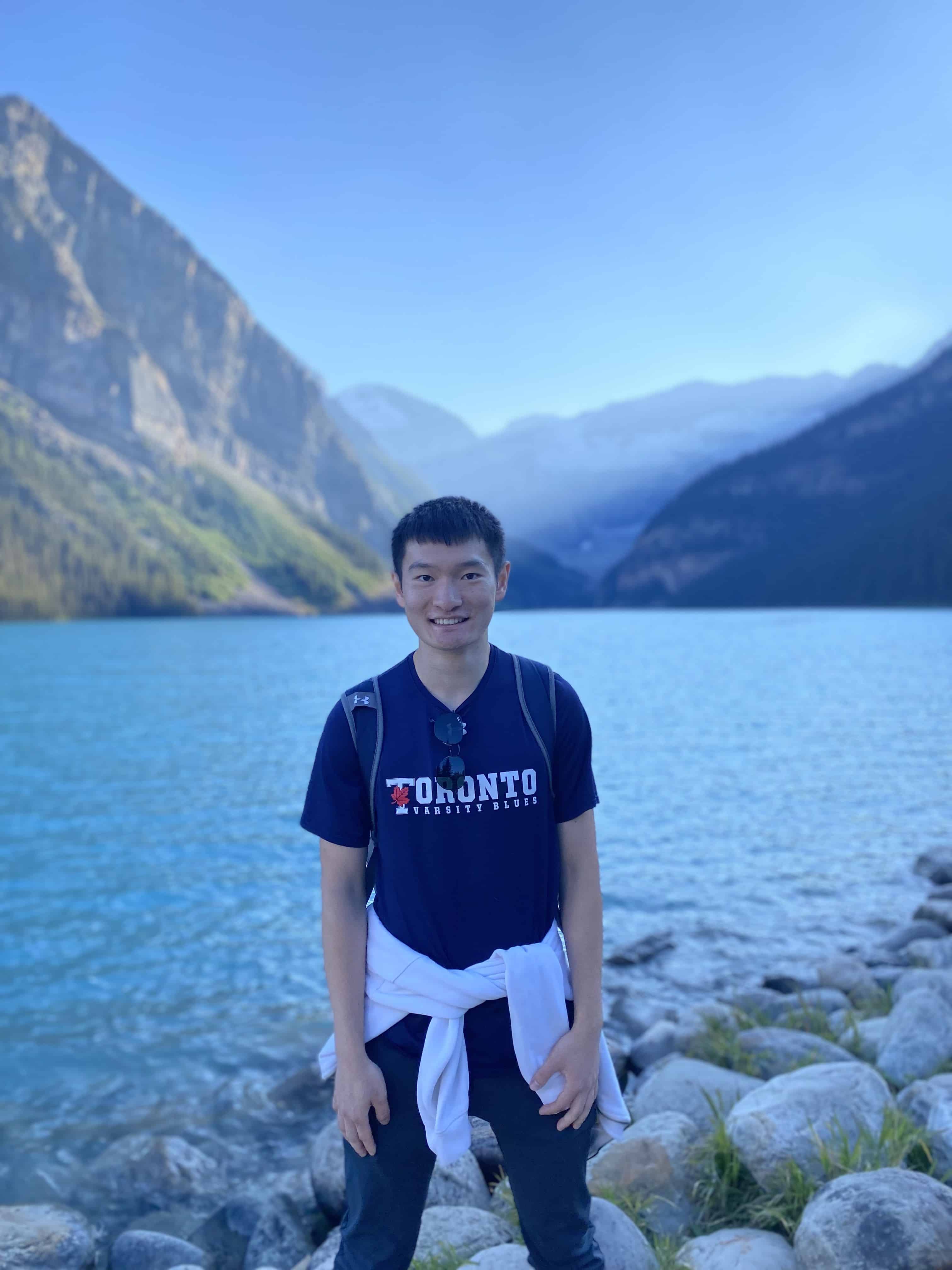
Ben Xu
St. George Campus
Trinity College
Laboratory Medicine and Pathobiology
Research Topic: Using human pluripotent stem cells and CRISPR gene-editing to investigate the role of alternative chloride channels in Cystic Fibrosis personalized medicine.
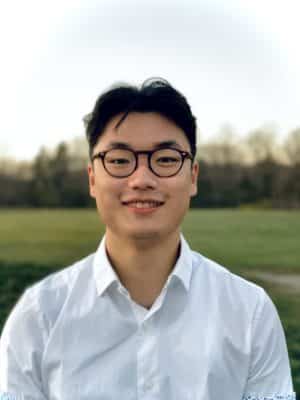
Brandon Yu
University of Toronto Scarborough
Department of Biological Sciences
Specialist in Human Biology
Research Topic: Elucidating the effects of N-acetylglucosamine on B cell activation, in hopes of better understanding the role of aberrant B cell activation in autoimmune disease.
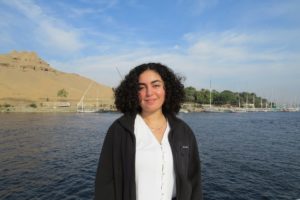
Hend Wahdan
University of Toronto Mississauga
Double Major in Anthropology & Psychology
Research Topic: Patterns of gendered pragmatics in Egyptian Arabic: how does the preference for masculine linguistic forms differ across generations in Egypt?

Joel Ndongmi
St. George Campus
Victoria College
Political Science and English Literature
Research Topic: Researching American newspapers’ portrayal of veiled Muslim women.

Joelle Weir
University of Toronto Scarborough
Journalism
Research Topic: Looking at the Paradox of Plenty and why countries with an abundance of resources generally have lower GDPs and stunted economic growth.

Lara Wulandari
University of Toronto Mississauga
Financial Economic Specialist and Mathematics Minor
Research Topic: My research aimed at estimating Indonesia’s value of statistical life, society’s willingness to pay for a fatal risk reduction
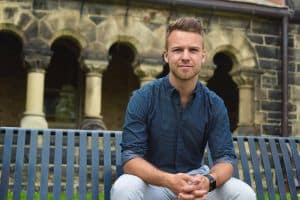
Lucas Penny
St. George Campus
St. Michael’s College
Biochemistry and Computer Science major
Research Topic: Understanding HIV self-testing acceptability in priority populations: an analysis of integrating mobile health solutions with linkage to care in Canada

Lucy Stark
St. George Campus
University College
History and Economics
Research Topic: The implementation of “Housing First” and homelessness prevention initiatives in an international context.

Melody Chan
St. George Campus
Trinity College
Double Major in Peace, Conflict & Justice and Urban Studies
Research Topic: Filipino Migrant Domestic Workers and their Hong Kong-born Children on Home Country Return.

Michelle Wang
St. George Campus
Victoria College
Criminology and Political Science
Research Topic: Examining the political systems in China and Singapore and how their management of social media platforms shape citizen activism at the grassroots level.
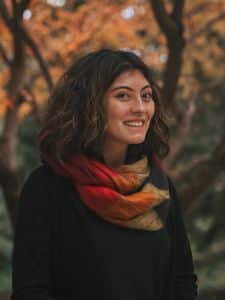
Raquel Serrano
St. George Campus
Trinity College
Research Topic: Rise of the adolescent fertility rate in Ecuador

Saeeda Saeed
University of Toronto – Scarborough
Neuroscience and biochemistry
Research Topic: Factors affecting change blindness in real-world situations.

Vamika Jain
St. George Campus
Woodsworth College
International Relations, Contemporary Asian Studies and Political Science
Research Topic: From Benevolence to Harsh Refoulment: Access to Legal Rights for Refugee Populations in India.

Yeshodha Vasanth
St. George Campus
New College
Human Geography (Major), Urban Studies (Minor) and Art History (Minor)
Research Topic: Analysis of the Livelihoods of Waste-workers across the Global South.
2019 Scholars
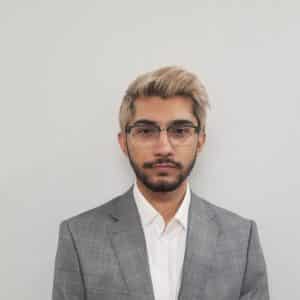
Ali Sajid
St. George Campus
Trinity College
Economics, Statistics, and Mathematics
Research Topic: Elder Sibling Spillover Effects on Academic Achievement
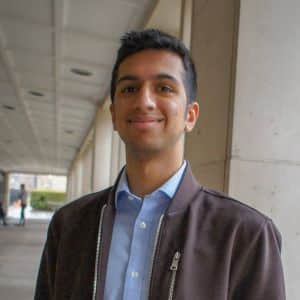
Alykhan Jetha
St. George Campus
Trinity College
Economics and Mathematics
Research Topic: Deradicalization Programs for Western Islamic Terrorism
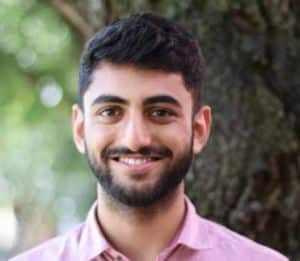
Ameer Sarwar
St. George Campus
University College
Graduate Student (Masters) Philosophy
Research Topic: Neuroscientific views of the mind
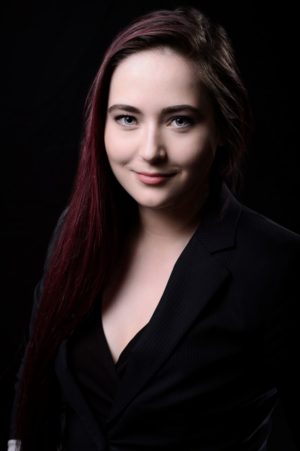
Celine Simone
St. George Campus
Daniels Faculty of Architecture
Specialist Degree in Architecture, Major in History
Research Topic: Architecture’s Role in the Rise of the Nazi Regime

Christine Sutcliffe
St. George Campus
Trinity College
Music and Art History
Research Topic: “Opera’s ‘Influencers’” The Dissemination of Opera in the Internet Age
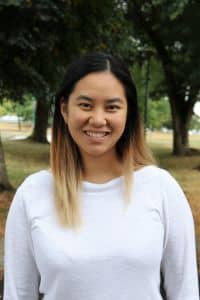
Denise Lee
St. George Campus
University College
Economics & Environmental Science
Research Topic: The Scalability of Direct Air Capture Technologies
Eliana Bravos
St. George Campus
Trinity College
Psychology (major), Peace Conflict and Justice (major), Linguistics (minor)
Research Topic: Examining autism and interview discrimination
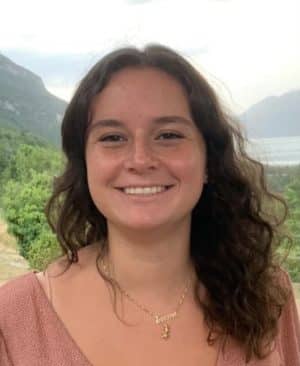
Emma Guyonnet
St. George Campus
New College
Physiology and Nutritional Sciences
Research Topic: Development of Empirical Dietary Inflammatory Pattern (EDIP) scores with different food groups and biomarkers

Katie Kwang
St. George Campus
Victoria College
Psychology Specialist
Research Topic: how does Islamophobia manifest and spread on Chinese social media platforms
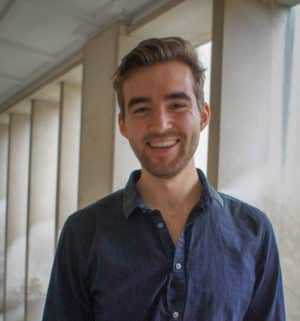
Keenan Krause
St. George Campus
Trinity College
International Relations, Diaspora and Transnational Studies, African Studies
Research Topic: Analysing Ontario’s education policies for newcomers, focused on language learning, and exploring whether the policies adhere to Ontario’s goal of multiculturalism

Kelly Cao
St. George Campus
Woodsworth College
Rotman Commerce
Research Topic: Correlation between education and entrepreneurial intentions
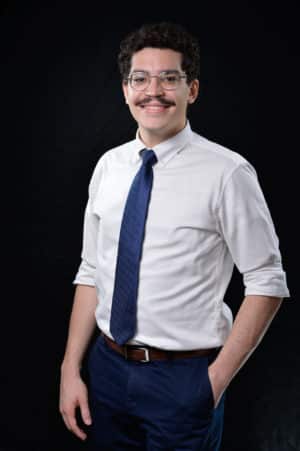
Leonardo Pinna Cosenza
St. George Campus
University College
Peace, Conflict and Justice Studies
Research Topic: The influence of partisan politics in the Brazilian Bolsa Familia Program
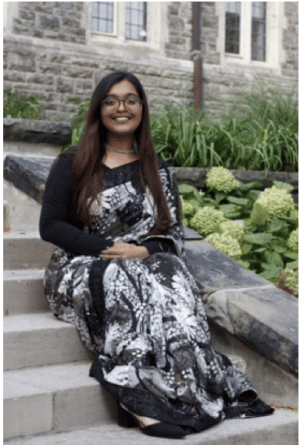
Nubaira Forkan
St. George Campus
Leslie Dan Faculty of Pharmacy
Doctor of Pharmacy Program
Research Topic: Identifying Diagnostic Biomarkers for Depression in Patients with Type 2 Diabetes Mellitus.

Ryan Marten
St. George Campus
Trinity College
Computer Science
Research Topic: Computer Vision
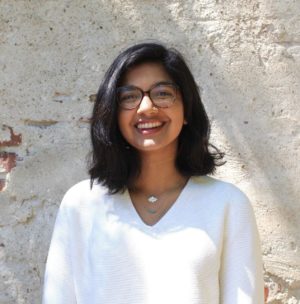
Sanjna Ullal
St. George Campus
Victoria College
Peace, Conflict and Justice Studies and Global Health
Research Topic: My work looked at the access-to-justice obstacles for Dalit women in urban centres in India.
Suehyun Cho
St. George Campus
Trinity College
Laboratory Medicine and Pathobiology Specialist
Research Topic: What is the ideal design of FAT2 binders as the novel therapeutic strategy for head and neck cancers?
Tahmeed Shafiq
St. George Campus
University College
Physics and Philosophy specialist
Research Topic: Studying mocha diffusion and fluid mechanics
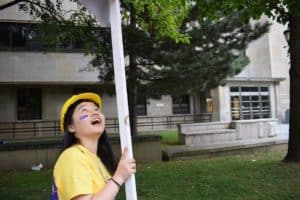
Zoe Chen
St. George Campus
Faculty of Applied Science and Engineering
Engineering Science
Research Topic: Oxidative potential analysis of CHILD house dust.
The work of current and former Laidlaw Scholars can be found on the Laidlaw Scholars Network. For more information, please visit:
Laidlaw Scholarship – Laidlaw Scholars Network (https://laidlawscholars.network/)
Arts & Humanities (https://laidlawscholars.network/channels/2072-arts-humanities)
Medicine & Health (https://laidlawscholars.network/channels/2075-medicine-health)
Social Sciences (https://laidlawscholars.network/channels/2073-social-sciences)
Frequently Asked Questions
Applications
For the 2025-2026 Laidlaw Scholars Programme Application, applicants had the option to apply for a research project proposed by the University of Toronto faculty members. The timeline and documents required for the application package are different than the self-proposed research project stream.
No. You can only apply for one faculty-defined project. If you apply for more than one project, your application will be disqualified.
If you are not selected for the top 3 candidates for the project, you can still apply for the Laidlaw Scholars Programme by self-proposing a research project and finding a faculty member to oversee your work.
In order to find an appropriate Research Supervisor, you first need to determine whether your research requires Research Ethics Board (REB) protocol approval. If you are not sure whether your research requires REB approval, please review the Research & Innovation website on “When do I need a human ethics protocol” and “When do I need an animal use protocol”. You may also contact the Human Research & Ethics Unit (HREU) at ethics.review@utoronto.ca or the Animal Ethics & Compliance Unit at acc.coordinator@utoronto.ca for more information.
If your research requires REB protocol approval, you must be supervised by a U of T faculty member or a member outlined in the Guidelines Regarding Eligibility to be a Principal Investigator at the University of Toronto. We are unable to accept projects that require REB approval with a research supervisor who is not affiliated with U of T.
If your research project does not require REB protocol approval, your research supervisor may be faculty from U of T or elsewhere.
Please note:
- The Laidlaw Scholars Programme is not able to accommodate research supervisor(s) switches once the research starts.
- Teaching assistants and U of T students (at any level; including doctoral and masters students) are not eligible to be research supervisors.
Laidlaw Scholars carry out research in a variety of academic disciplines. Past research examples can be found at the Laidlaw Scholars Network website .
We are unable to consider late submissions to ensure fairness for all applicants. This policy ensures equal opportunities for everyone who has adhered to the given timeline and allows us to maintain the integrity of our selection process. We encourage you to start preparing the application package early to avoid missing the deadline.
Eligibility & Funding
No. The Laidlaw Scholars Programme Research Funding is a standalone funding opportunity for summer research and cannot be combined with any other scholarships or funding during the program. If you receive more than one scholarship, you will need to choose which one to accept.
No. The program is designed to encourage students in their first and second years at U of T to explore their interest in independent research. While some selected scholars may have some prior experience with research, within our program, most of our scholars are first-time researchers. Additionally, we are looking for scholars who are enthusiastic and have the potential and ambition to become a global future leader who is committed to ethical leadership.
How the Programme Works
Your academic studies are still the priority. Thus, the majority of the time commitment is during the summer terms, and it should not interfere with your academic programs. Selected scholars are expected to fully commit to spending six weeks per summer term (approximately 30-40 hours per week) to conduct the research and LiA projects.
During the academic year, the leadership development sessions will be held approximately once per month during weekends (approximately 7 days with each lasting roughly 6 hours) to avoid conflict in schedules and to allow tri-campus students to fully engage in the program. Additionally, the time commitment for the Oxford Character Project is about 12 hours in total, including the estimated hour for you to reflect before the sessions and another hour to engage with other scholars during the session. The schedule for the leadership development component will be communicated before the start of the academic year.
Attendance for the research project, LiA experience, leadership development sessions, and the Oxford Character Project are mandatory. The Programme Office may withhold your funding for non-attendance. If a student withdraws from the Laidlaw Scholars Programme before program completion or is unable to complete the program successfully, they may be required to return or all part of the spent funds (excluding exceptional circumstances). All withdrawal cases will be reviewed on a case-by-case basis.
It is possible to participate in PEY or another co-op at the same time as being a Laidlaw Scholar. However, one of the most important considerations is time over the summer. The Laidlaw Scholars Programme requires that you reserve 6 weeks of the summer to conduct full- time research (approximately 30-40 hours per week). All scholars are required to carry out research from June 15 to July 24, 2026. If your co-op/PEY can work around this timeline, it is possible for you to do both.
Due to the nature of the leadership program, it is not possible for selected scholars to engage in international exchange/learning abroad opportunities while participating in the Laidlaw Scholars Programme.
Unfortunately, we cannot accommodate projects that fall outside of this research period. During the summer research period, scholars will participate in the Deep Dive: A Conversation Series to allow scholars to interact with each other while at similar stages of their research and to build communities among students and faculty at U of T and the other Laidlaw partner universities globally. In order to facilitate your engagement in this program, it is important for the research period for all scholars at U of T to be standardized.
For any questions about the scholarship or to discuss any specifics of your research idea, please contact us at laidlaw.scholars@utoronto.ca. You can also book 1-1 advising appointments with the International Scholarships Advisors through Folio.
UTM and UTSC students can email laidlaw.scholars@utoronto.ca to be added to the event registration or to book an appointment.
.
